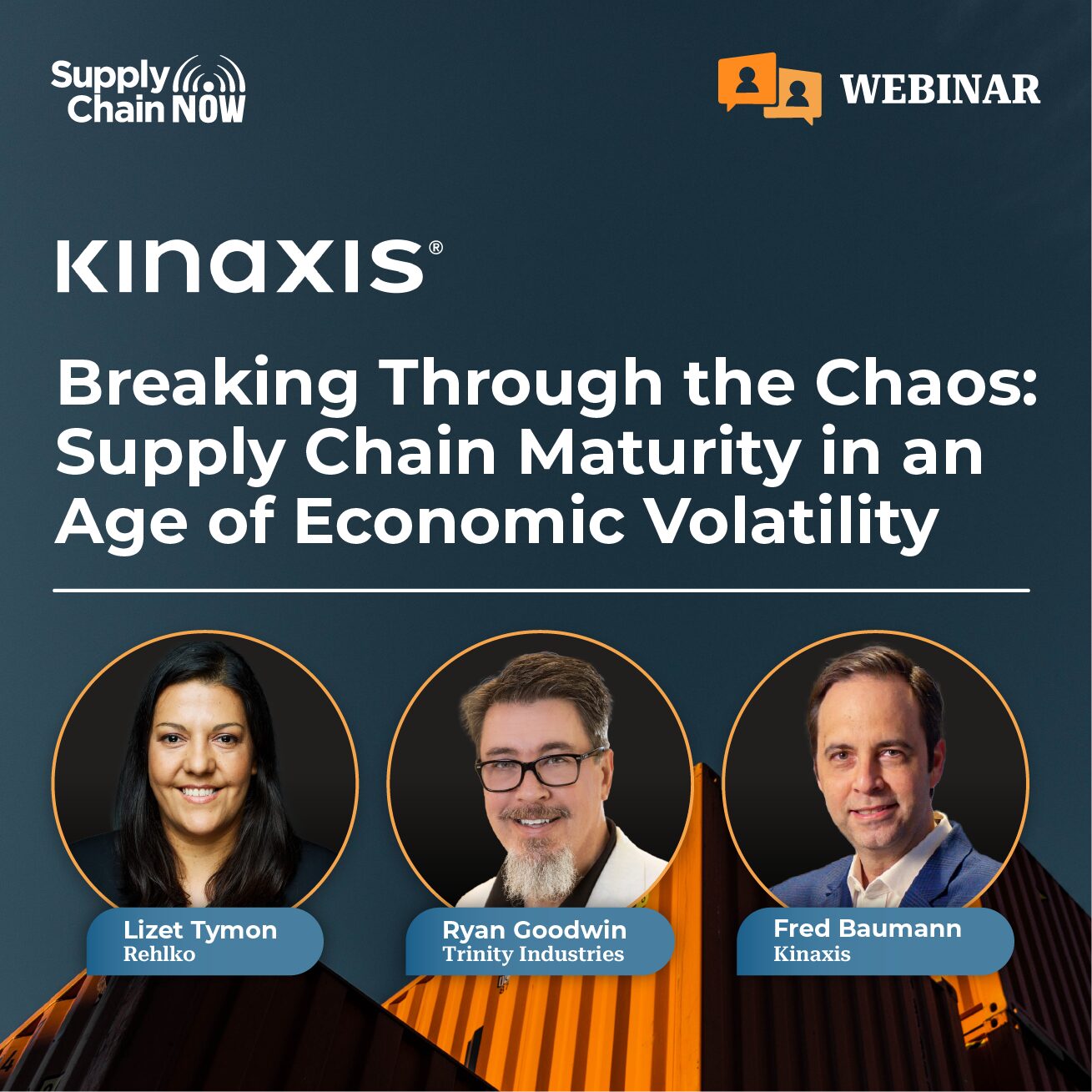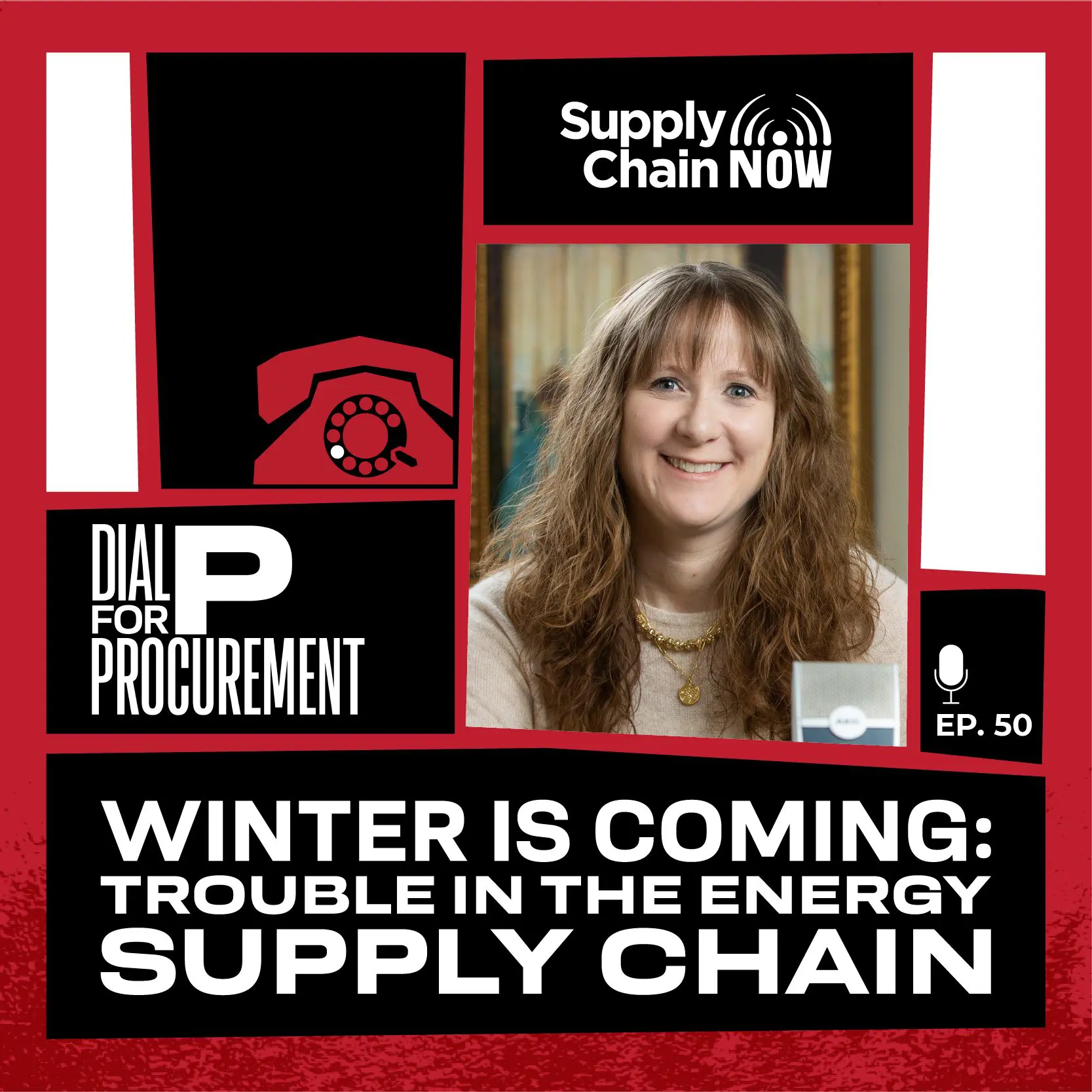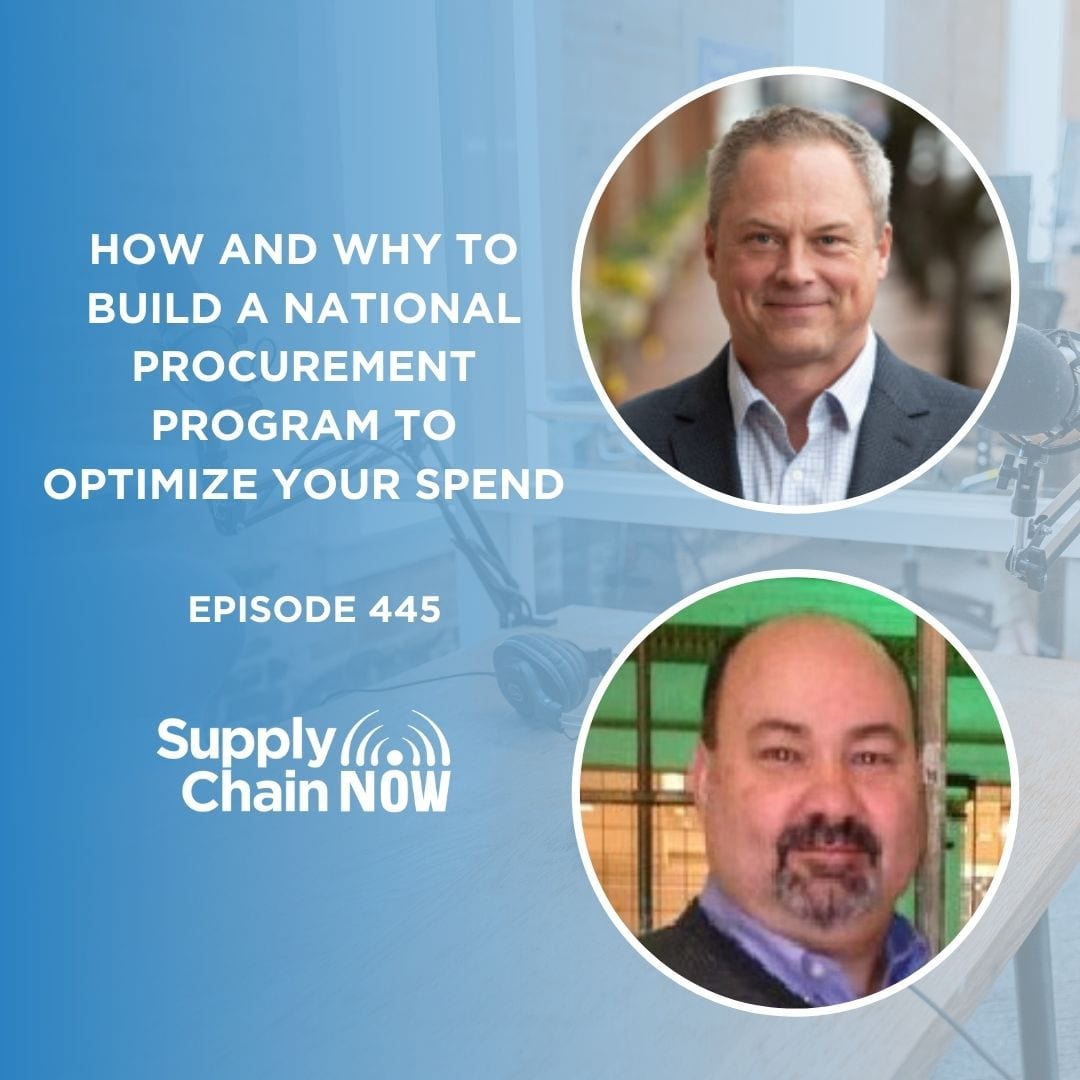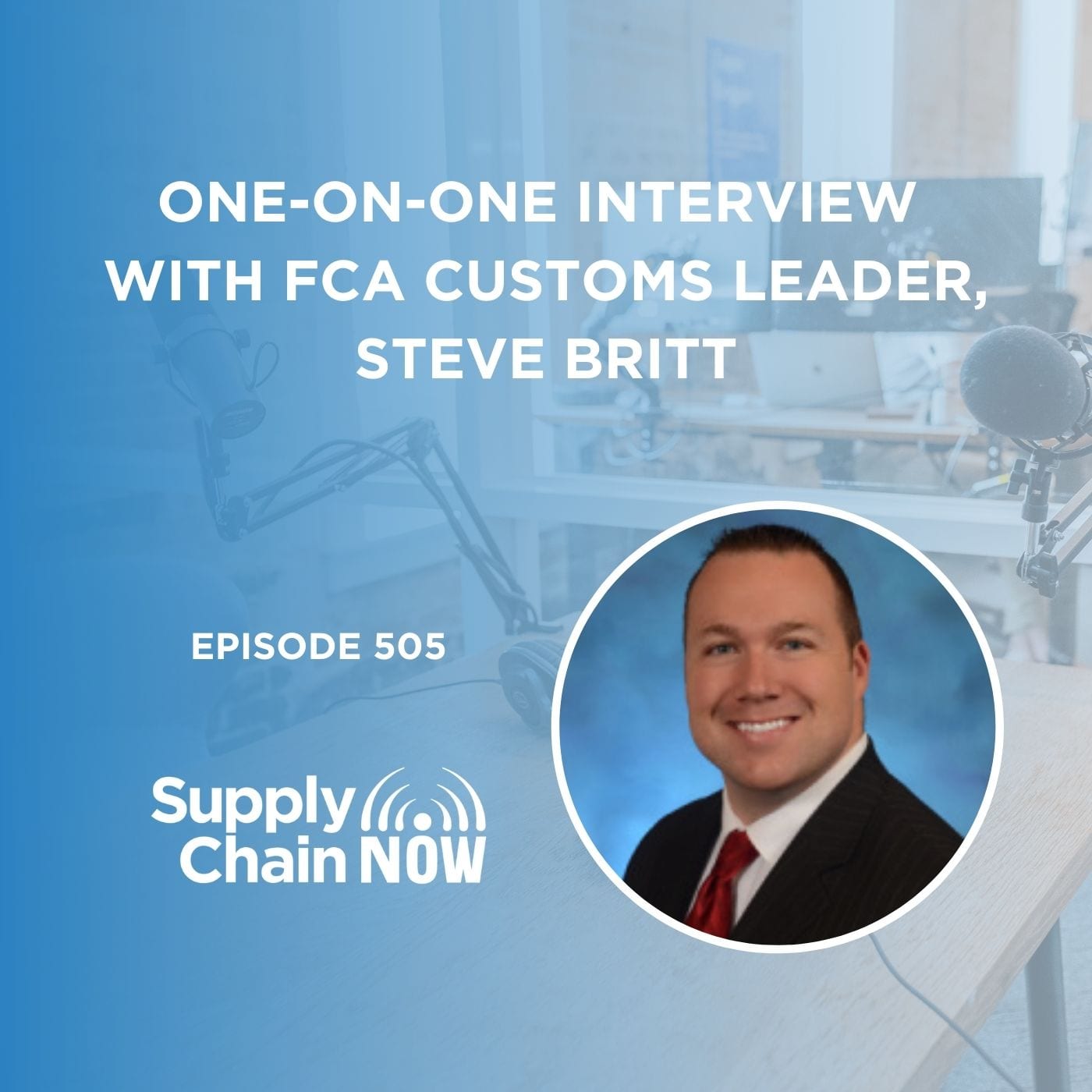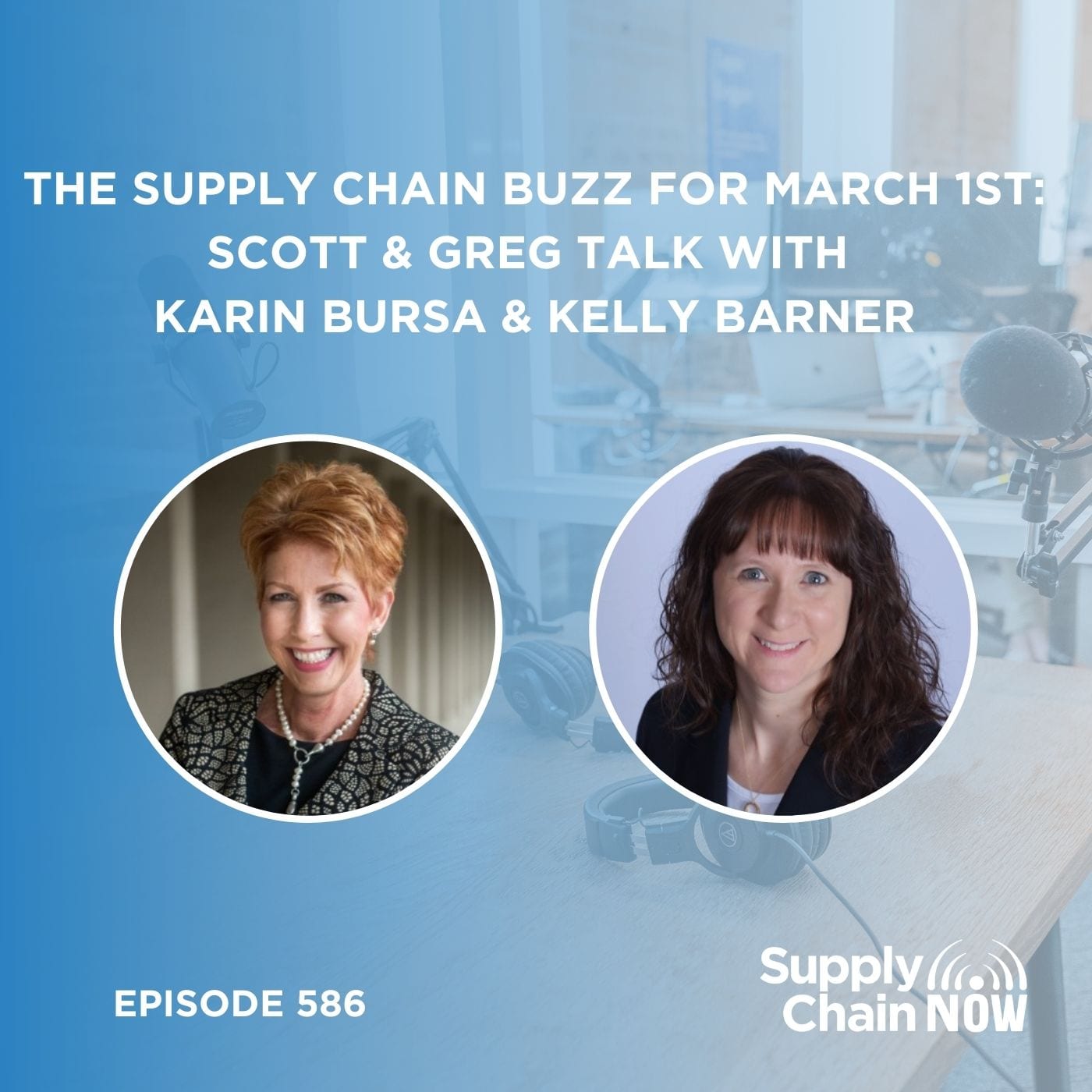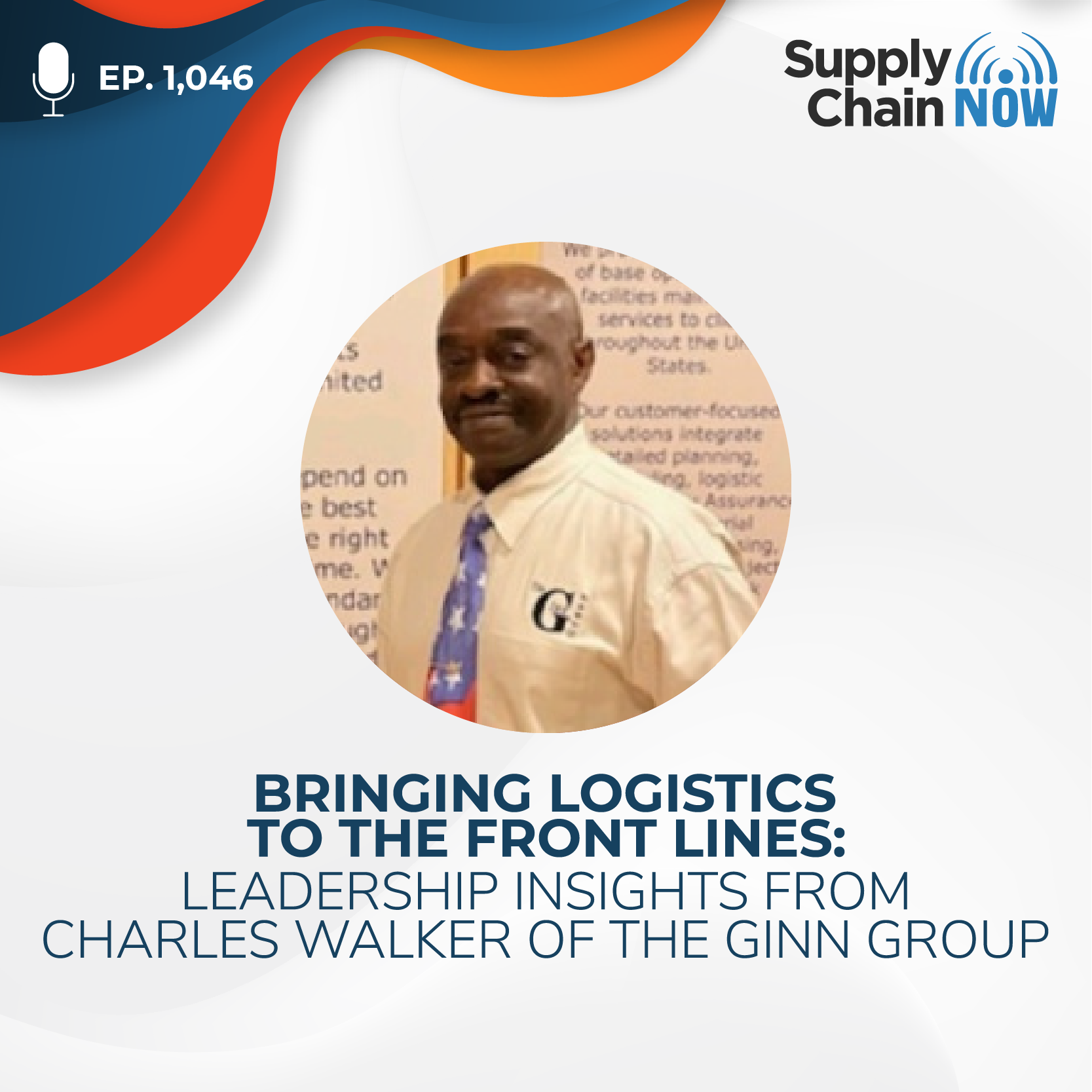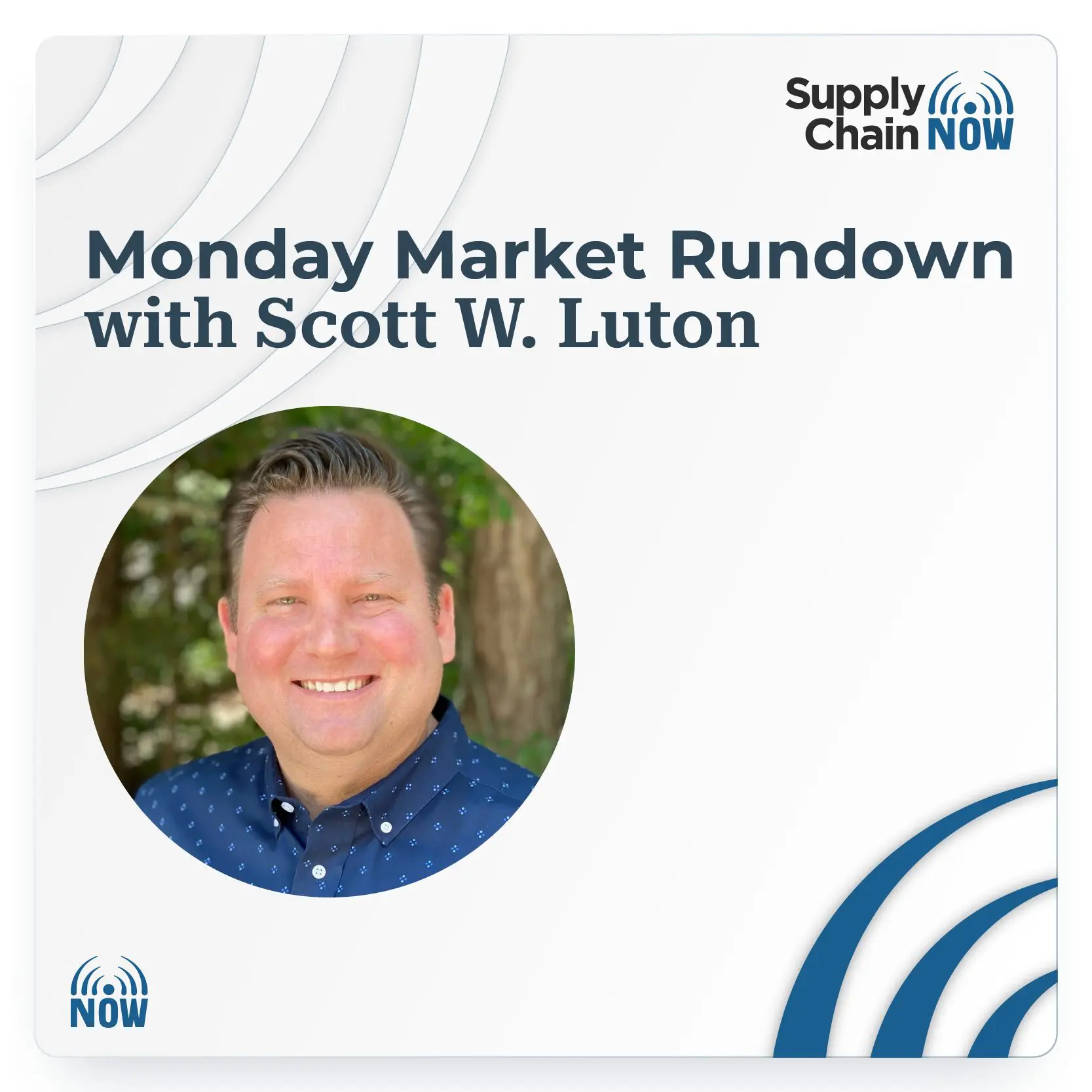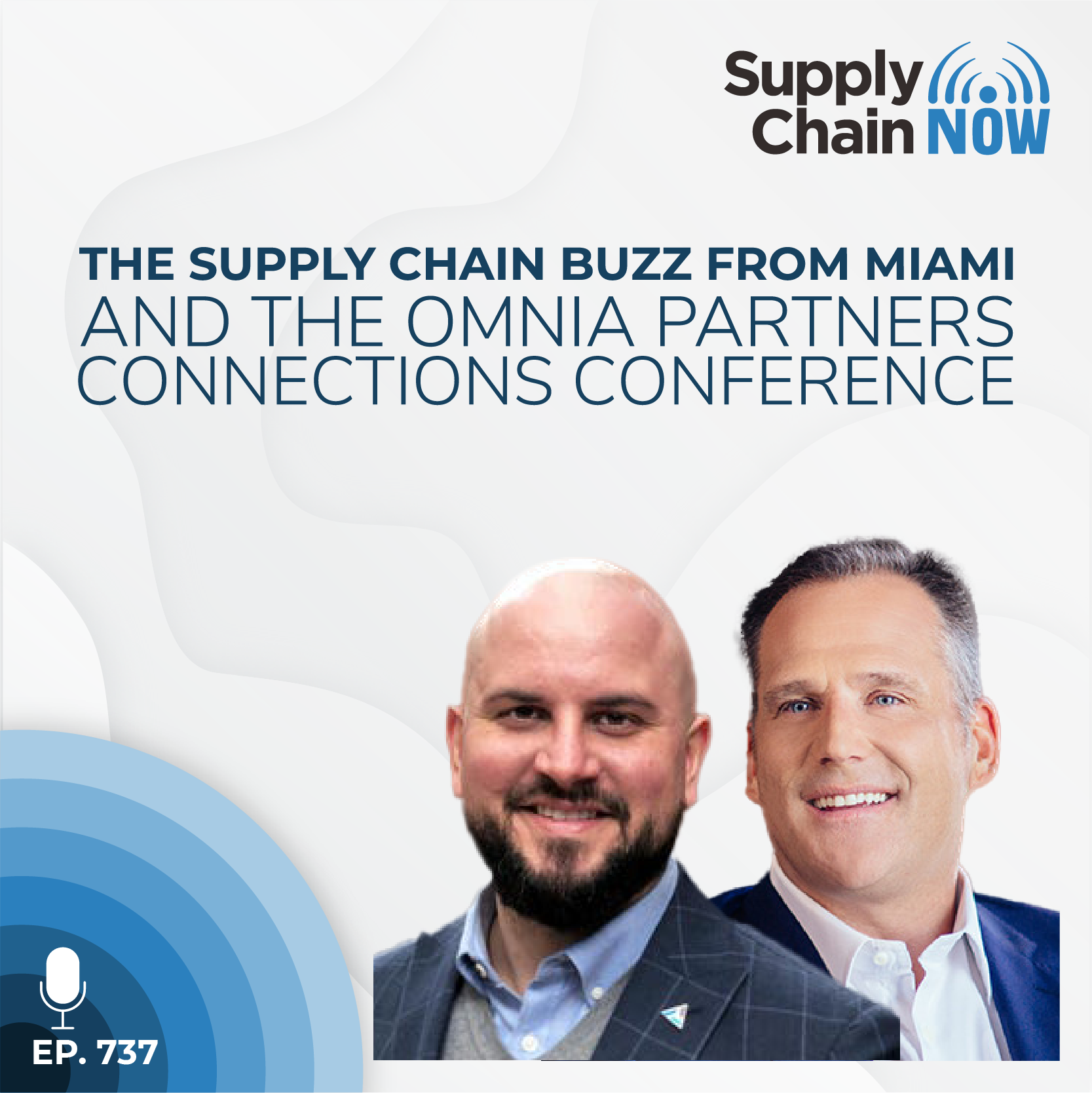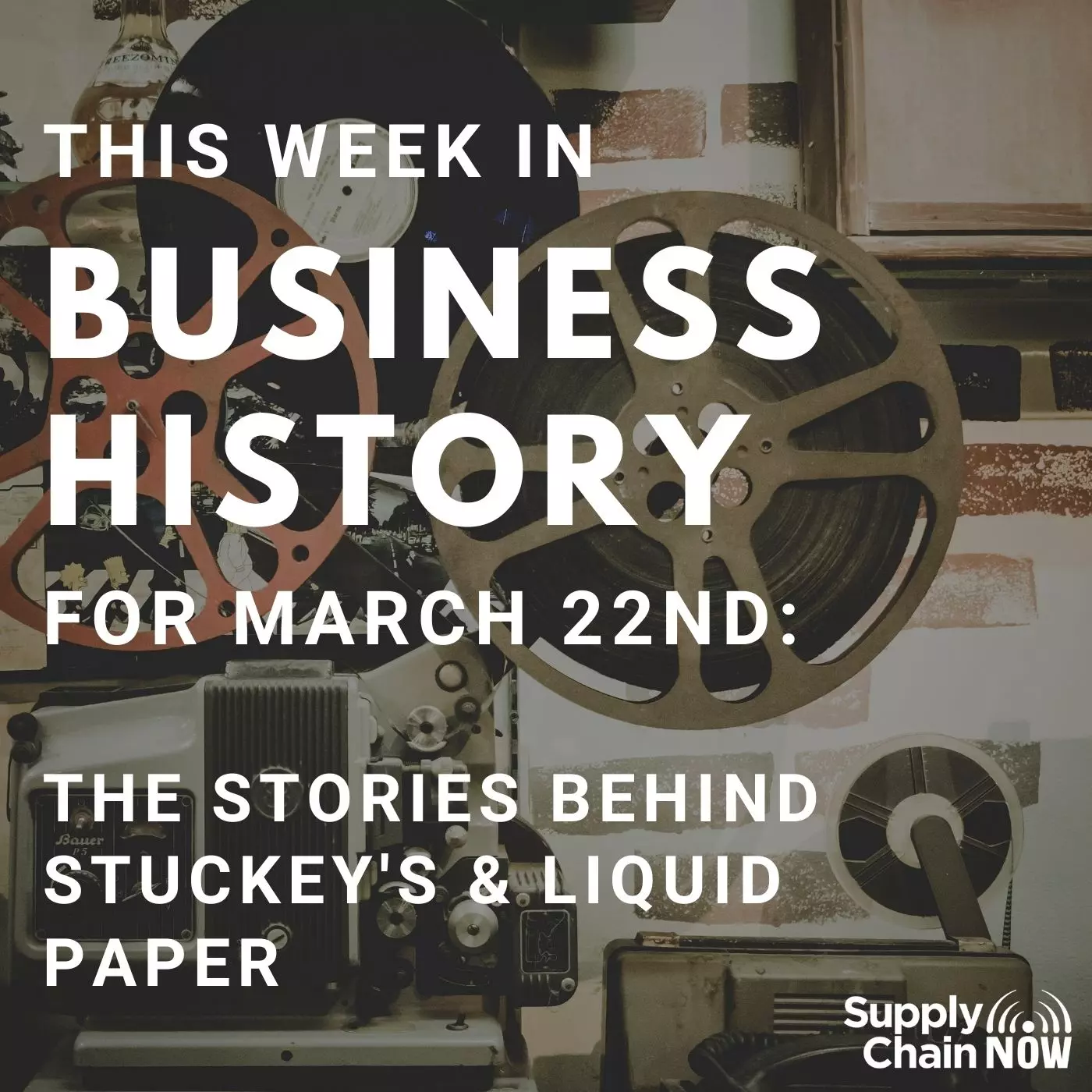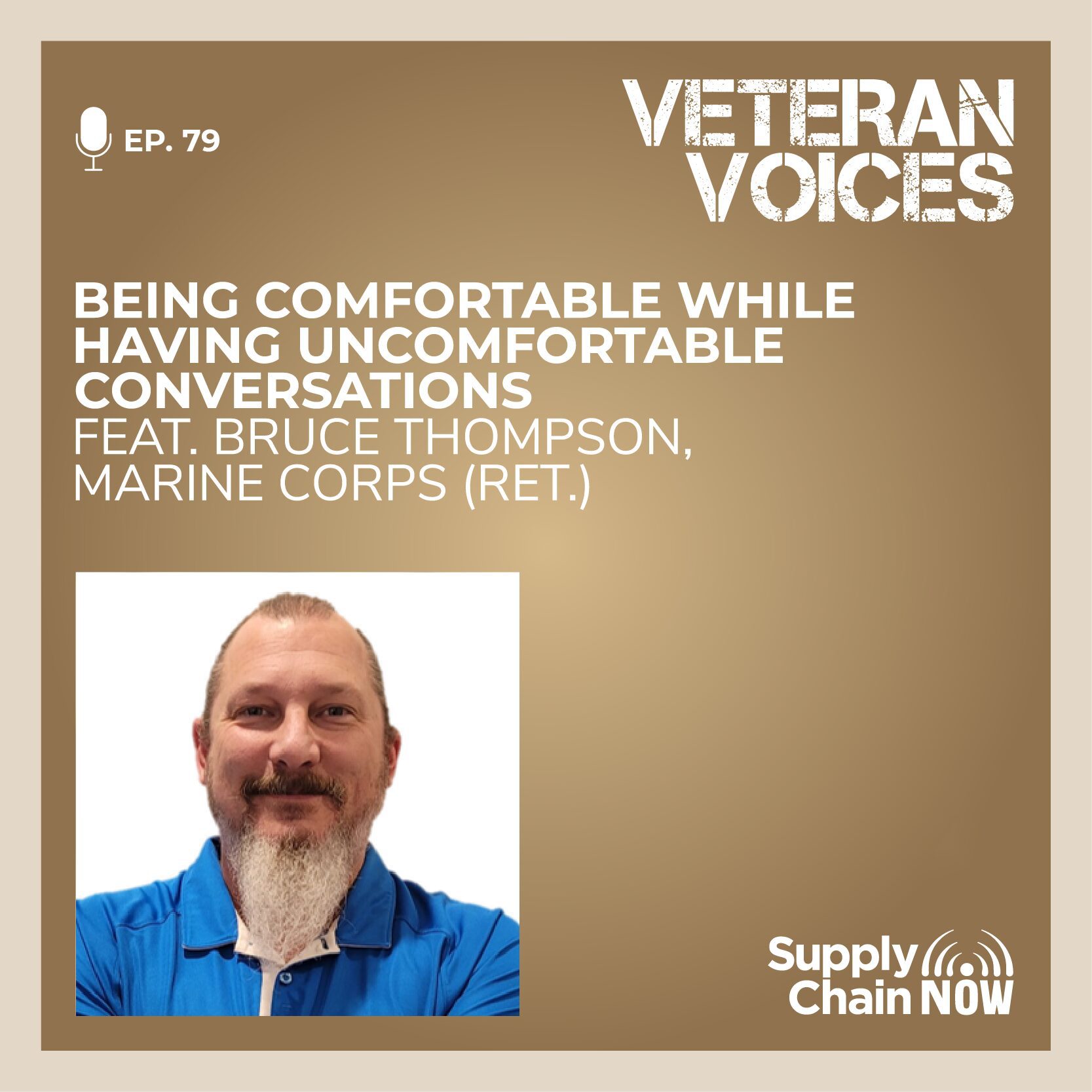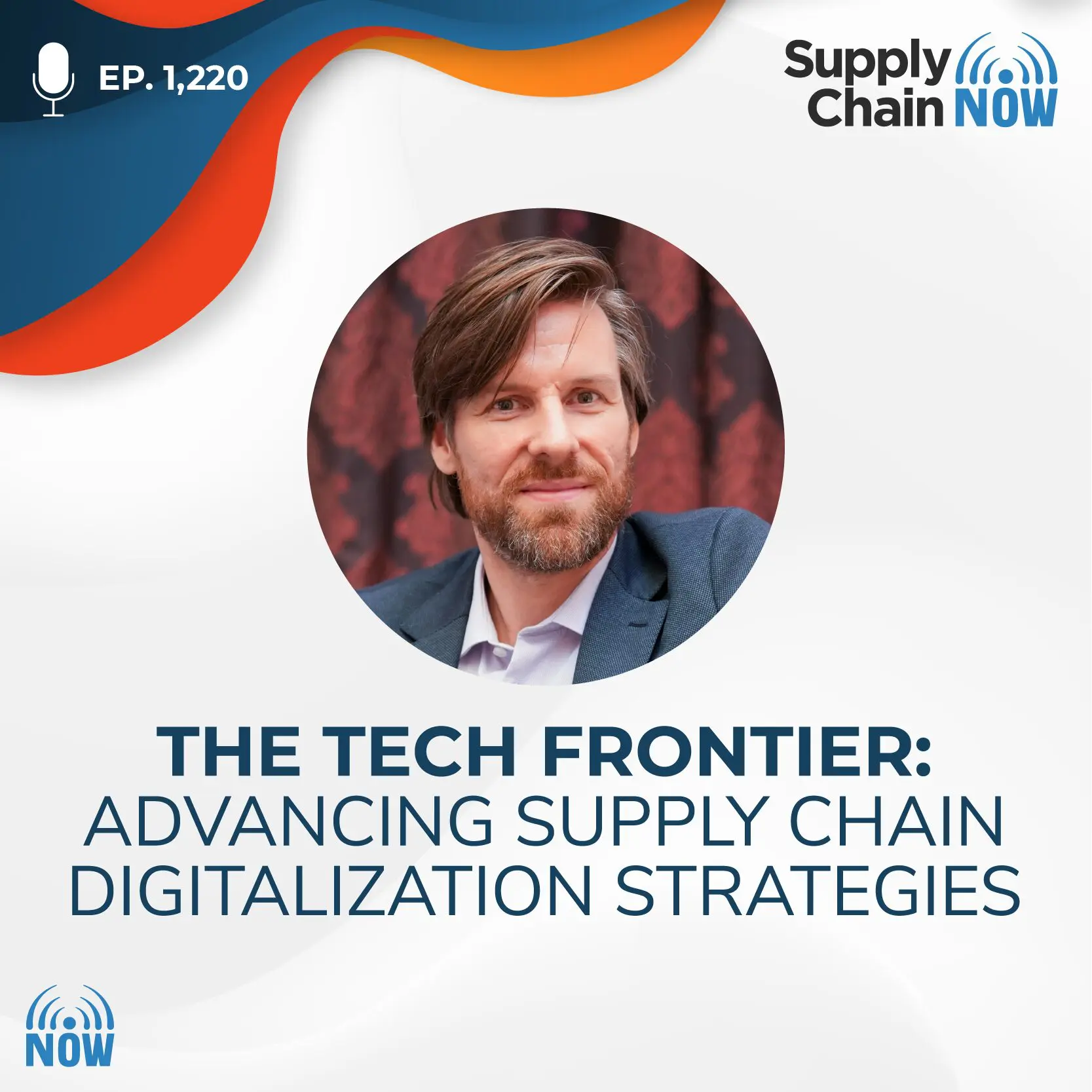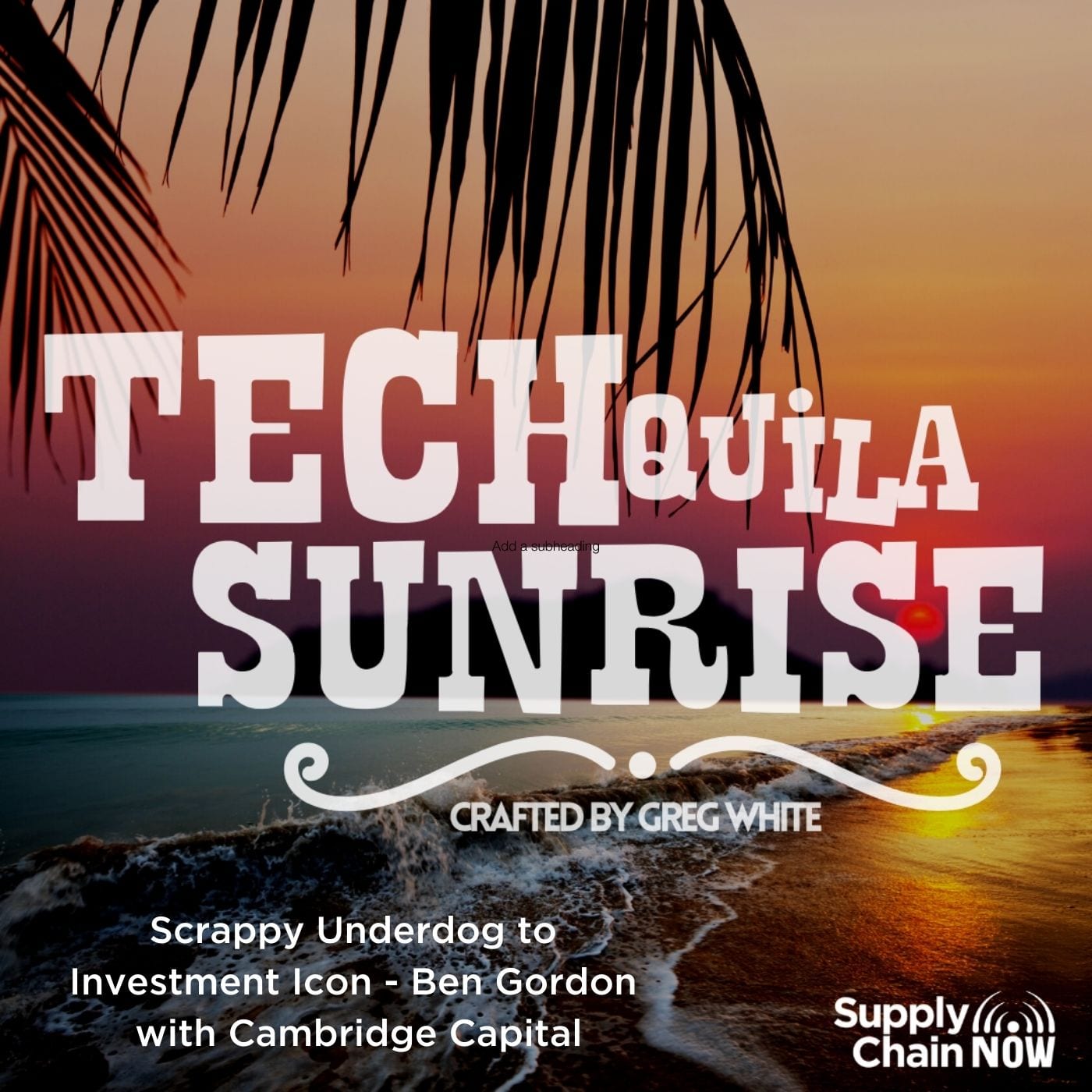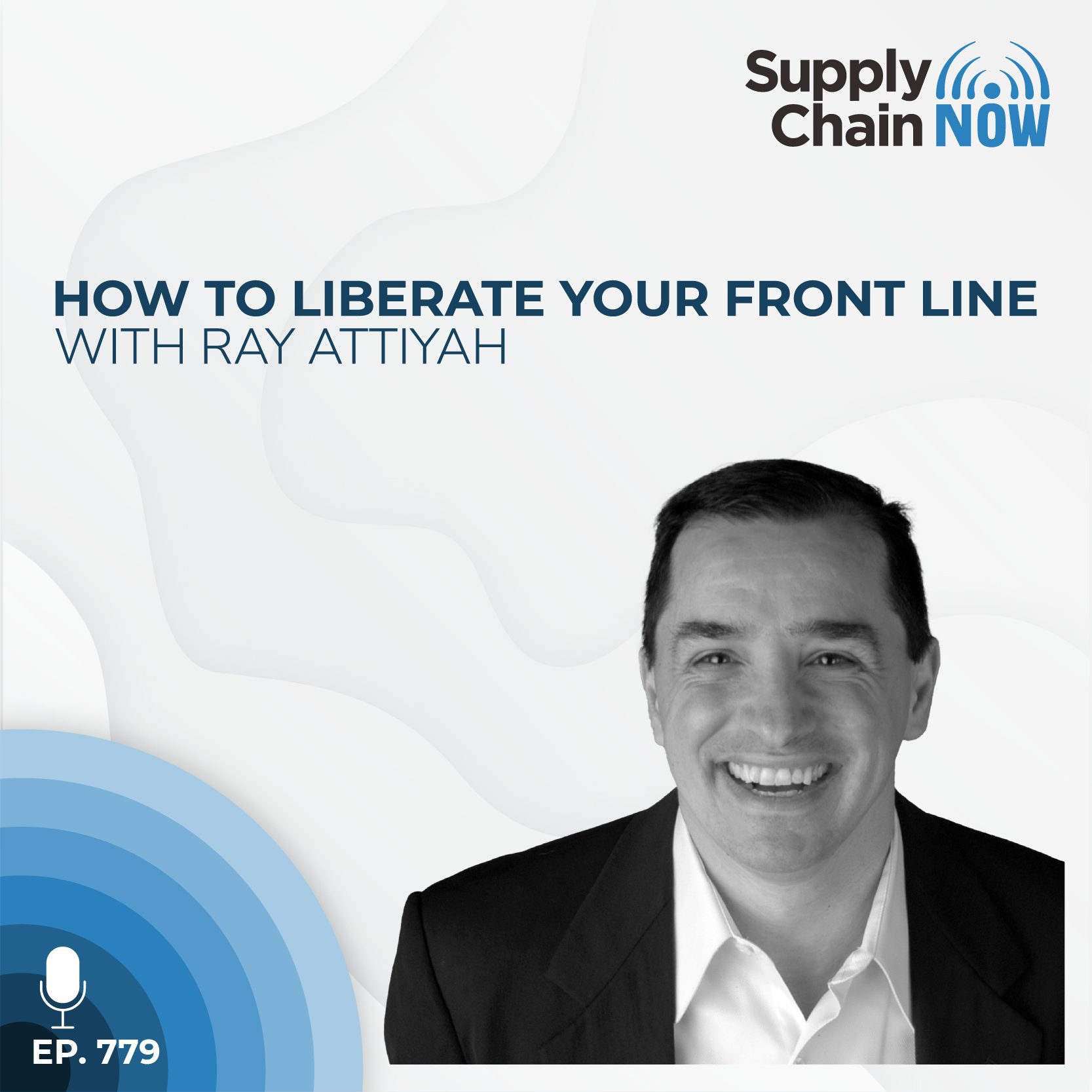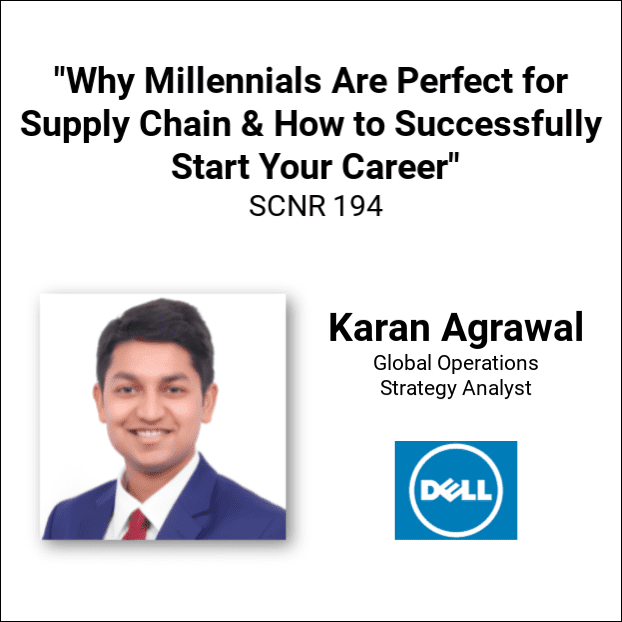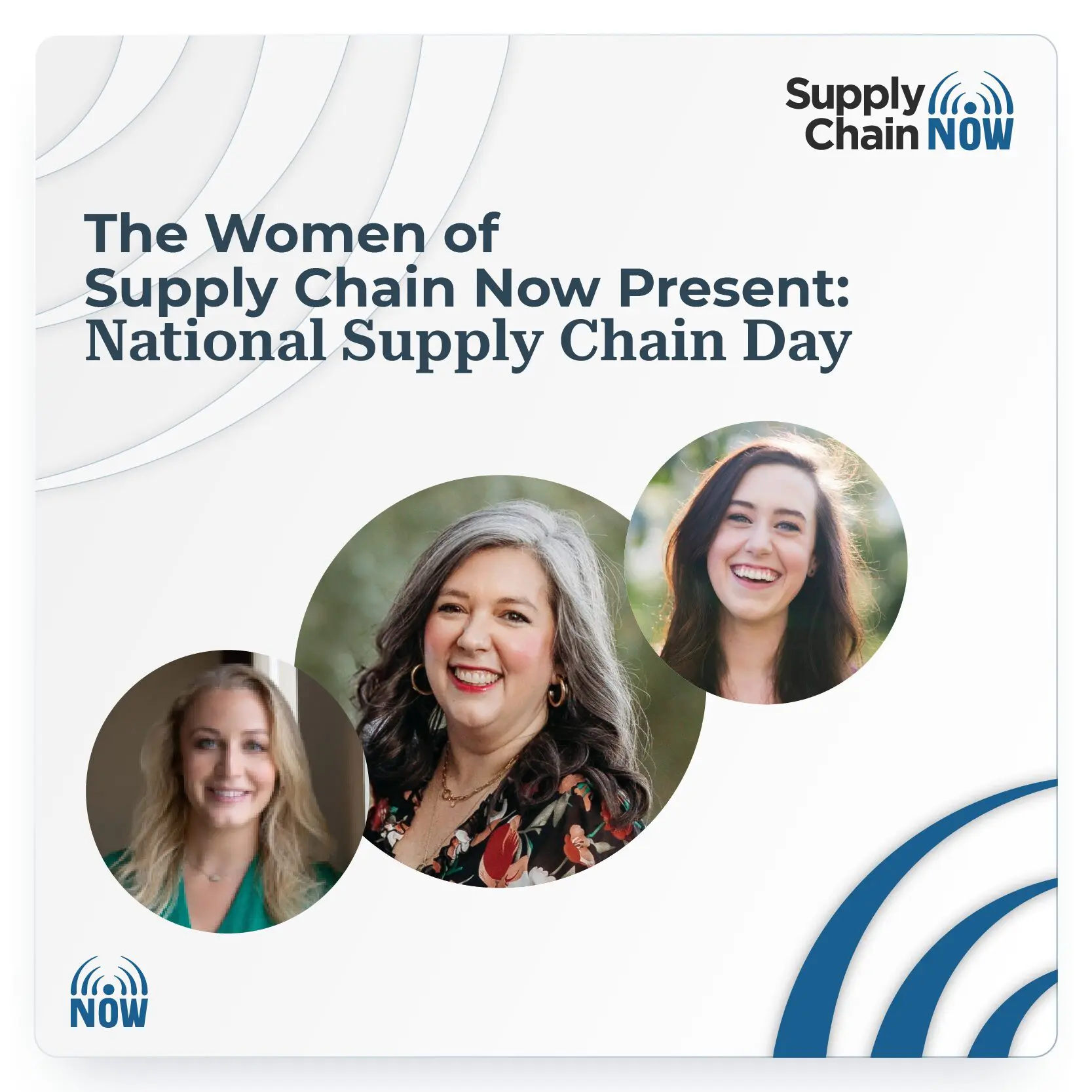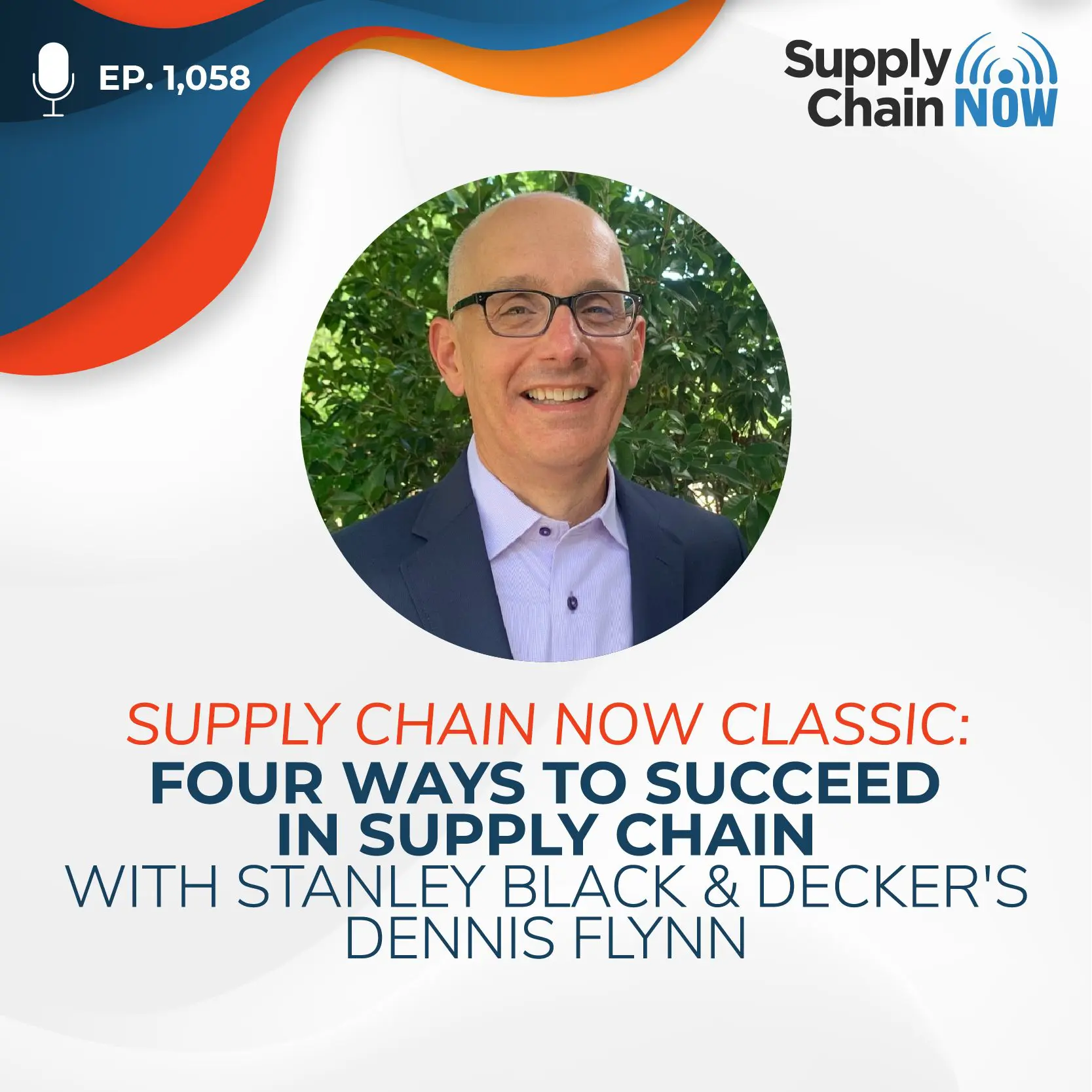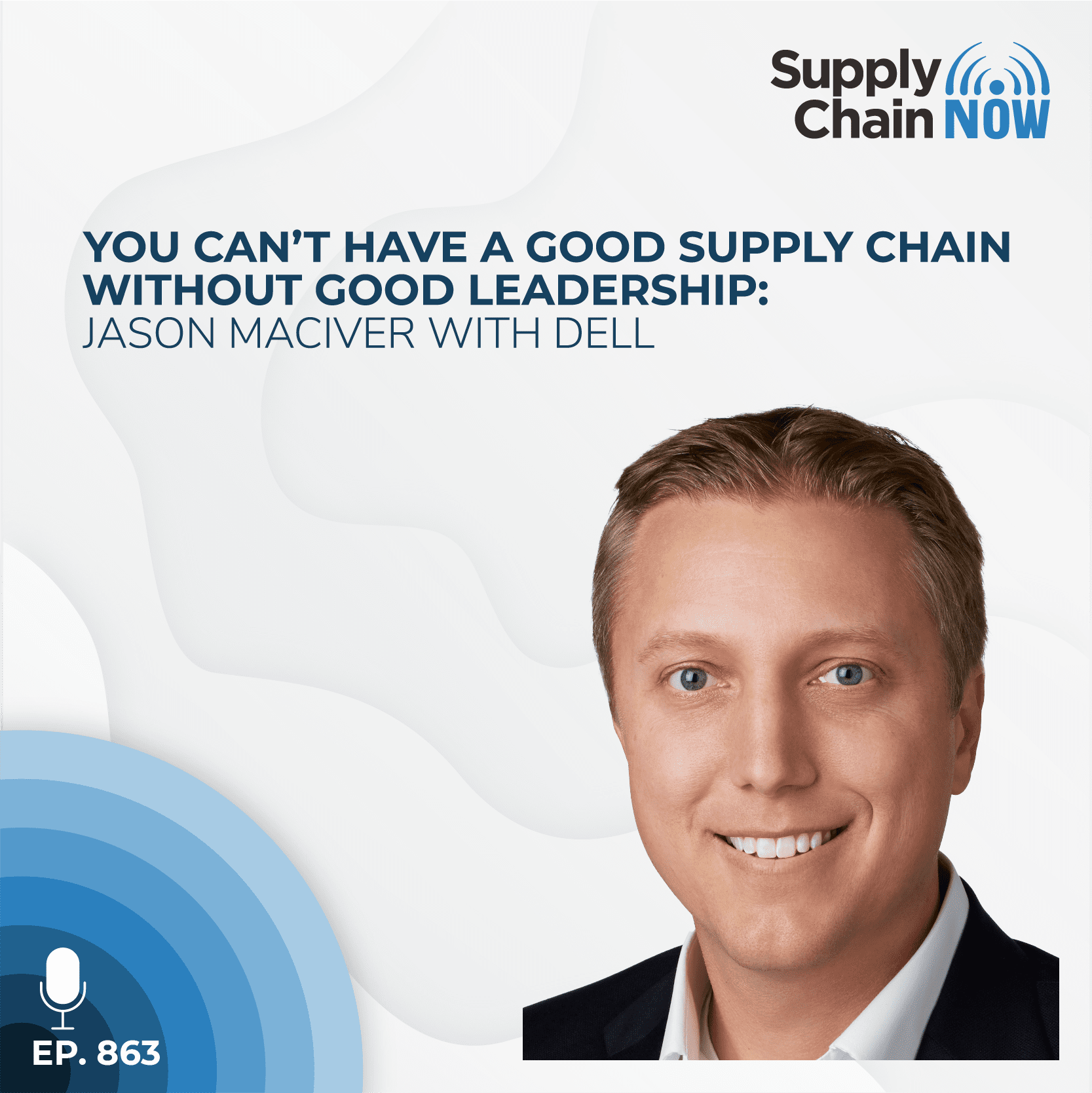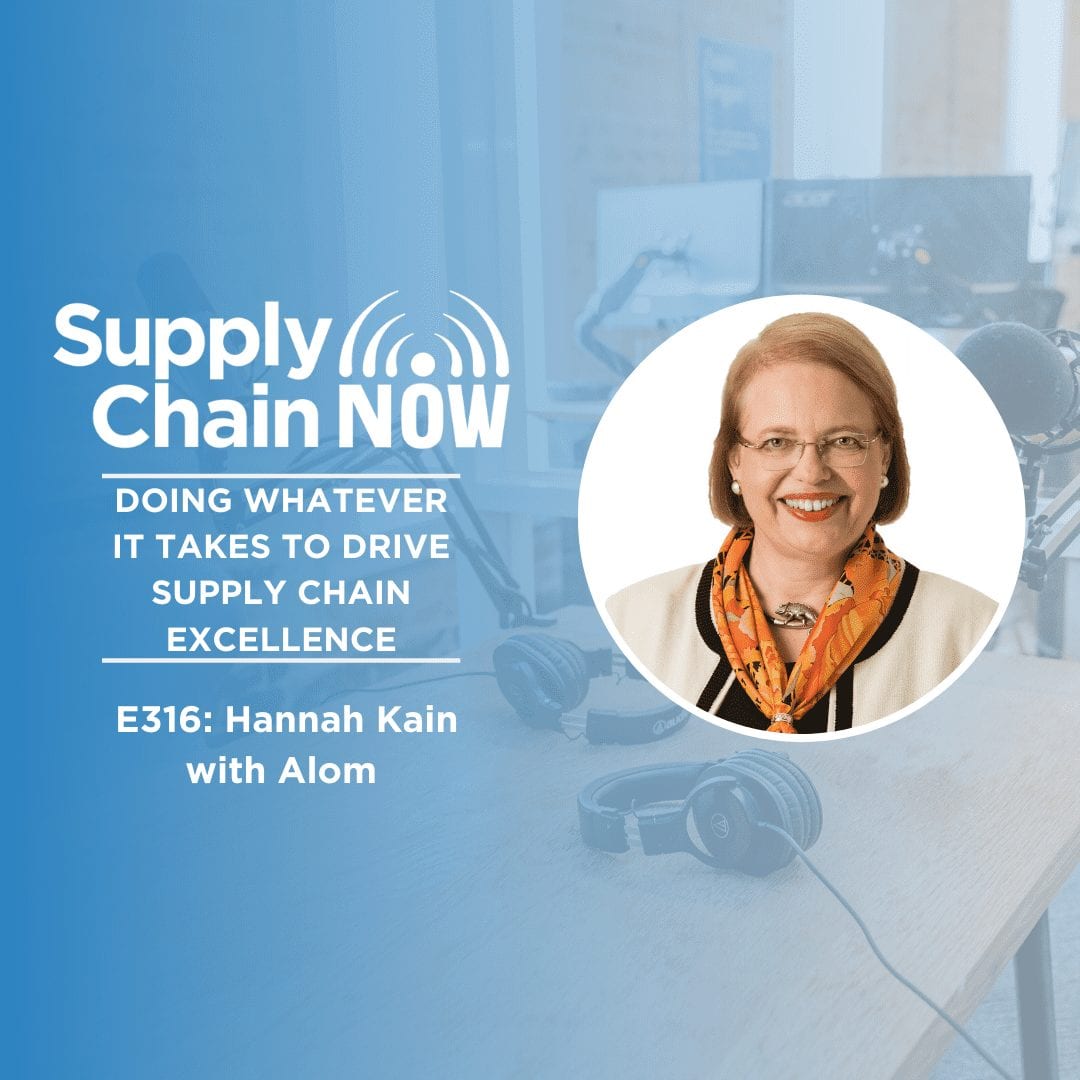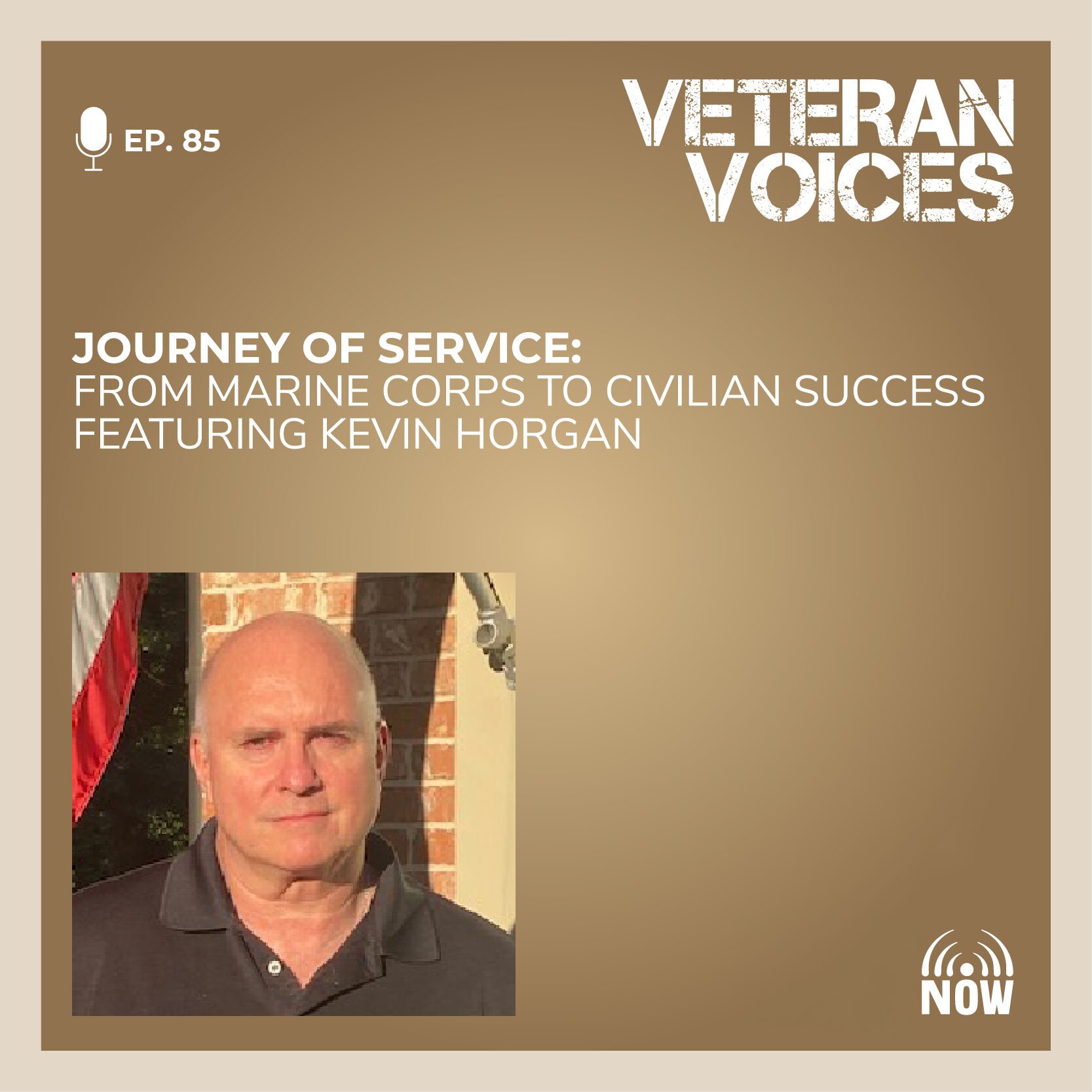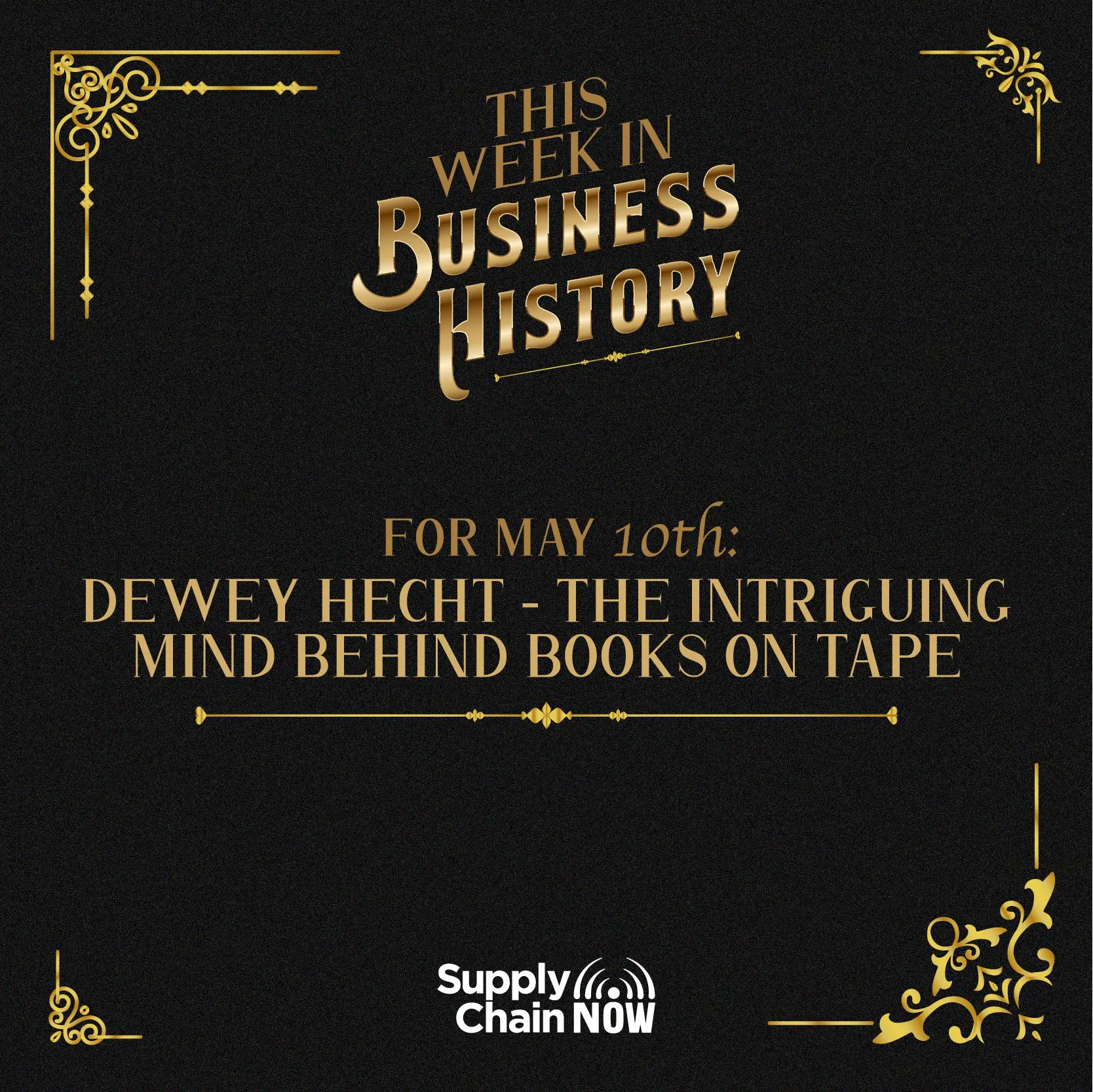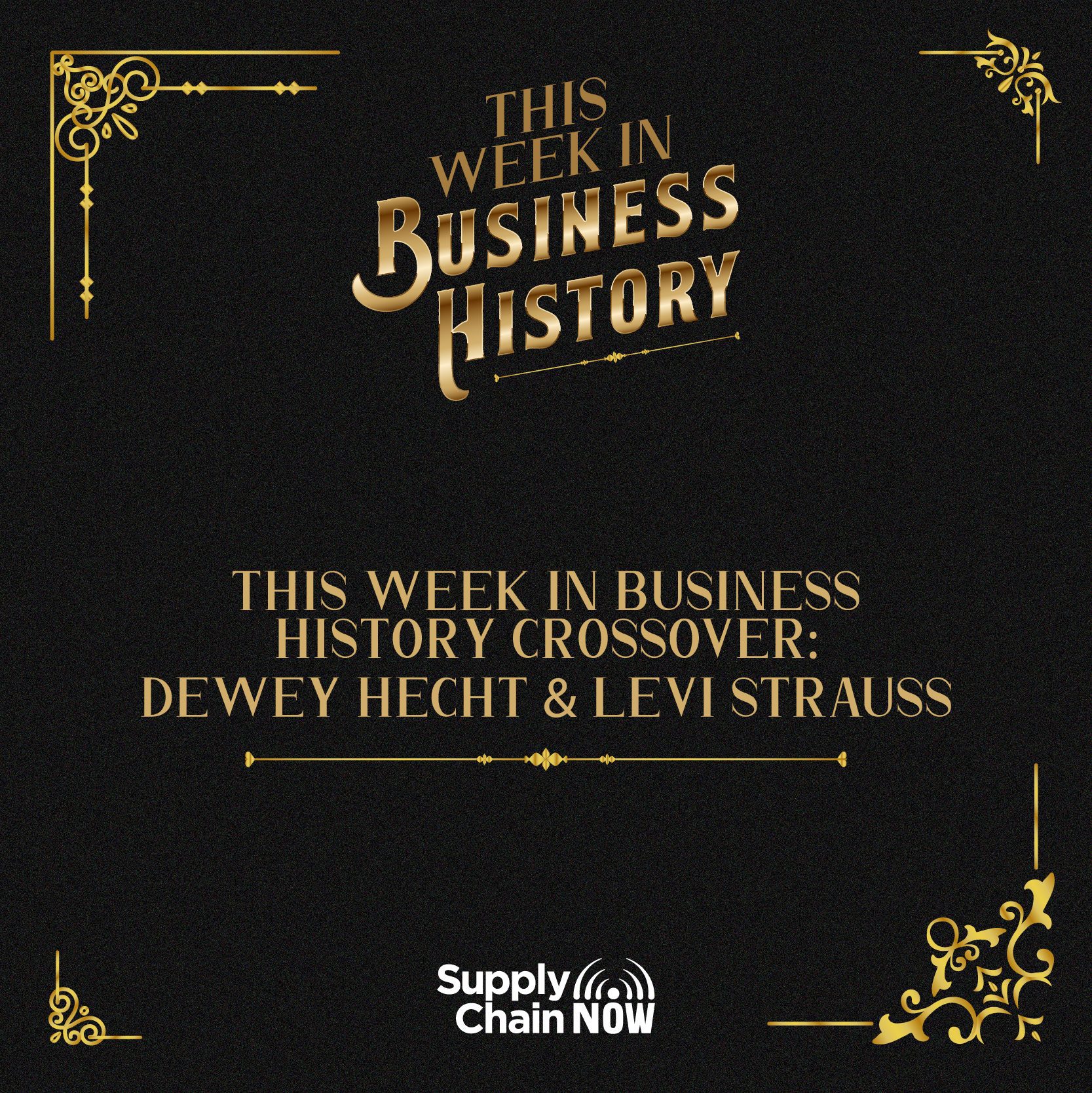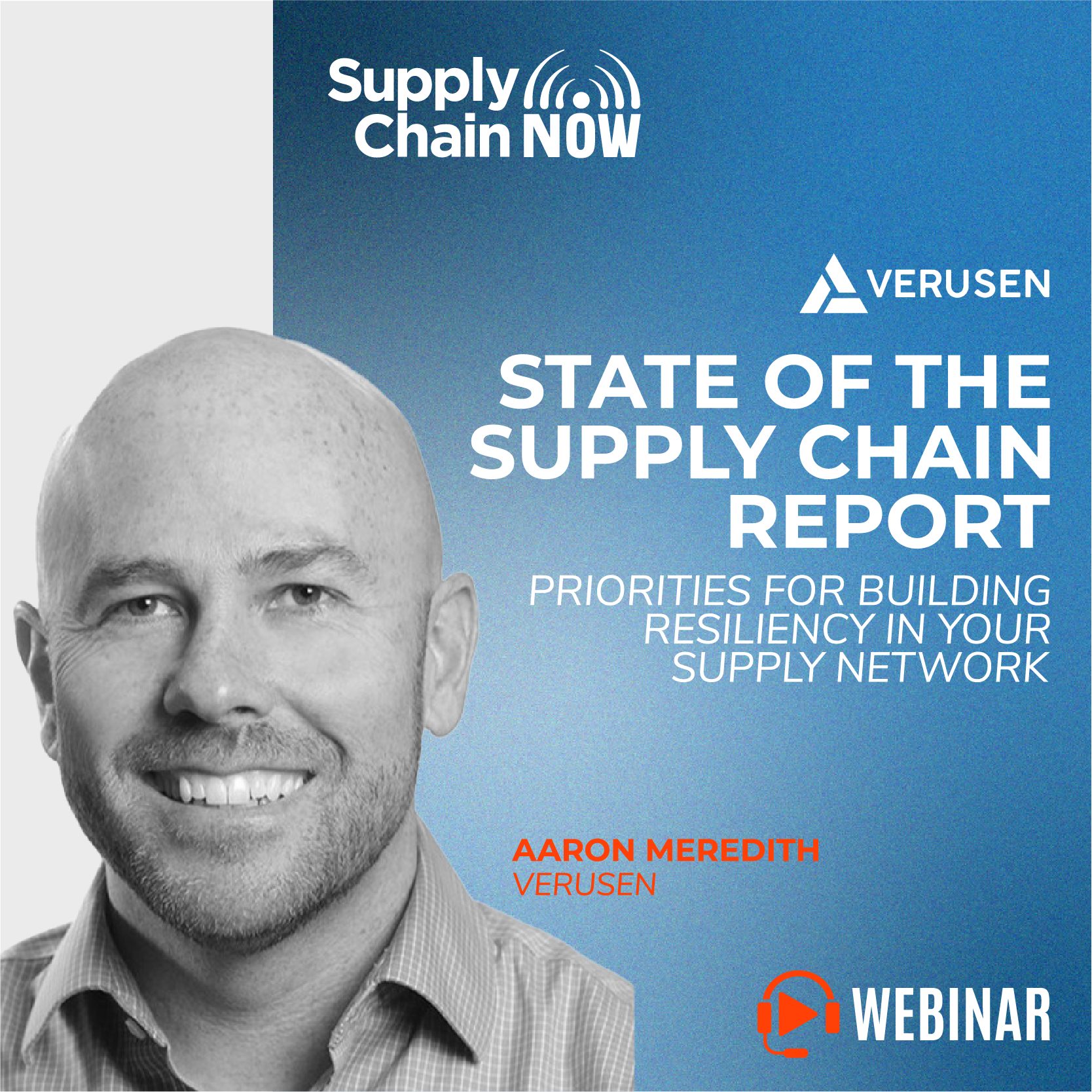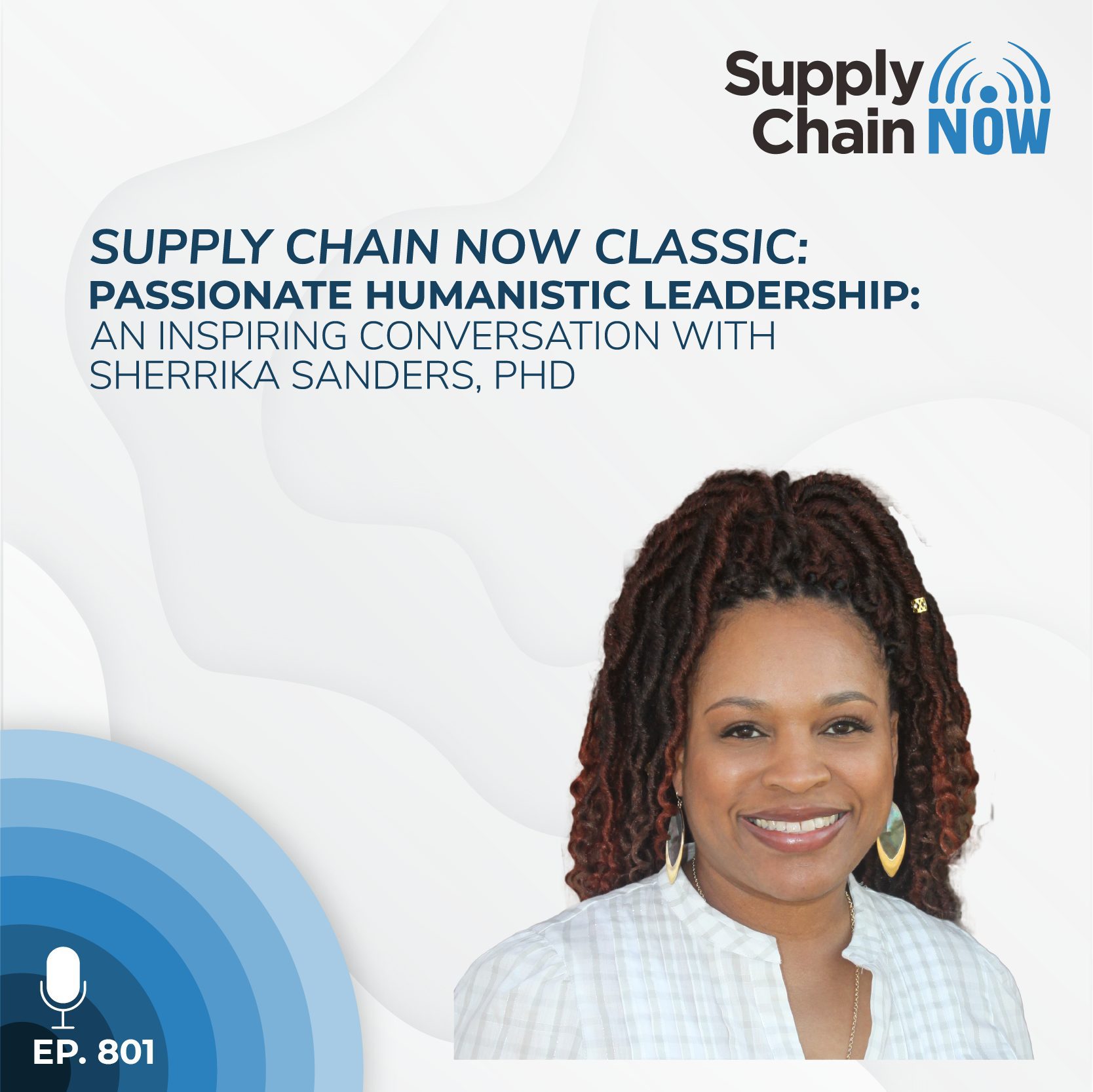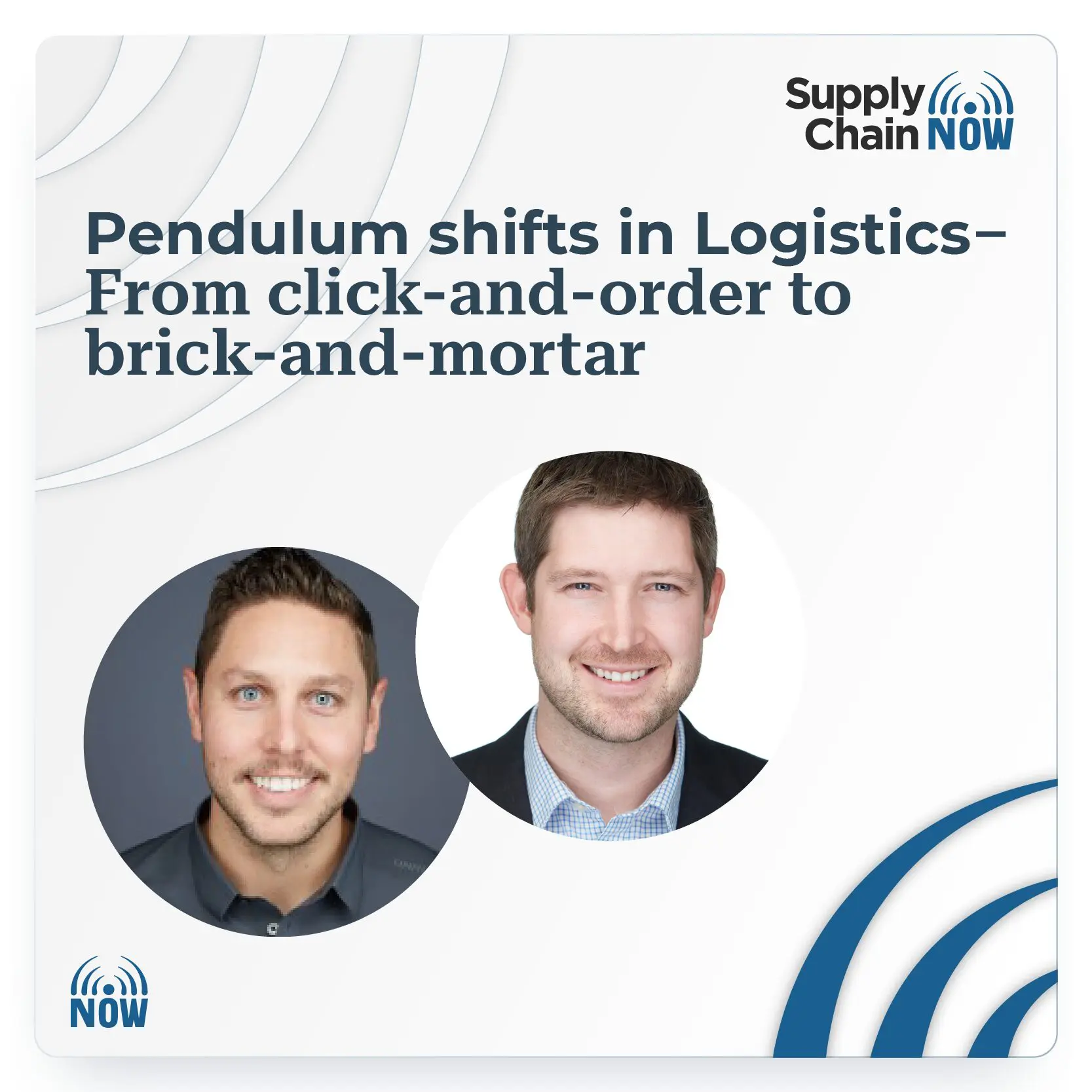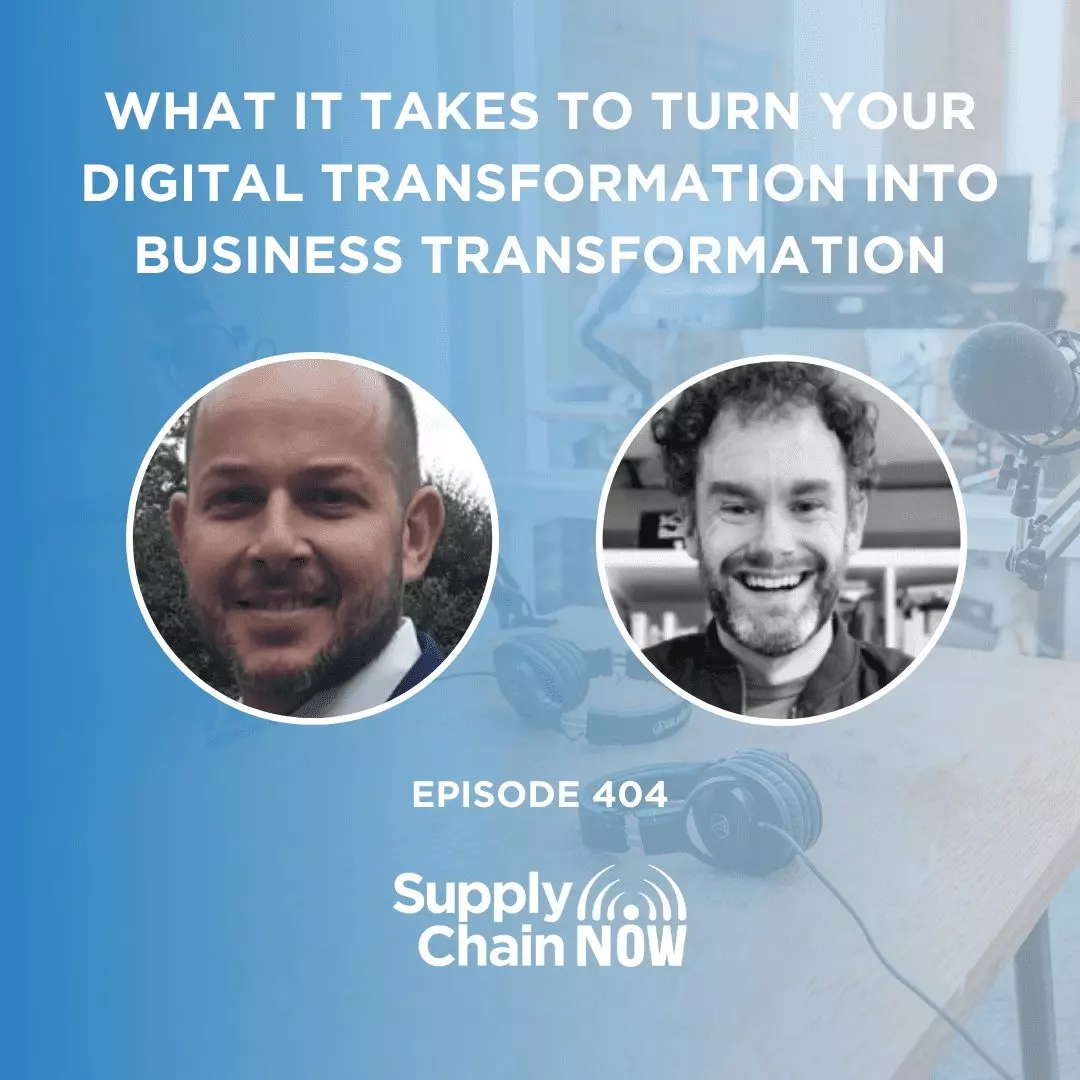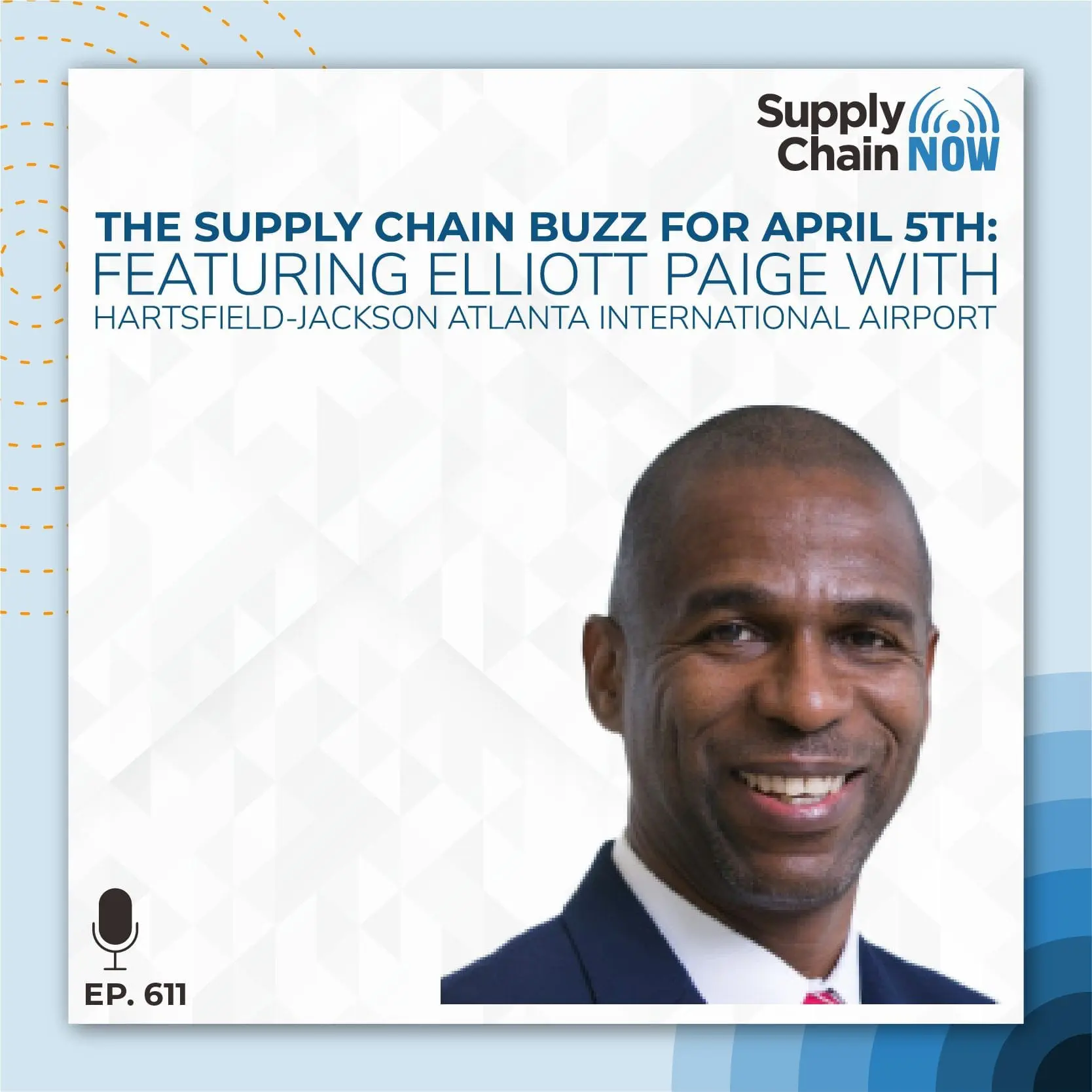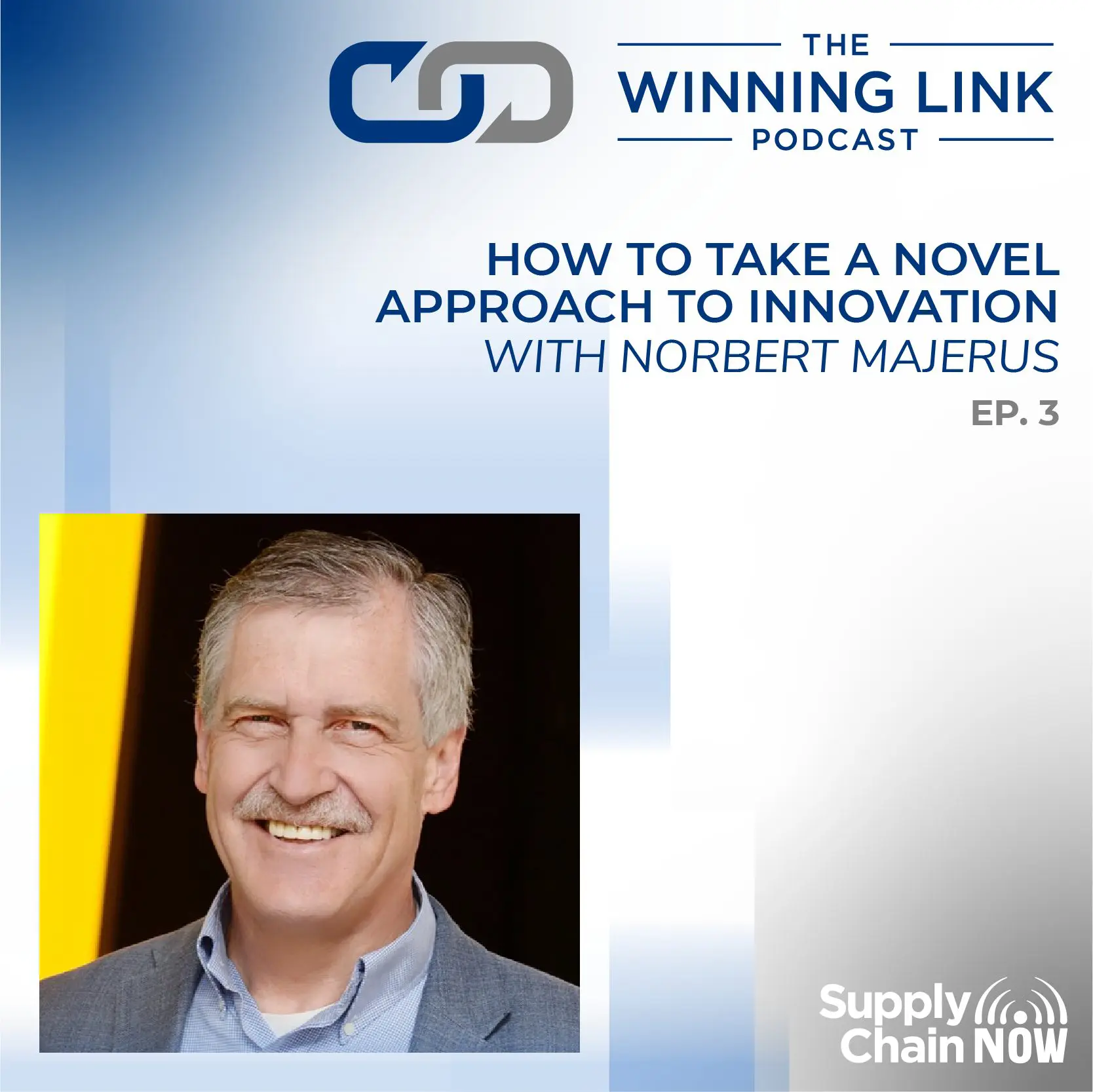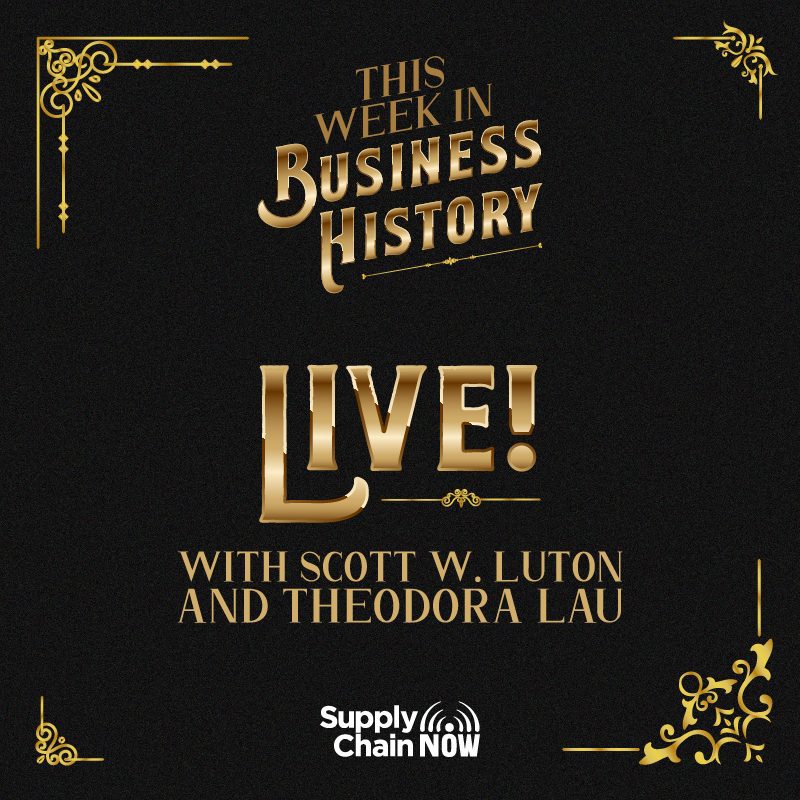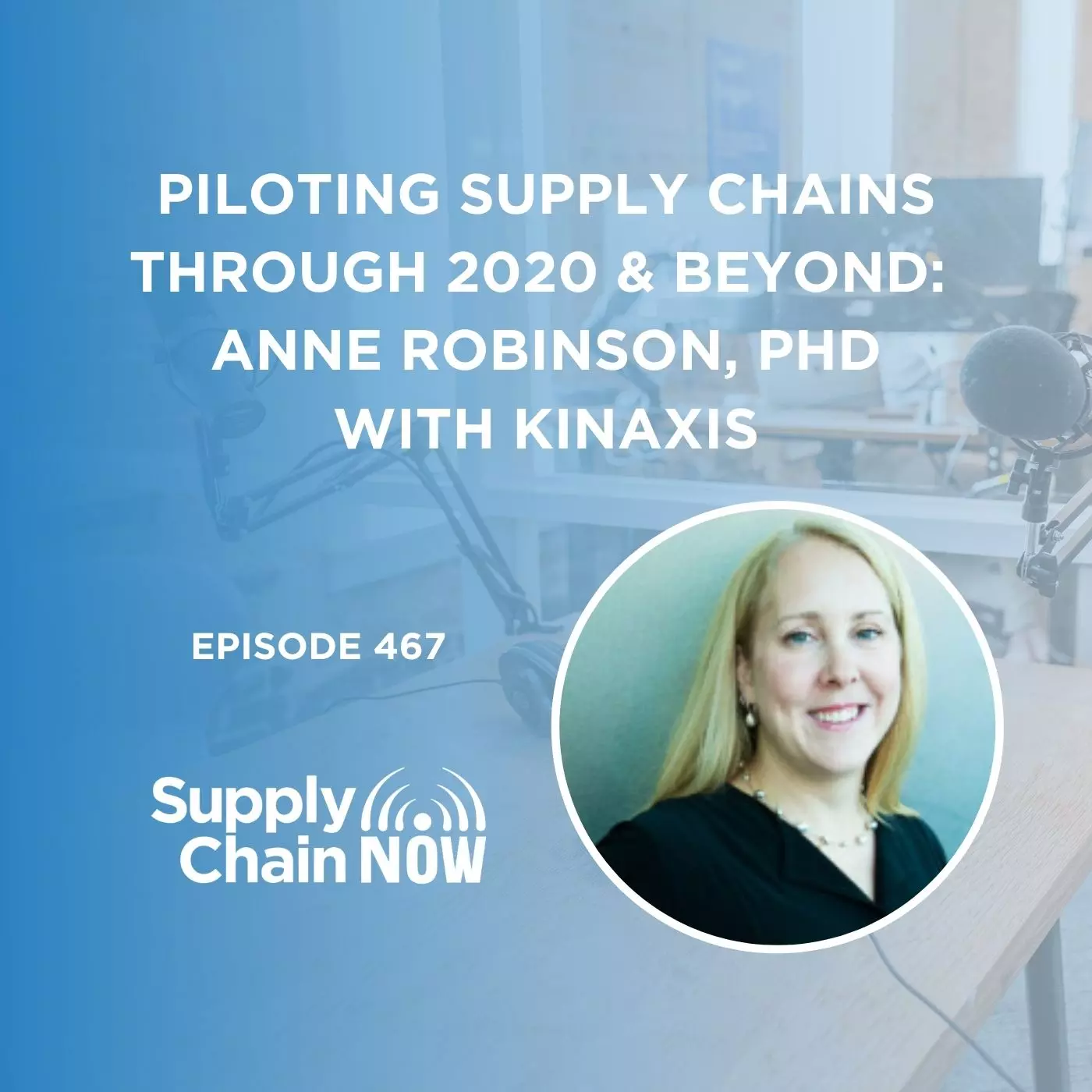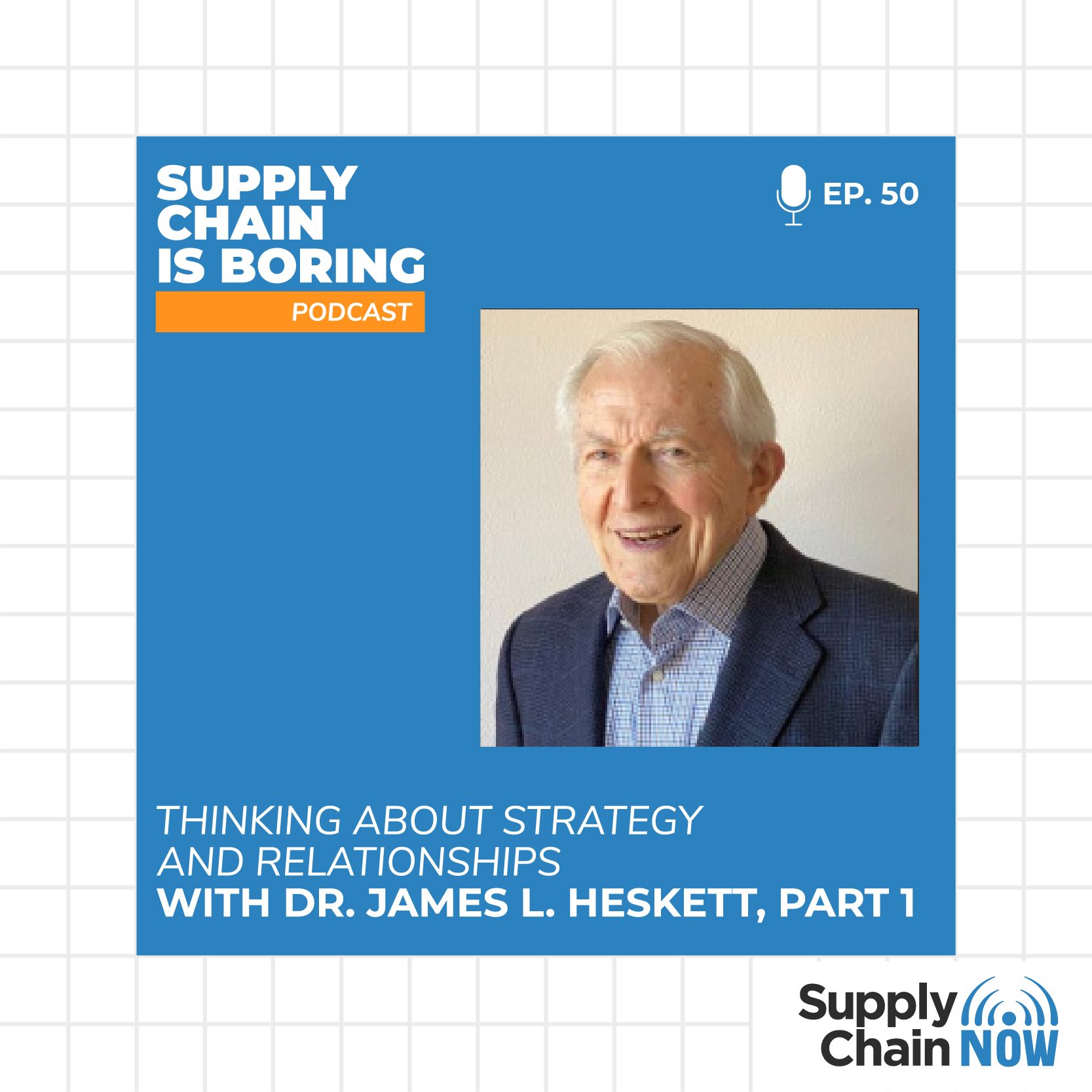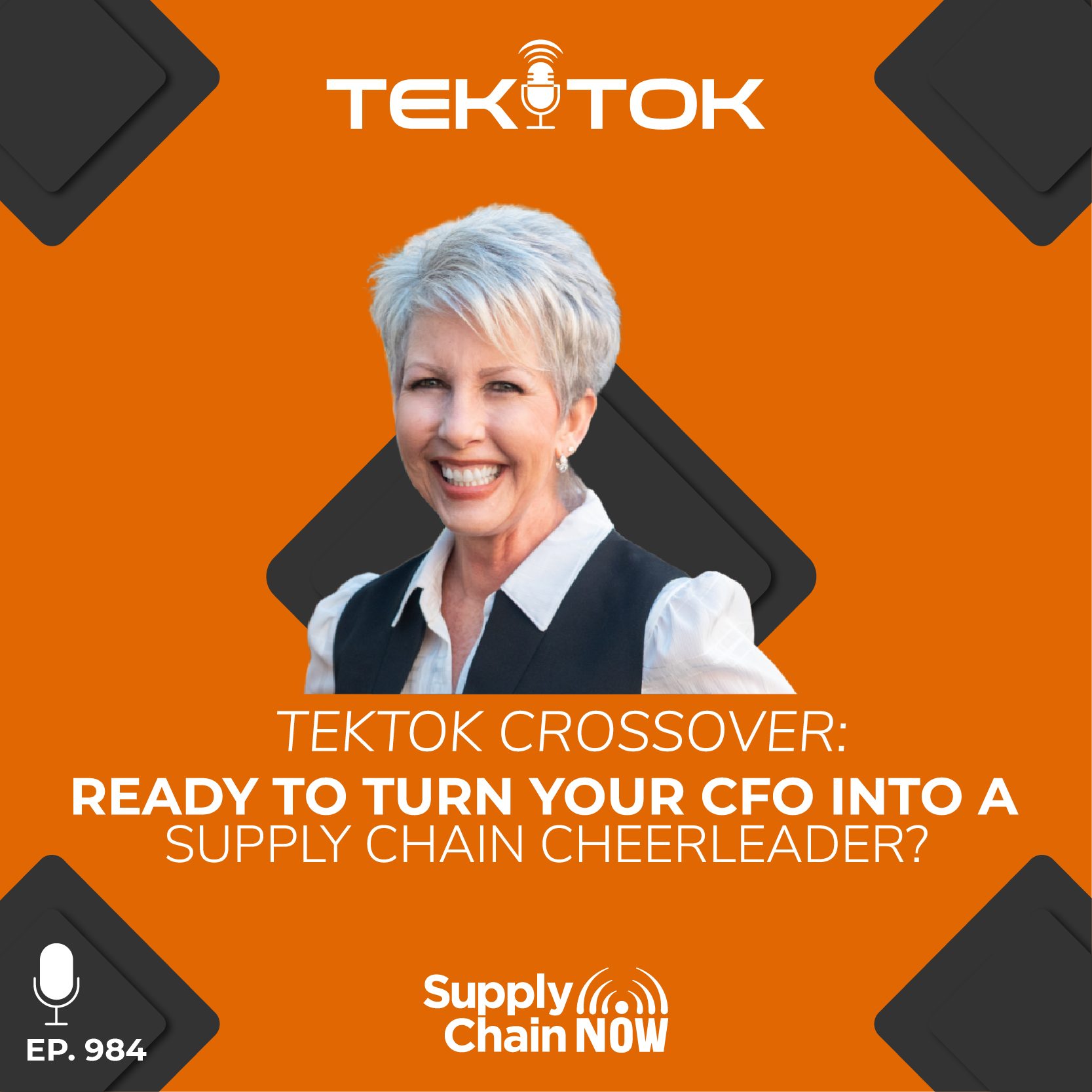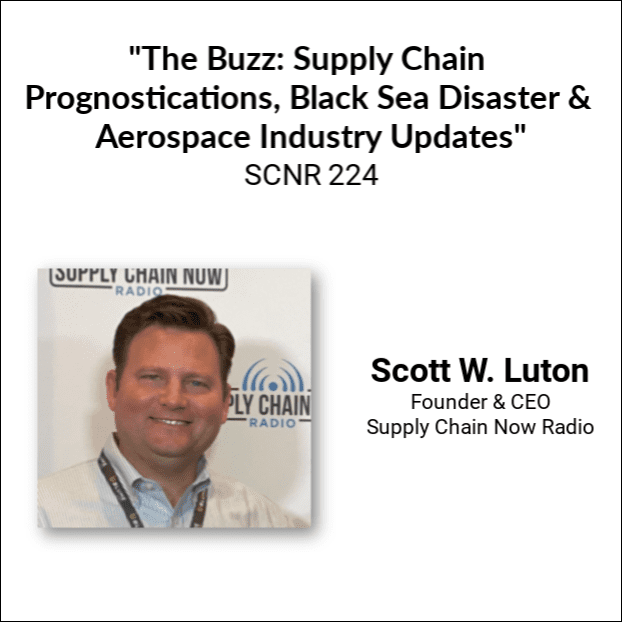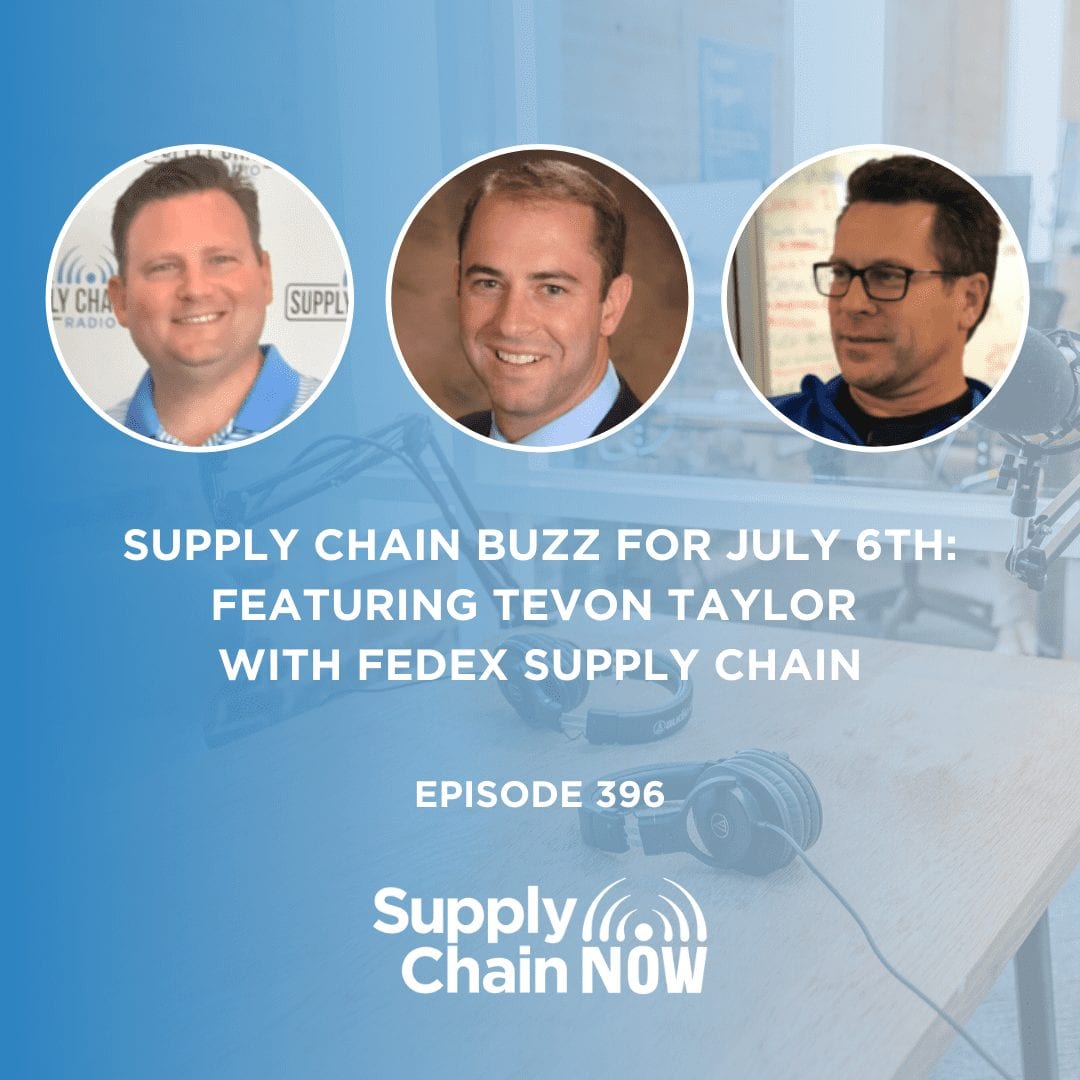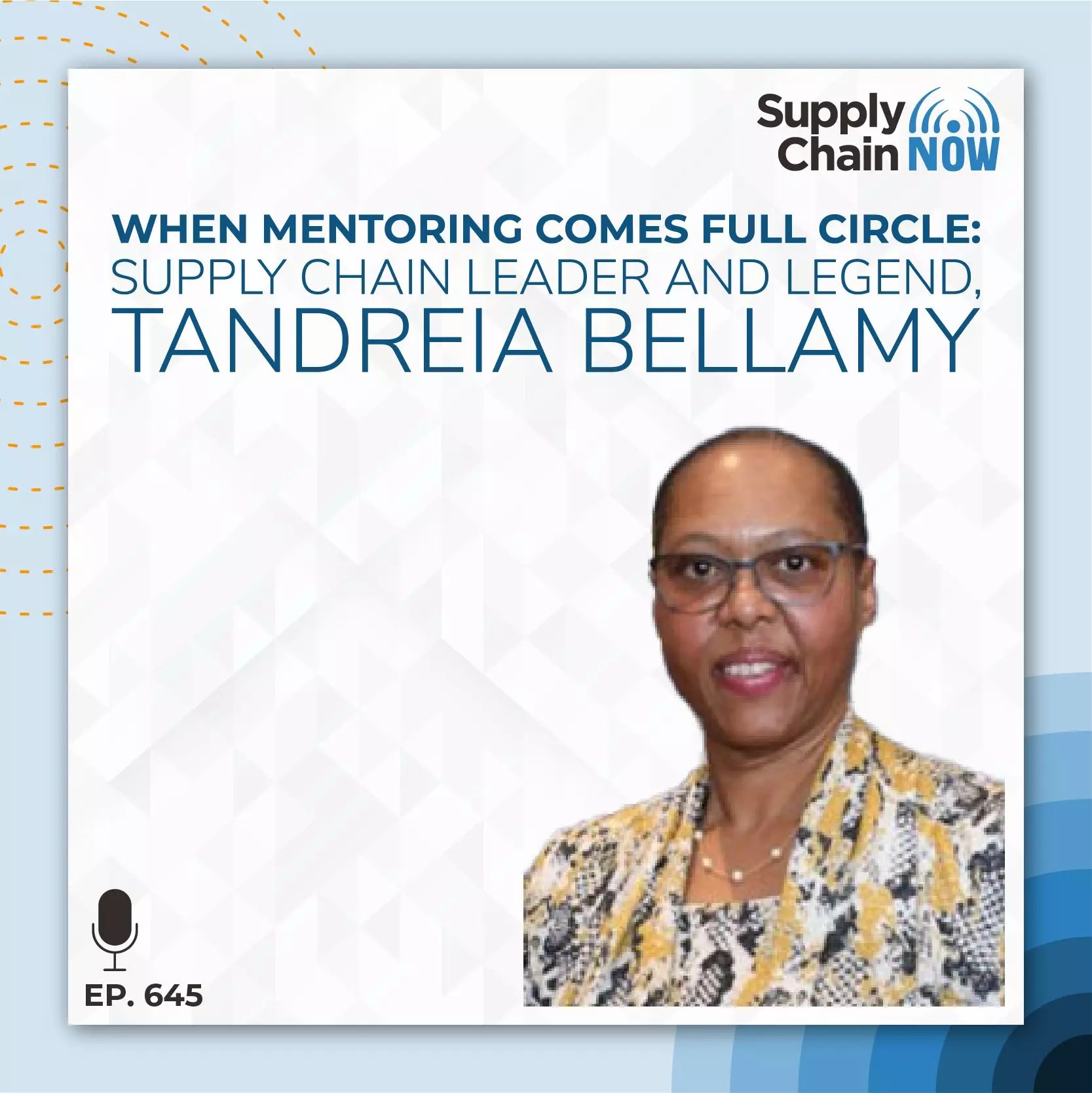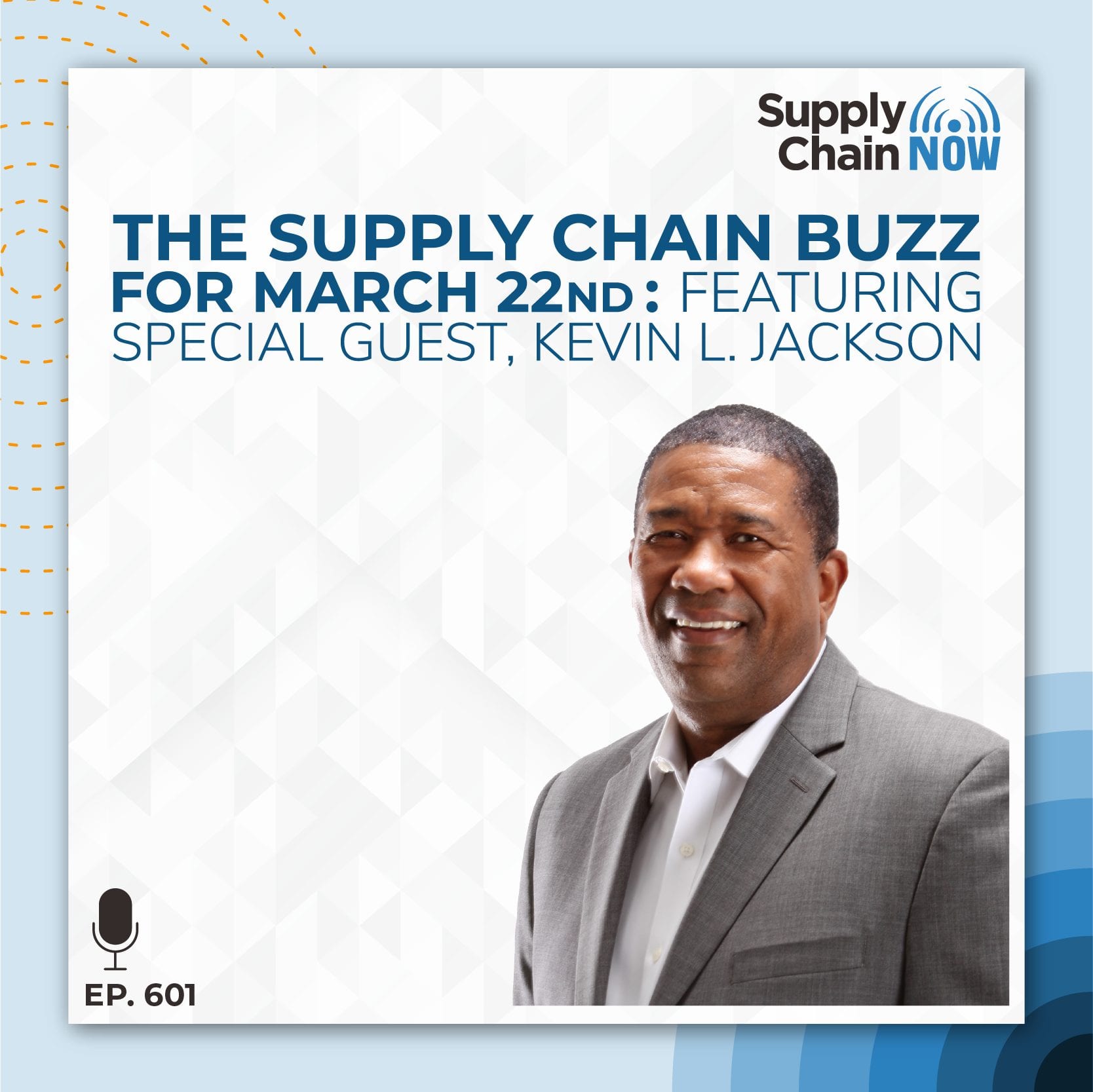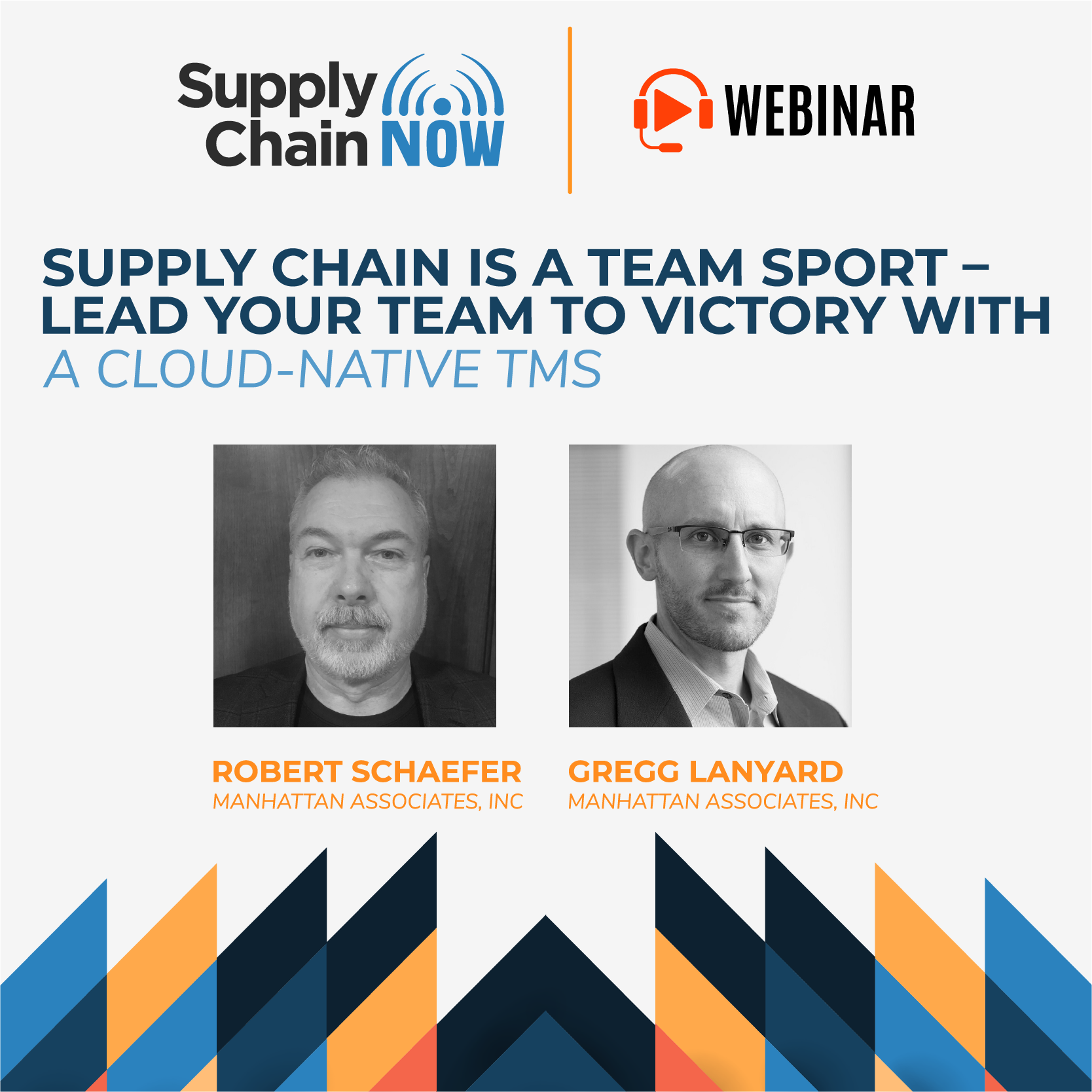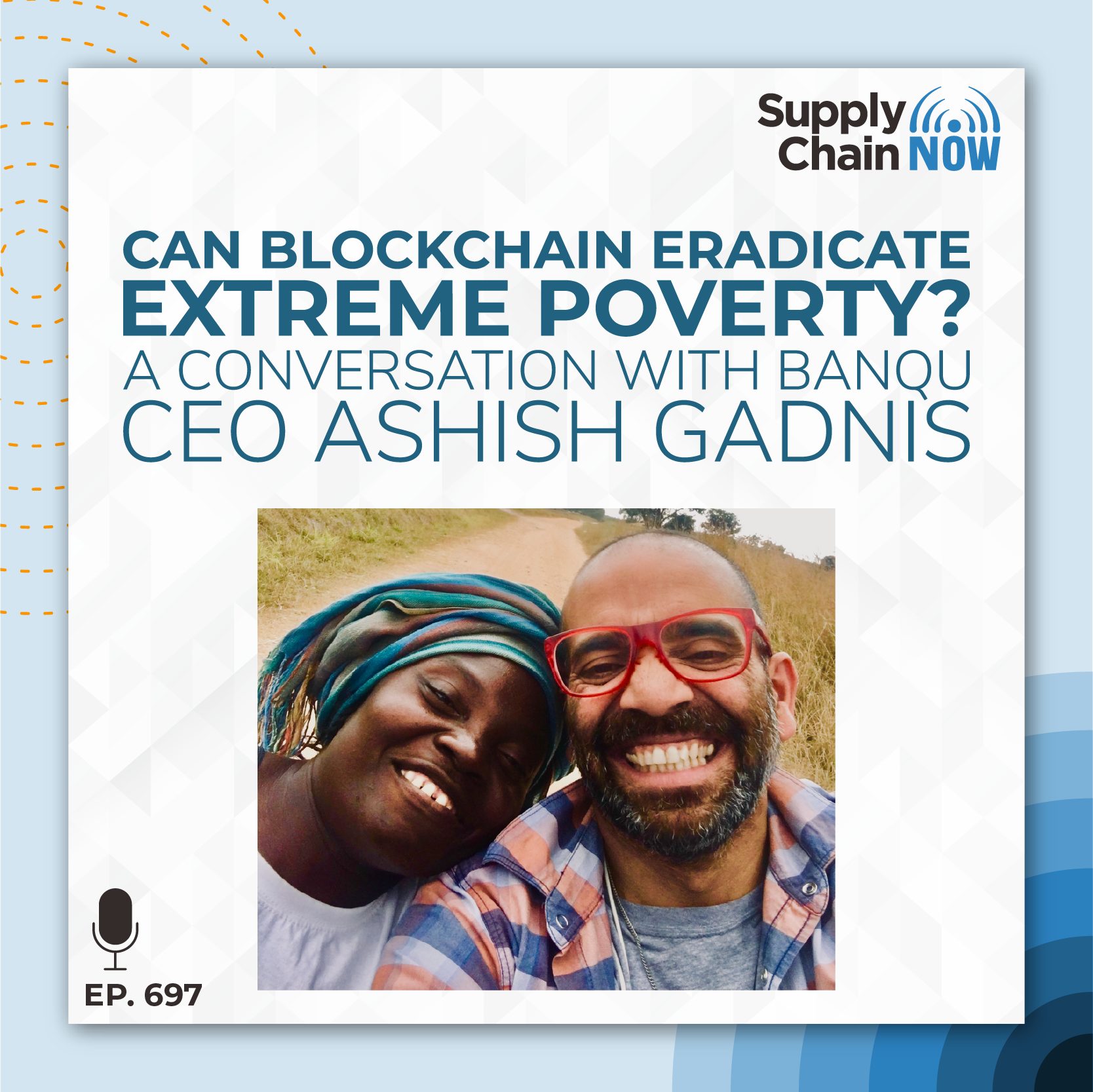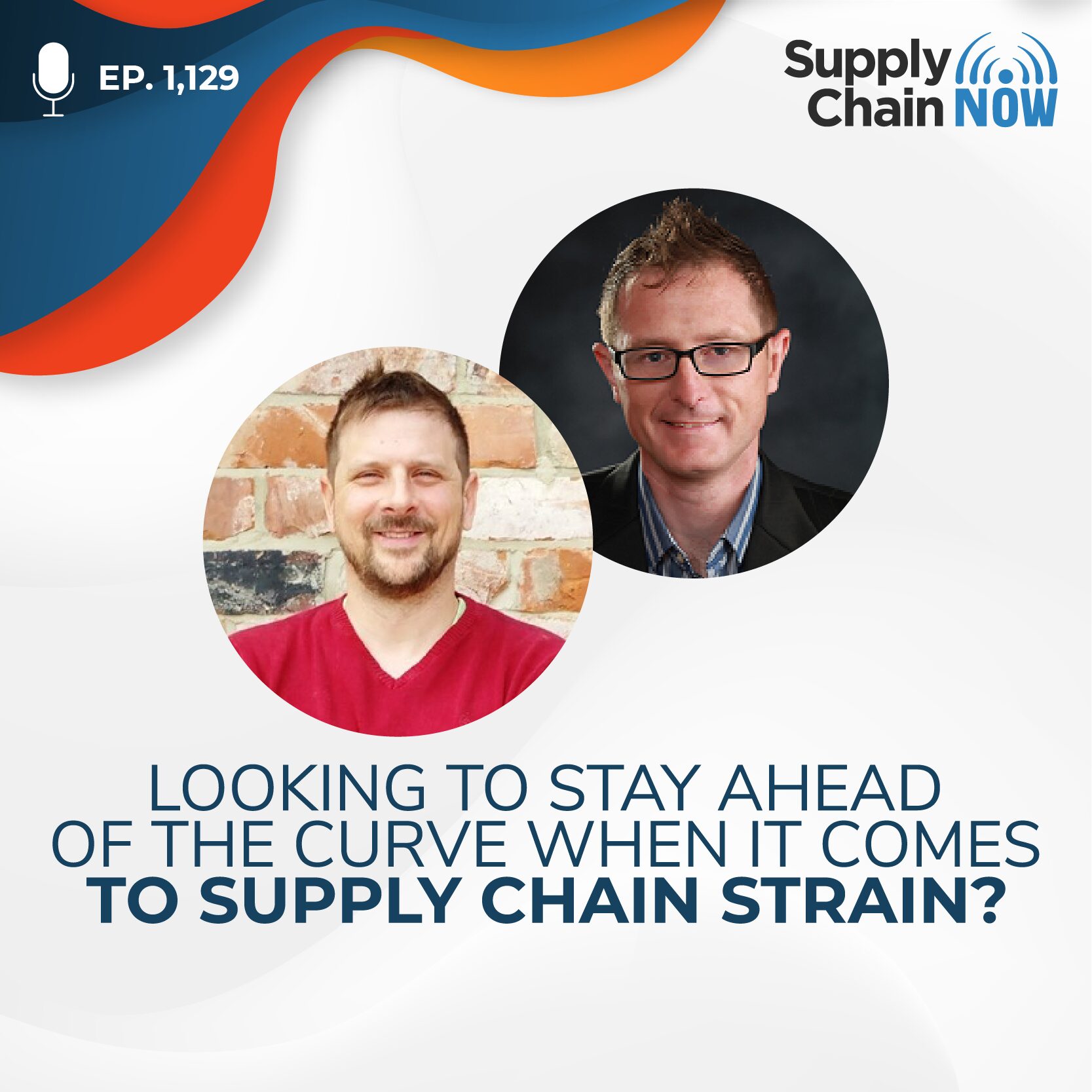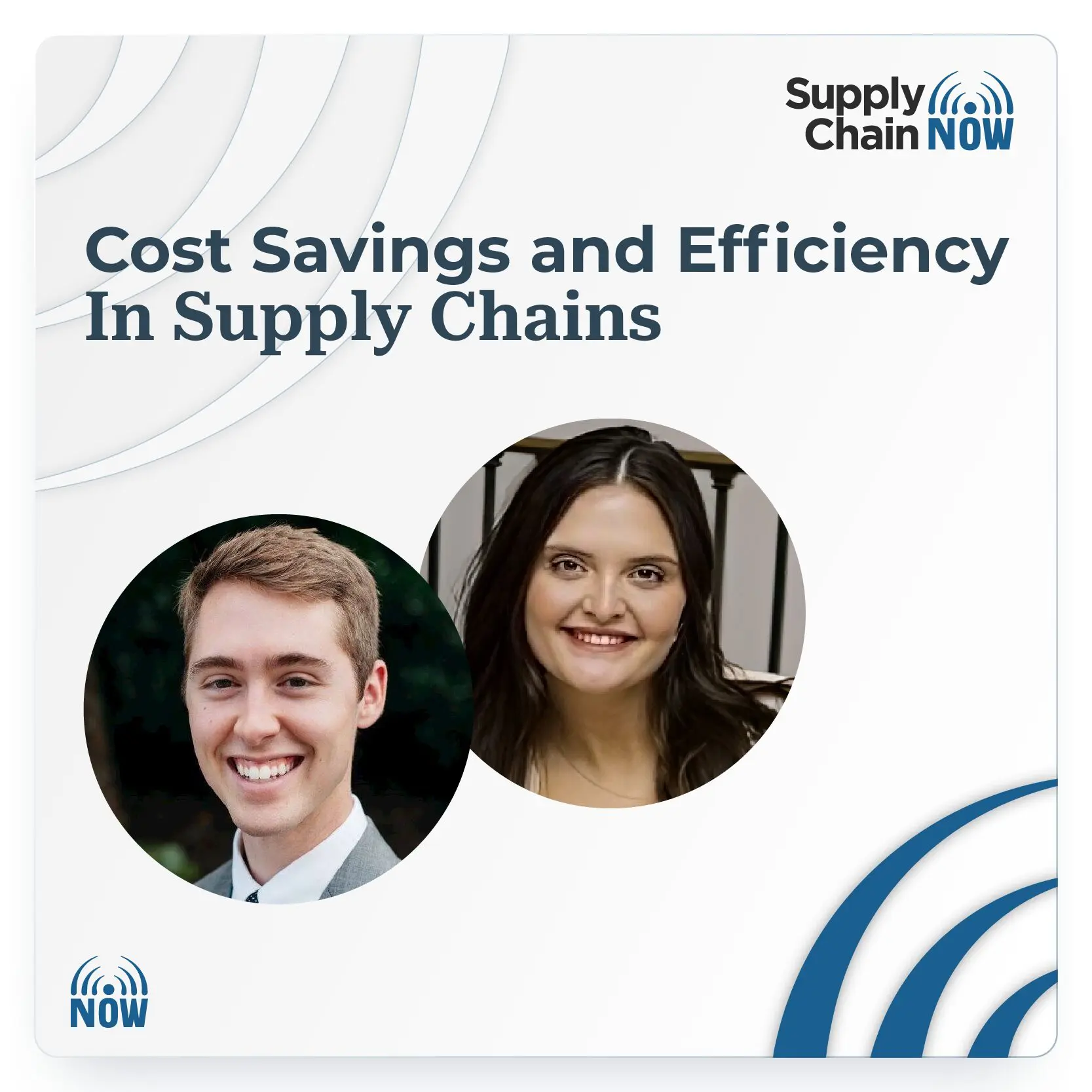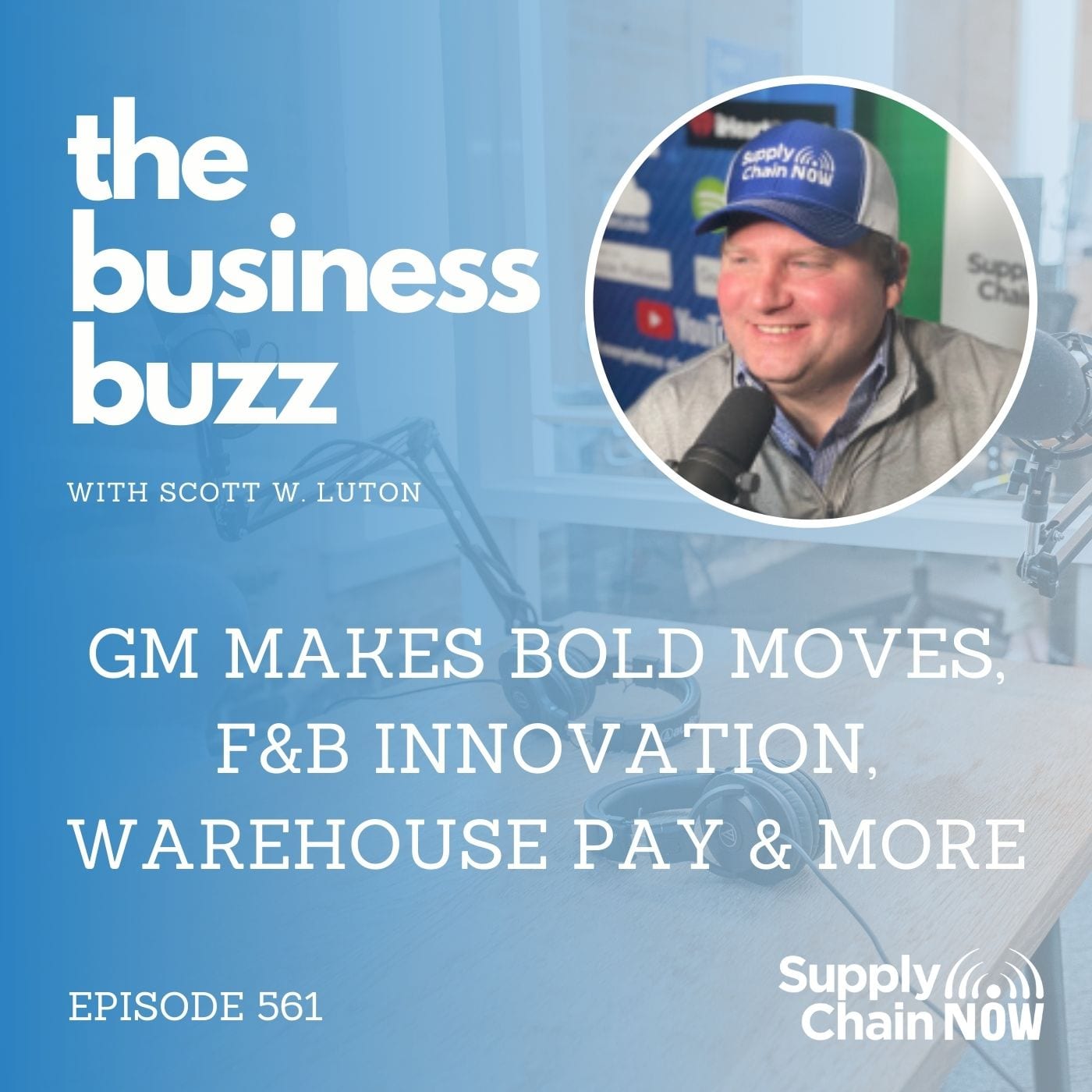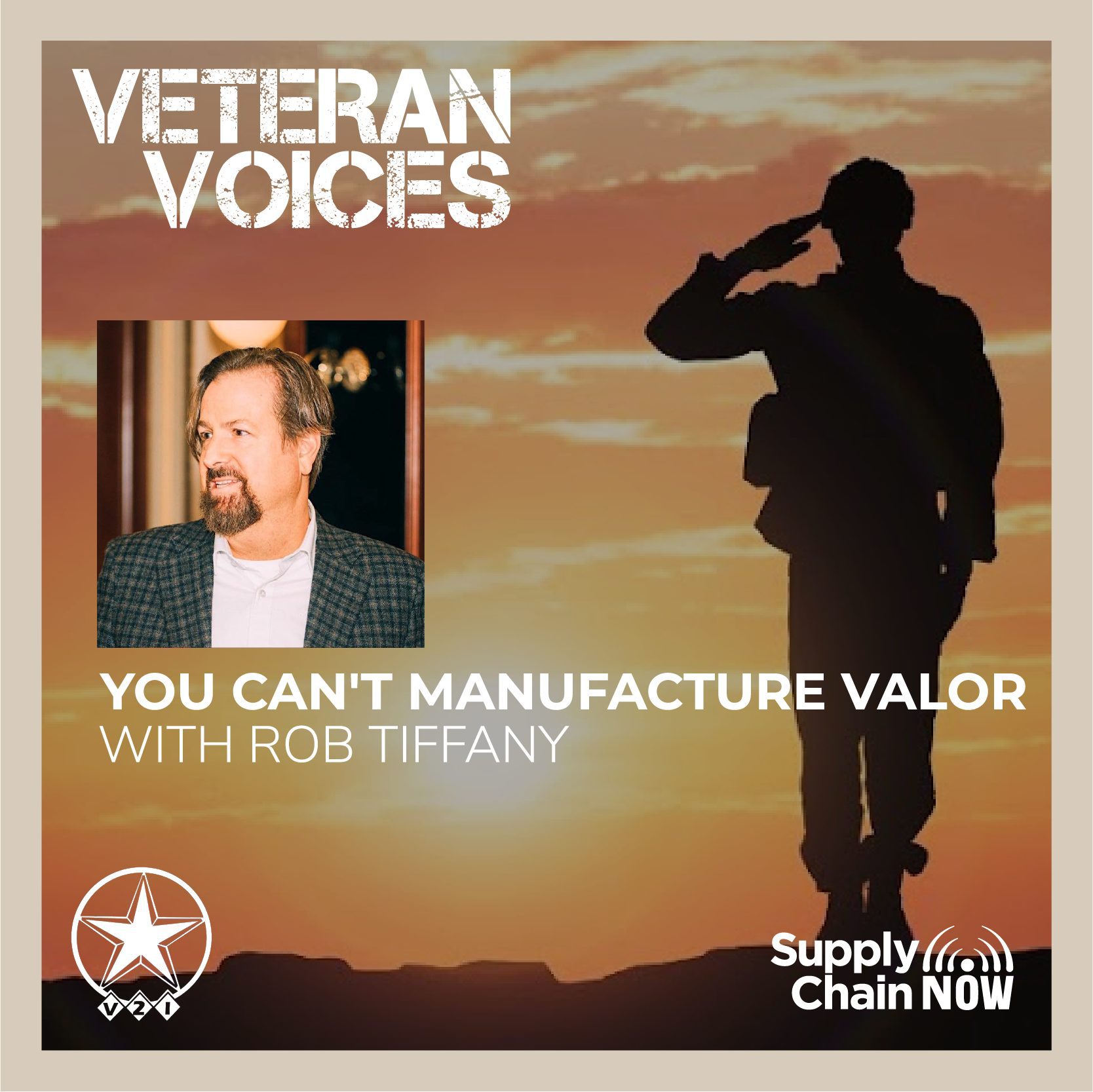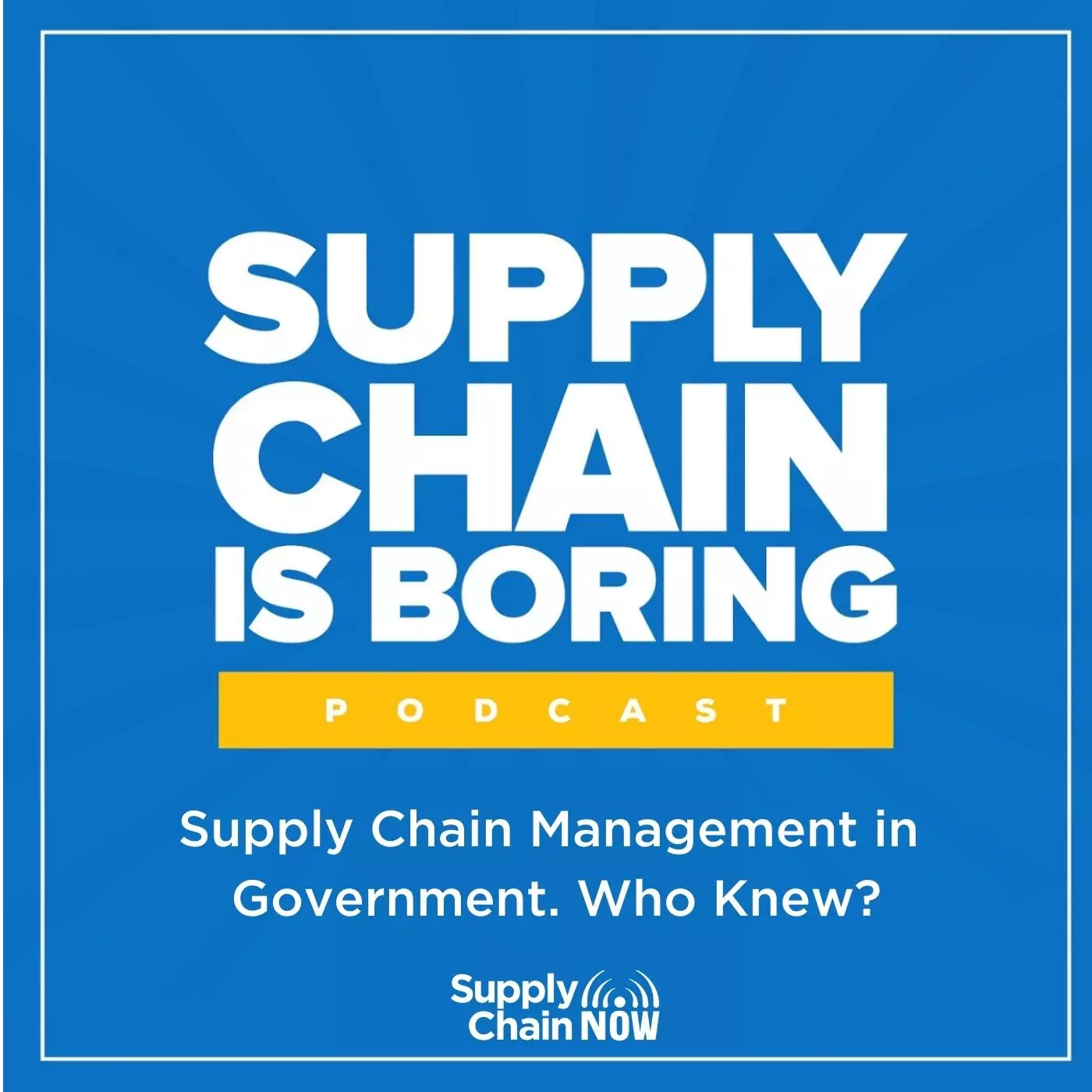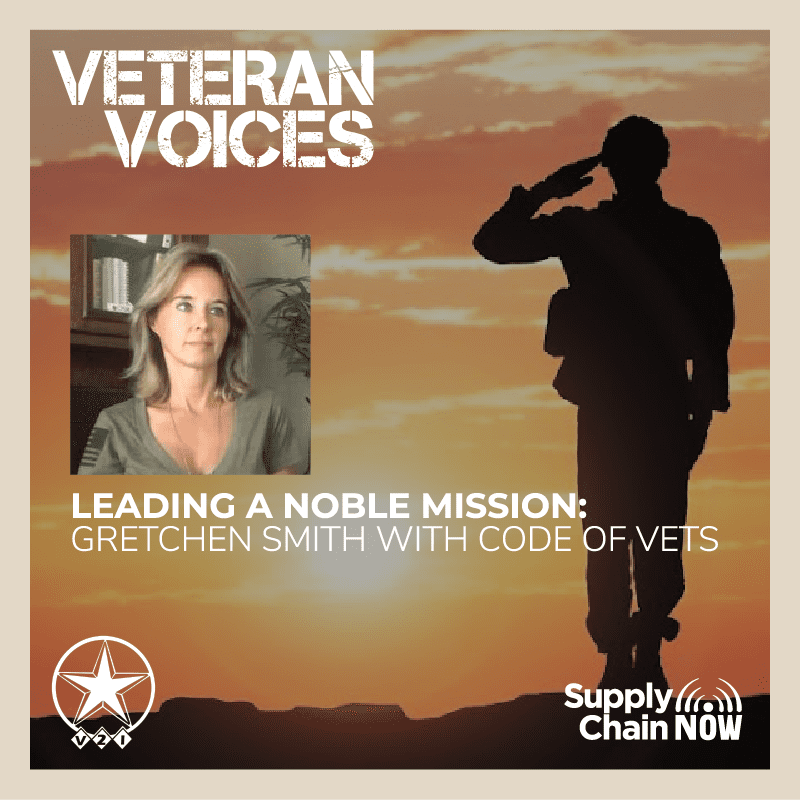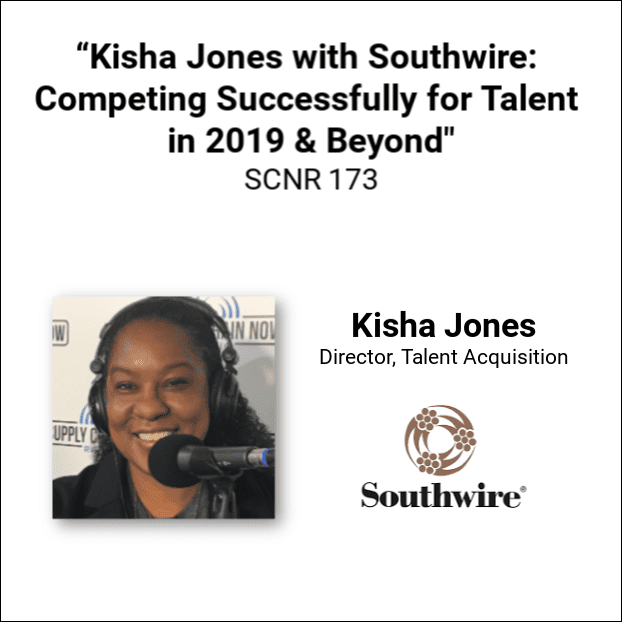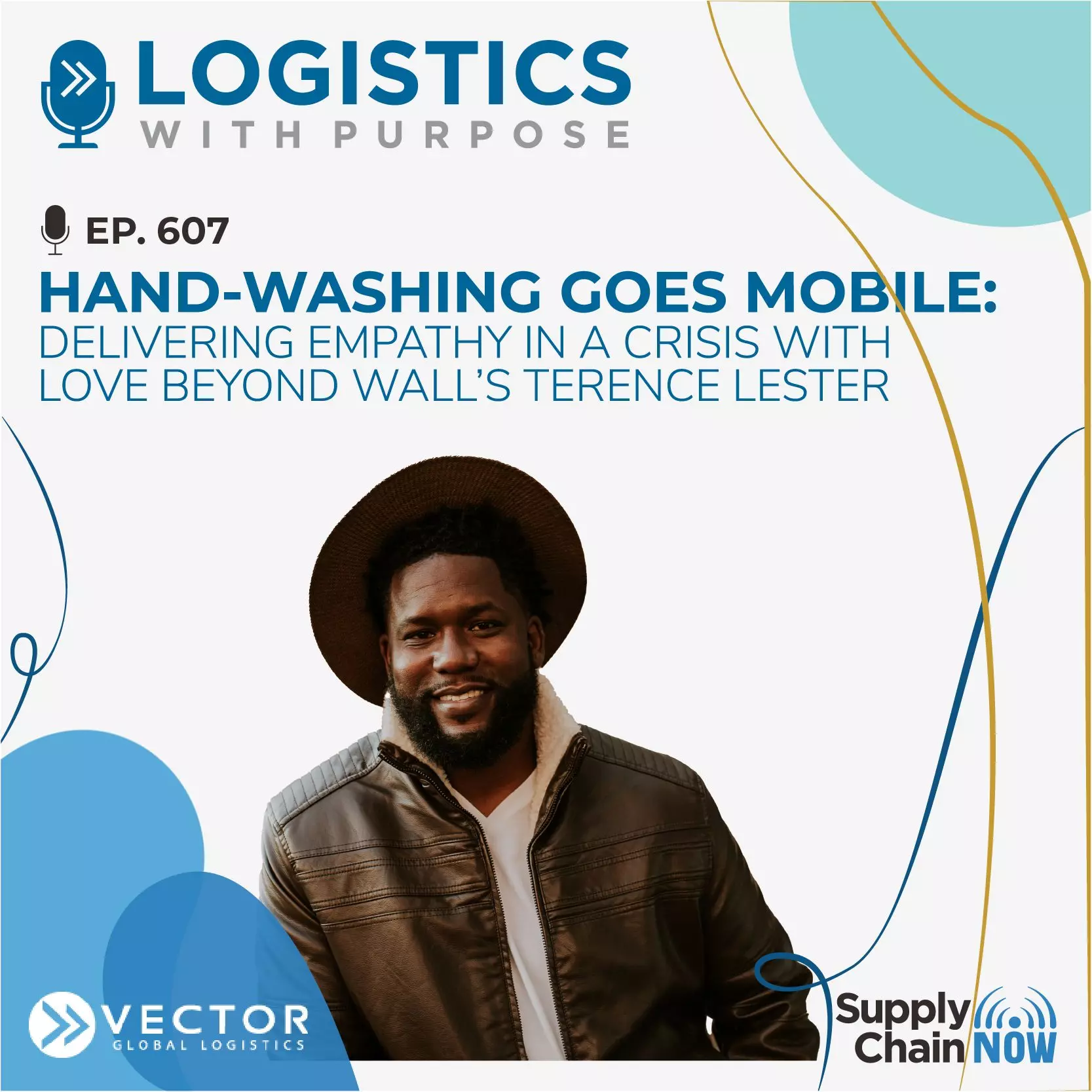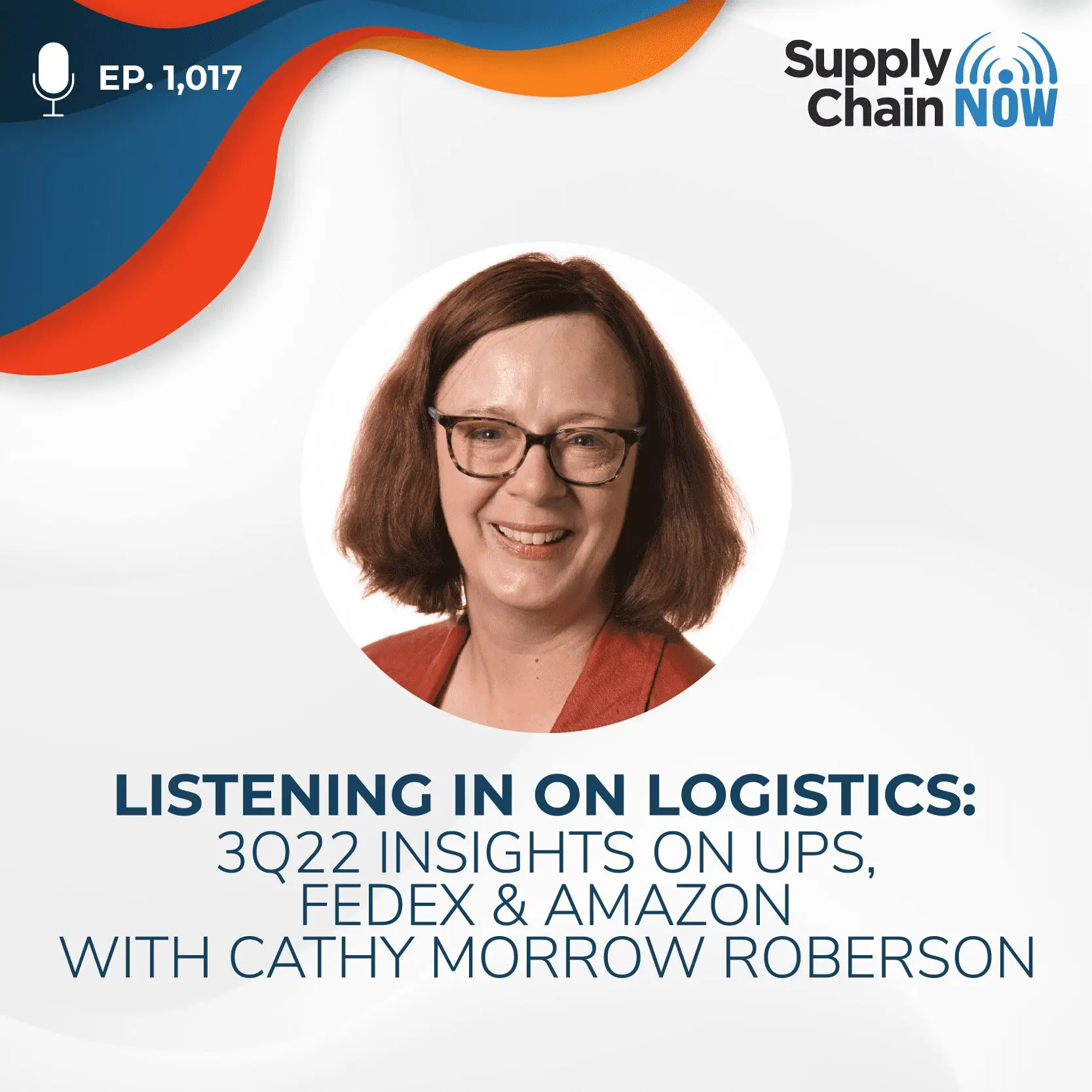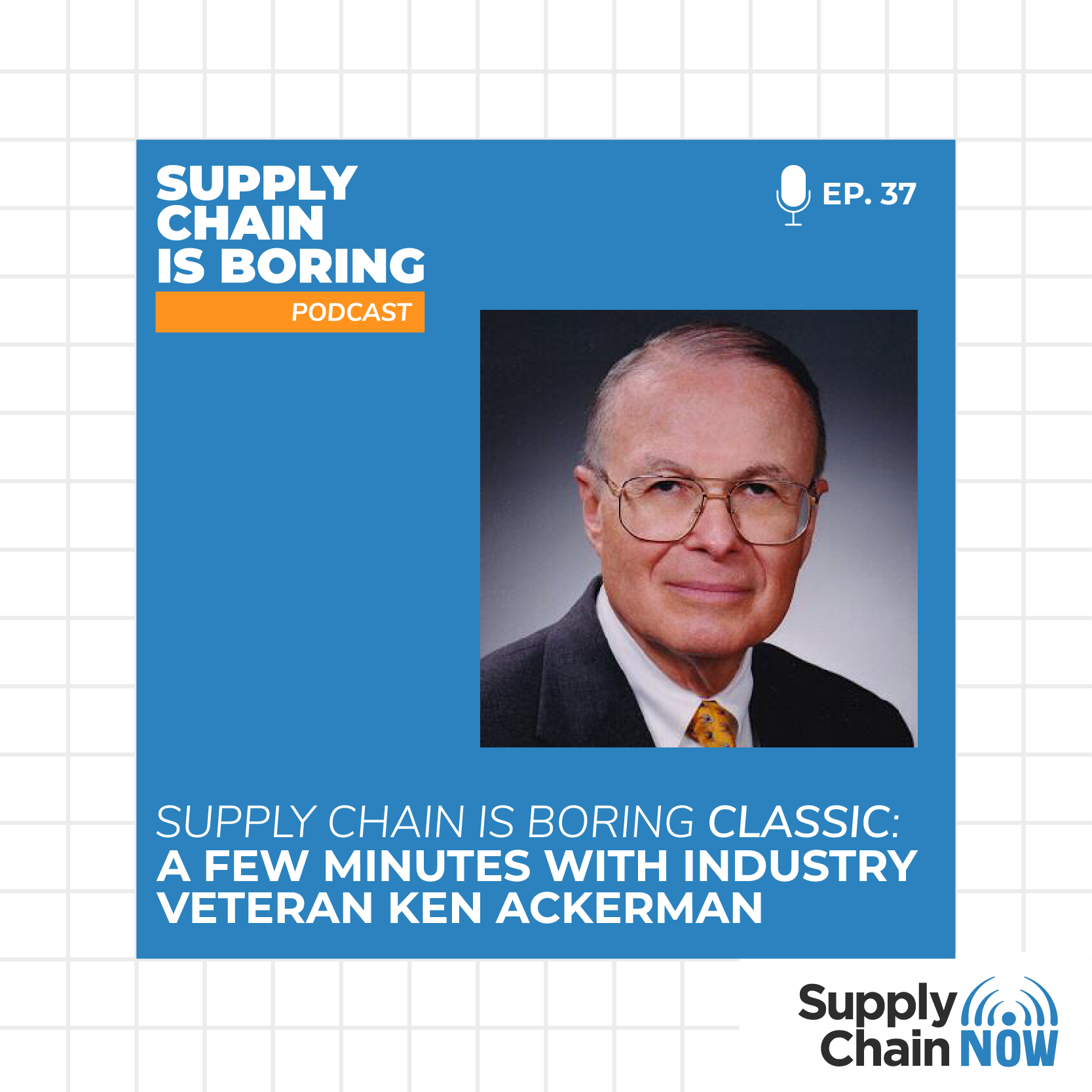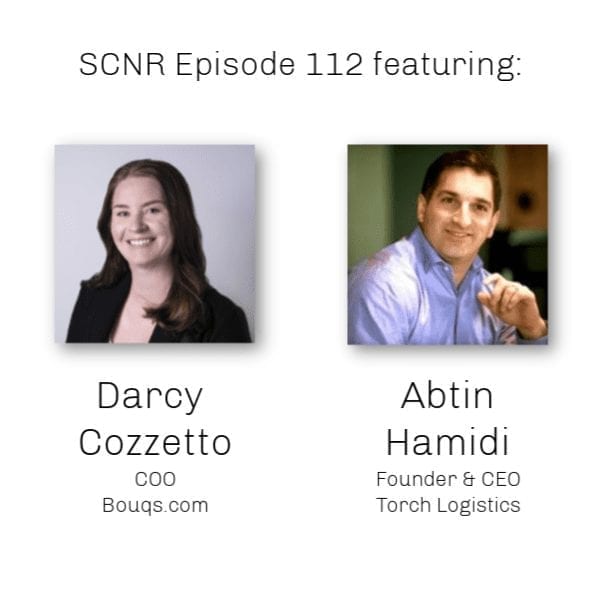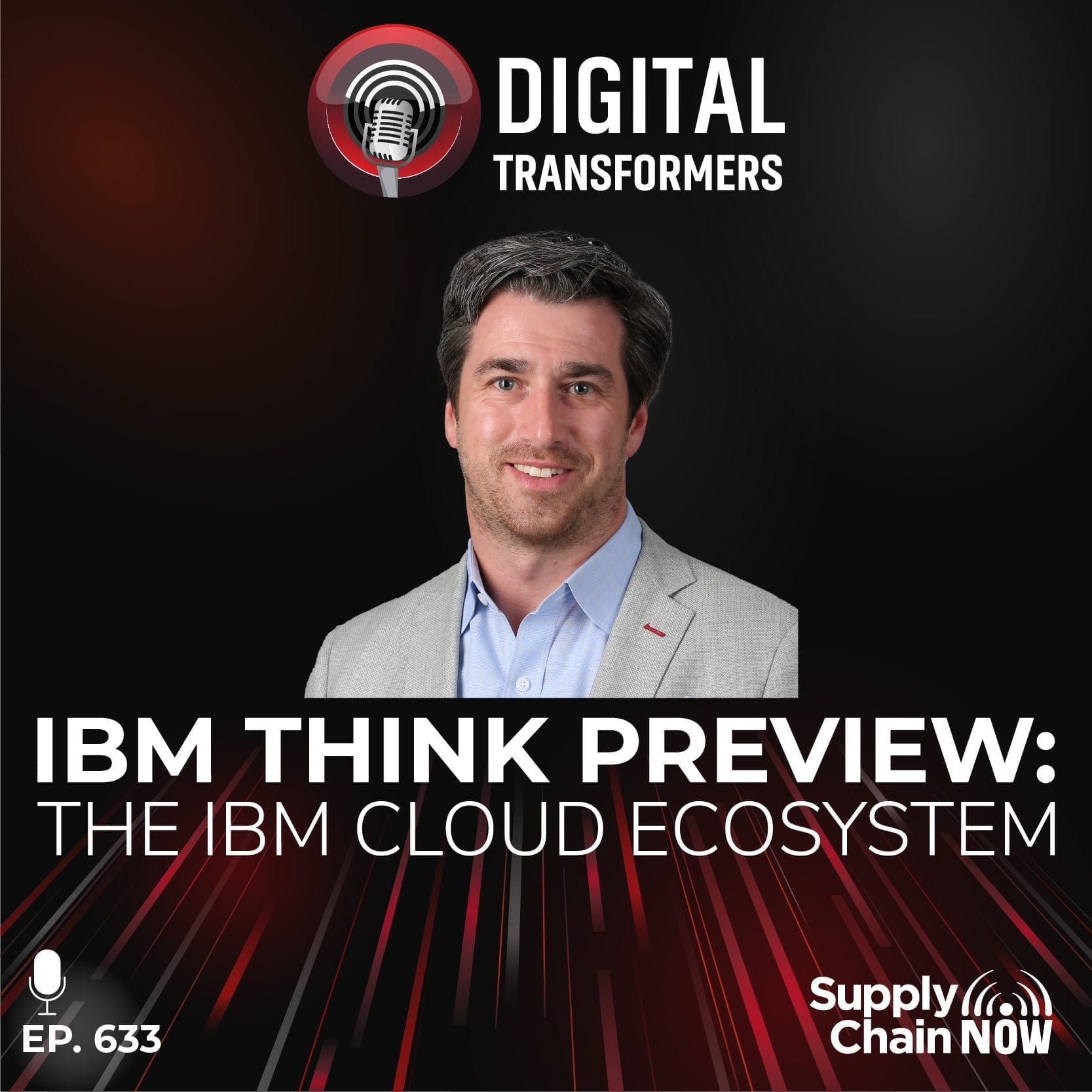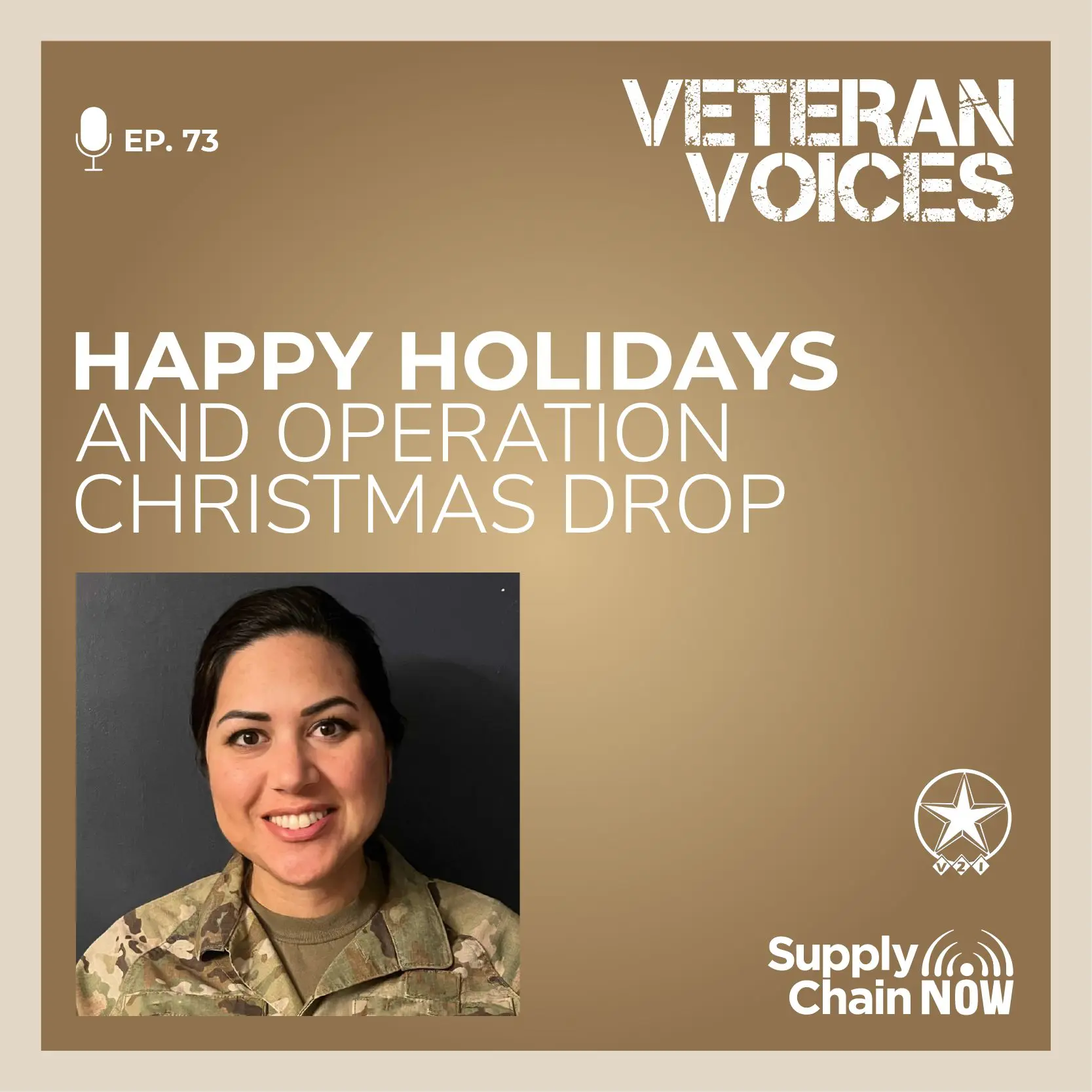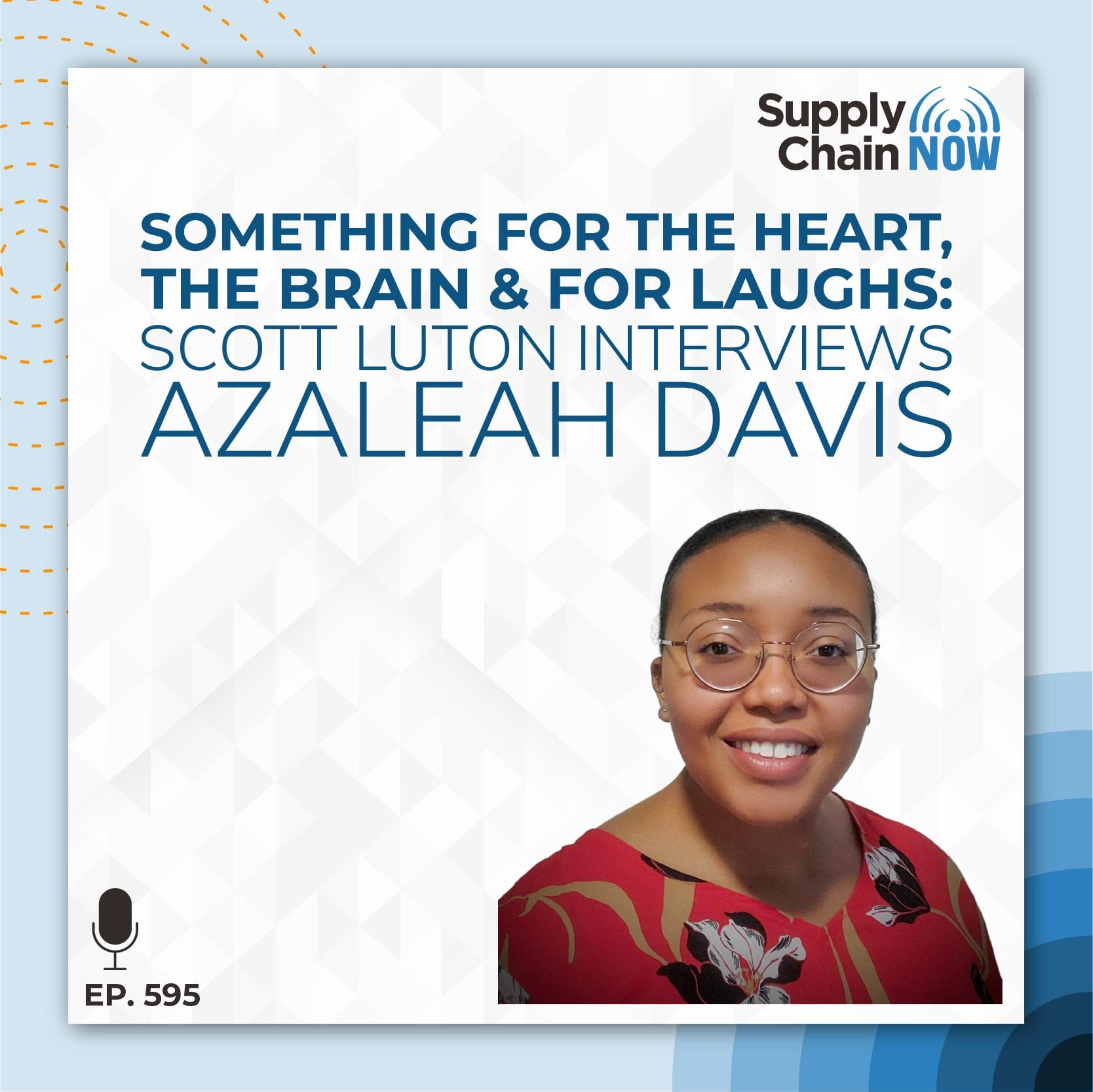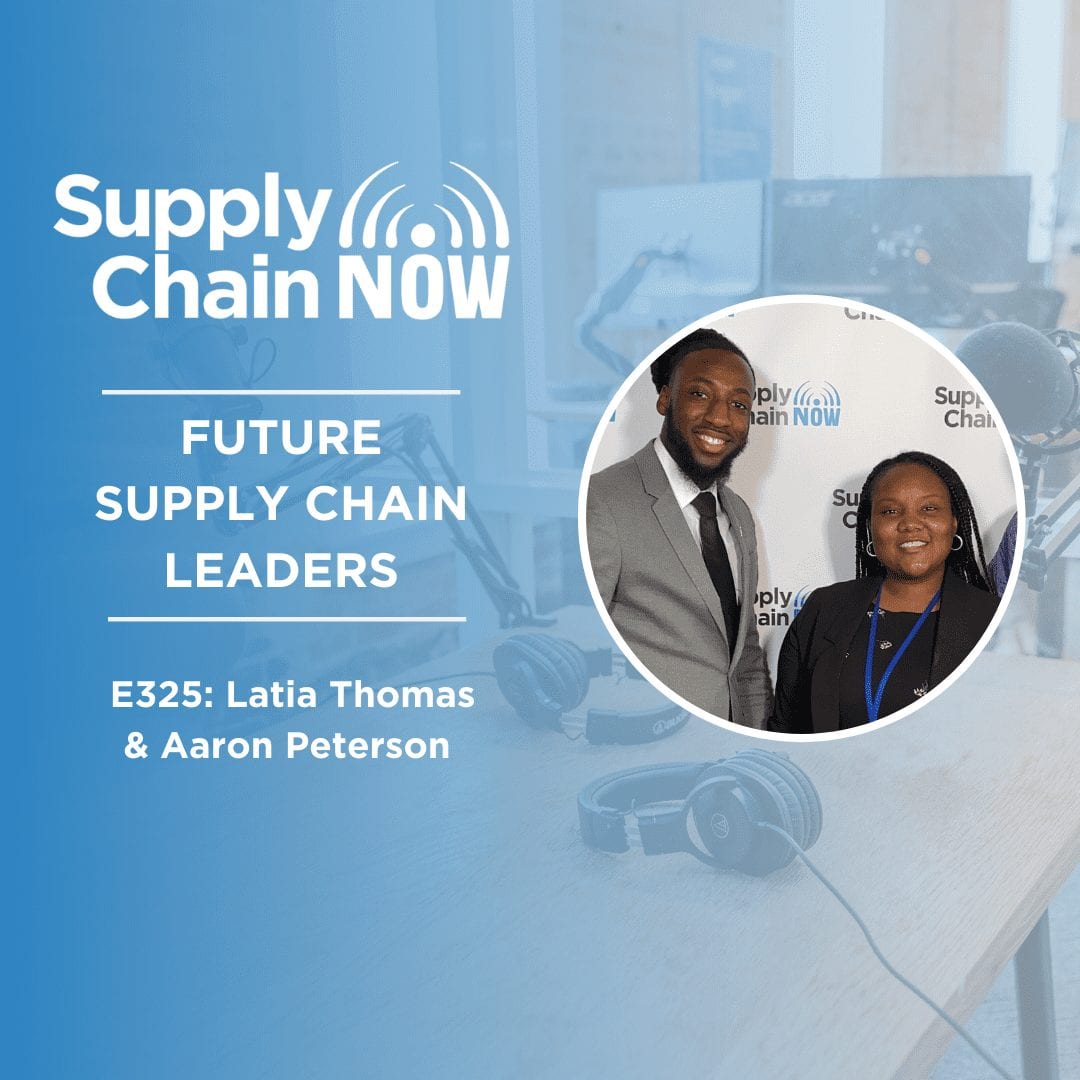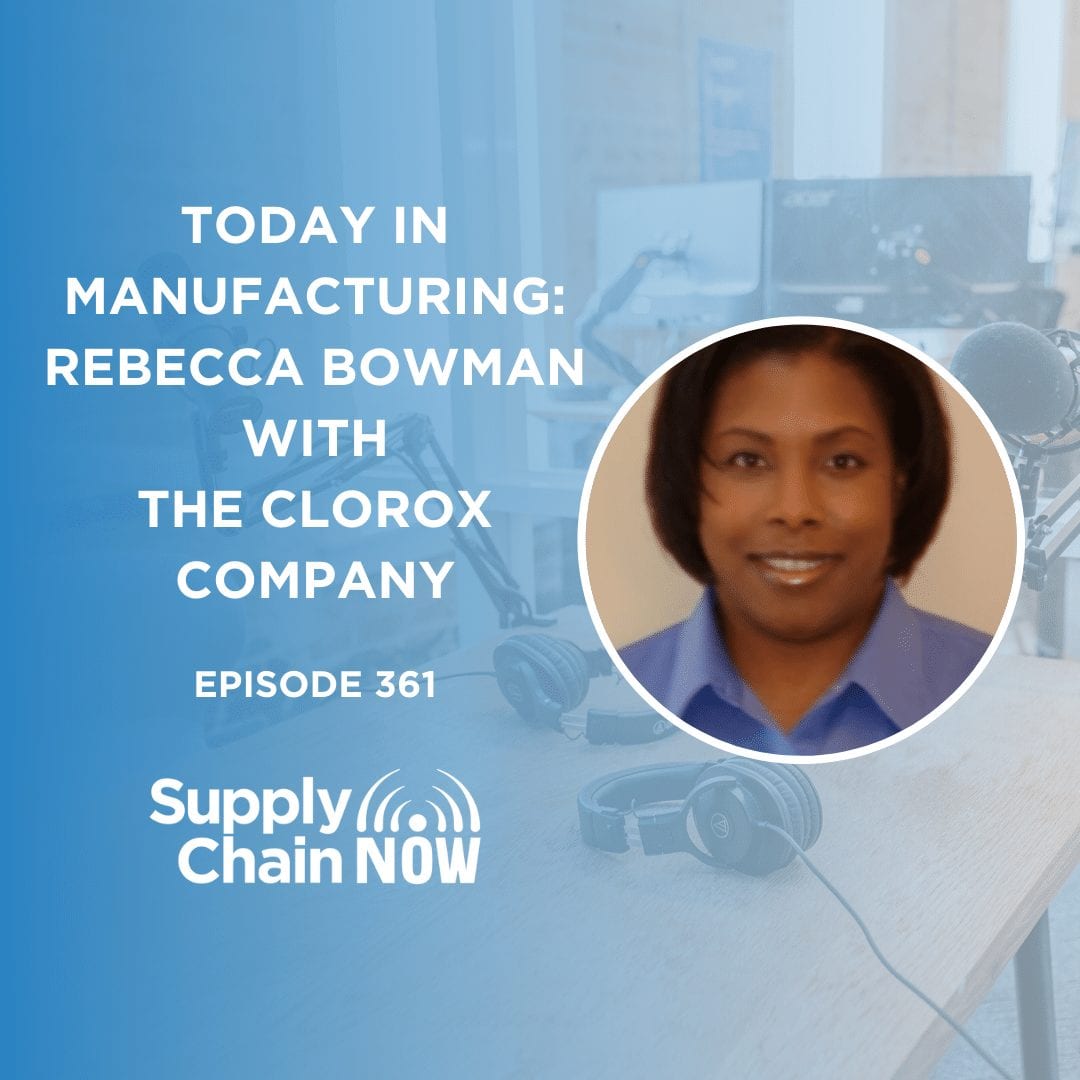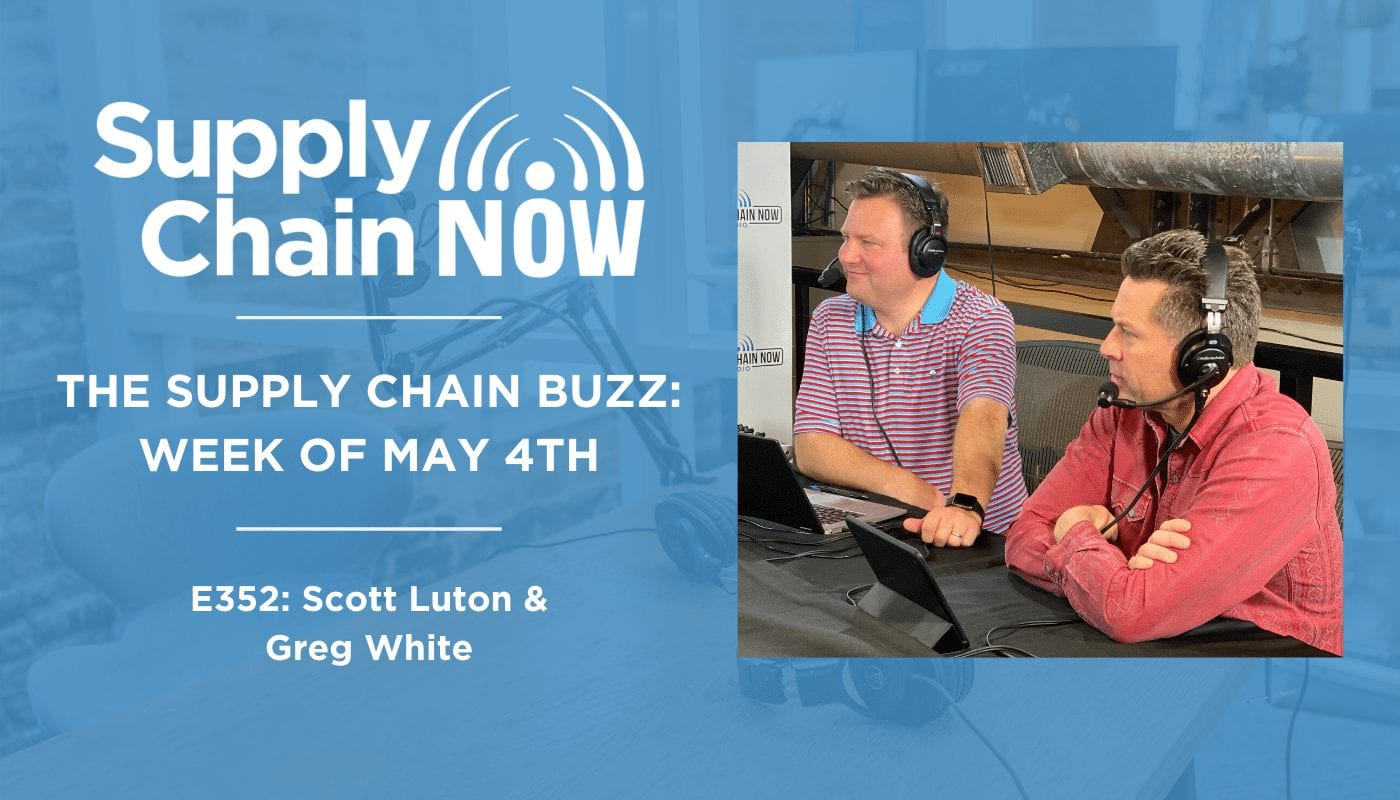
Episode Summary
On this episode of Supply Chain Now, Scott and Greg cover the top news in supply chain for the week of May 4th.
Episode Transcript
Intro – Amanda Luton (00:00:05):
It’s time for supply chain. Now broadcasting live from the supply chain capital of the country, Atlanta, Georgia, heard around the world. Supply chain now spotlights the best in all things. Supply chain, the people, the technologies, the best practices, and the critical issues of the day. And now here are your hosts.
Scott Luton (00:00:29):
All right. Hey, good afternoon Scott Luton and Greg white with you here on supply chain. Now welcome to today’s live stream. Today’s show. We’re continuing our supply chain buzz, right Greg.
Greg White (00:00:41):
We are indeed get your buzz zone.
Scott Luton (00:00:45):
This series is dedicated to covering some of the latest developments that have taken place the previous week. Uh, and and uh, offering our quick take on them and what’s important about it. And, um, you’re gonna want to stay tuned because the information that we offer today and especially the stories are certainly going to increase your supply chain leadership IQ. Greg, before we get started here today, what do we want to share? What we want to invite folks to do?
Greg White (00:01:17):
Um, we want them to sign up. Sorry, subscribe man. We got, we want them to subscribe. That’s right. The thing wherever you get your podcasts, also follow us on LinkedIn, YouTube, Twitter, Instagram. Because no matter where you are, then when we go live you’ll be notified of these as well. How do I do boss
Scott Luton (00:01:41):
was that they’ve been great. So typically Greg, as you know, a lot of them, the market is very familiar with our podcast, which has been around for several years. I think we’ve published right at about 103 hundred 50 episodes and we, we’ve seen some new audience members join us on the live stream that found us here first. Yeah. So if you, if you dig this live stream, we’d invite you to check out our podcasts wherever you get your podcasts from. I thought you did great Greg.
Greg White (00:02:07):
Also Facebook, I can’t believe I left that out. I mean that, that’s news in a way because we see a lot of people, we see a lot of people getting business content on site. Well they’re familiar and comfortable with that platform. That is right. Um, and so strangely, I mean we’re seeing a lot of play there.
Scott Luton (00:02:28):
Well, you know, it is Monday, so we all get a couple extra free passes, but we have really enjoyed, uh, this revamped supply chain buzz. And let’s you know, Greg, uh, let’s dive right in to this day in history, May 4th. I love it when you do this. Alright. Alright, so I think we’ve got a graphic or two. So every year the free, uh, actually we’re going to do a quick wave with that graphic before we even get started. Let’s do it. All right. We’re having a little fun with this today. That’s right. So, Greg, have you ever heard the phrase line of demarcation? I have heard it. So have you ever wondered where it comes from? I have wondered Scott. All right, so on this date in 1493, Pope Alexander the sixth divides the new world between Spain and Portugal. And of course, that line, that famous line, which wasn’t really tied to a specific parallel is the infamous line of demarcation, which is this one 1494, I think is when it was, uh, it was fully ratified, but the two countries, and then a treaty comes along a few years, few years later, and they shift that line, uh, quite a bit eastward.
Scott Luton (00:03:46):
But that’s where that line of demarcation comes from. So if you’re to divide East and West, it was to divide the new world, uh, amongst Spain and Portugal. It ignored other European countries at the time. And so those European countries largely ignored the line of demarcation. Okay. Hey, when you’re Pope, you could do stuff like that. All right. So those were the days. Next up, May 4th. So, you know, Greg, we are really missing our sports, right? Um, we had a family get together of the night and it reminded me of a couple of dear bobbleheads that I broke out from the closet. This, this one here. Uh, chipper Jones, hall of fame, third baseman for the Braves. This was a head in his last game, played, uh, at in home stadium, uh, which at the time was turning. That’s, yeah, that’s right. Yeah. I’m trying to, not neat little trivia question there, but, and of course that’s right. And, uh, Hayward, Jason Hayward Cubs got him now, but, but we were really missing our sports. Um, so on this date, May 4th, 1871, the first professional baseball league opened, uh, called the national association. Greg, any ideas where the national association was formed?
Scott Luton (00:05:11):
Couldn’t even guess. Well, I’ll give you a hint. It’s in Indiana. Oh, uh, pick your favorite city. Indianapolis, Indianapolis, close Fort Wayne, Indiana. I say close. I’m not sure how far Fort Wayne is from Indianapolis, but you know, so, so not only did Fort Wayne host the first ever professional baseball association, but our crackerjack research team led by Malcolm, found that Fort Wayne was also has been home, uh, to a slew of inventions and innovations through the years, uh, including gas pumps and refrigerators. That all originated from the city of Fort Wayne, Indiana. I think that’s pretty cool. And you said Cracker Jack in regard to baseball, how about that subconscious, you know, as always, Greg white doesn’t miss a single thing. Uh, let me pause for just a minute. I want, I’m trying to get our live feed on our LinkedIn lab channel to see who is his tuned in.
Scott Luton (00:06:10):
We like to give shout outs to, to folks as they tune in. Maybe the, maybe the internet needs a pass on this Monday. I don’t know really. Is LinkedIn not lighting up? It might be running a little bit. So it is. Okay. All right, well we’ll see if we can’t get that up here in a minute. Um, all right, well clay now has been exposed to the free world so he can just pop in whenever LinkedIn comes up and let us know. Absolutely. So clay, uh, who’s quarterback and along with Amanda this session here today, kind of behind the scenes, uh, if, if LinkedIn live is good to go, we’ve got some folks that are tuning in and, and, and giving shout outs as they typically do. Feel free to, to chime in and let’s make sure we’re polite and uh, we offer, offer up a pillow on a Monday afternoon.
Scott Luton (00:07:02):
Okay. So last thing is we wrap up here in our opening remarks. Uh, so today is celebrated as anti-bullying day at the United nations. It’s bird day here in the States. It’s greenery day in Japan amongst other things and around the world. Made a fourth be with you. It is star Wars day internationally, right? That was my wake up text from my mother. Huge, huge star Wars fan. Celebrate it. You will. How about that? Your mom, which one was her favorite movie out of all the, now it’s called a new hope. The original star Wars was her favorite. I recall by the way. She and I, she knew it was going to be a great movie and my younger brother is a huge fan, has all kinds of collectibles and things like that. Um, hit him at just the right age. We were driving around and she said, do you think you’ll want to see this star Wars movie?
Scott Luton (00:08:00):
And I said, nah, it’s probably going to be another one of those half-baked Saifai flicks. Right, right. And um, wow. Was I wrong? Right. Absolutely. Uh, well I loved it. I love it. I love every one of them. Well, so I think there’s been that, uh, been non-core movies and some supplemental movies that all play in the star Wars universe universe and I can’t imagine the total revenue, what that figure is that now maybe Malcolm can can pick up on that and feed it to us before we leave. Alright, so the LinkedIn lab feed is up, so we should say hello to a few folks that have joined us here at the top of the show says sheen, a procurement executive. Hello says sheen. Good to see ya. Thanks for joining us here today. Uh, Cassiana who’s been on a couple of these live streams, a mechanical engineer above, above my pay grade. I’m not speaking to you, Greg, but certainly above my pay grade. Glad you were here. And we look forward to their comments and contributions and as well as their, their take on these stories that we’re going to cover here today. Alright.
Greg White (00:09:10):
Hey Scott. Uh, Malcolm has shot me a note and said that star Wars has brought in 9.3 1 billion us. Wow.
Scott Luton (00:09:20):
Unbelievable. Unbelievable.
Greg White (00:09:23):
Going to George Lucas because he, he basically gave them the first movie to get them to do it, but kept all the merchandising rights and the rights to the subsequent movies. Really? Yeah. That’s my thought about a believer, right?
Scott Luton (00:09:39):
That’s right. He had a vision and then, and he’s scared of that over the last a what, 40 years now. I want to say first one came out in the mid seventies,
Greg White (00:09:46):
seven is when star Trek or star Wars came out. Yeah.
Scott Luton (00:09:50):
All right. So as much fun as we could have with the trivial on the front end of the supply chain. Well, you know, we’re gonna talk about the second episode and installment of supply chain trivia nights. So to our listeners, stay tuned. We’ve got another great competition, fierce competition coming up just next week, but more, more to come on that momentarily. Um, so Greg, let’s dive into the buzz. What you think.
Greg White (00:10:14):
Let’s do that. Yeah, let me, um, uh, first of all credit this story to verus financial. Um, they have this commerce signals, uh, report and they’ve been kind enough to share this one for no charge. I think they ordinarily charged for these things, but they’ve shared their April report, um, and it’s got some pretty revealing information in there. So they, uh, again, commerce signals reports that uh, consumer spending was down 11% in March. Um, some, um, some industries were down more with travel related, all travel related industries all down between 69 and 92% in the final week of March 92%. Hmm. And that’s virtually not operating. In fact, airlines were, were the ones down 92%. Um, so that obviously the trend has been down and this is a heat map, so you can see where it goes green to lighter, green to white, then to red. You can see the trend.
Scott Luton (00:11:22):
That’s what saved my eyes in the chart. Can you imagine this was just a spreadsheet? I love how they’ve overlapped overlaid the heat graphics to it.
Greg White (00:11:30):
Yeah. And it gives you, and you know, you don’t need to look too much at the words. If it’s dark red, it’s pretty much travel related. Um, so, uh, there’s a lot of travel. I think the least decline that we saw in the last week of March was rental cars. So people still are at least running a few cars here and there. You know, if you think about air travel, look over your house and see you see any vapor trails, right. They are few and far between right now. So, um, now there was some good news. Grocery was up over 50%, uh, for two weeks there in March. It started to level off as people’s, um, um, pantry stocking has, has maximized, I don’t know about you, but we’re, we’re finding a lot of things to eat at home and a lot of different ways to eat it.
Greg White (00:12:21):
Um, although we have gotten out to restaurants and we’re gonna talk about that and just a little bit and mass retailers and some other, um, other, um, retail was up pretty significantly mass retail up around 10, 15% over the same period of March into April. Um, now let’s talk a little bit about restaurants. Uh, restaurants were down 60% in March. Recall that the world really started shutting down the second week of March, right? And you can see that even online, uh, sales of restaurants, which had been trending 30% above the previous year dipped to almost no improvement over the previous year, dipped by about 60% from where they were. But you can see over the last couple of weeks, I say, see you. If you read in the article, there’s actually a chart that represents it so you can see it. Um, but you can see in the last couple of weeks of March and the first week of April that, that I think a lot of restaurants probably closed. They, they opened back up and it slowly gotten their feet under them in terms of, um, supporting online orders. Um, and, and curbside pickup or delivery. Um, I gotta tell you, I don’t know how much you’ve been doing this, Scott, but we’ve been going to occasionally to curbside pickup just to get out of the house.
Scott Luton (00:13:52):
Yes, absolutely. You know who, uh, this is a great store, this analysis right here when the first people I thought of after, after you, after you sent this story over is Kathy Mauro Roberson who crunches this stuff in her sleep. It spits out industry insights. She just joined us at least for a minute or two on the live stream. So Kathy, hope you’re well and Kathy is joining are the future of supply chain panel, which is hosted by KPMG coming up on May 14th. So looking forward to Atlanta, correct? That’s right, yeah. And as busy as she stays in her and her firm, what a great gift for that panel when we talk about the future,
Greg White (00:14:31):
especially that I’ll be on my best behavior.
Scott Luton (00:14:33):
Okay. All right. Hey, real quick along those lines, I want to say hello to Jasmine, a part of the PG S three 60 team. So hope you’re doing well, Jasmine. Thanks for joining us and our, our dear friend Joseph Maretta, who’s tuned in to the couple of times. He was another fierce competitor in the supply chain trivia night. Right. And, and Kathy says, hello, Scott and Greg. Hey Kathy. Great to see you. I hope she’s doing well. Good to have you out there. All right. So as you continue, so, so these are really interesting numbers. Before we move to the next story, what else sticks out here to you and give us some more good news if you’ve got any more of that in your pockets.
Greg White (00:15:14):
Yeah, well look, I think, um, grocery is going to continue to hang tough though. We’re starting to see some limiting of meat orders. There’s some news on that in, uh, the most recent, uh, news we’ve seen, um, toilet paper is back in stock and a lot of places not, um, you know, not completely, but we’re, we’ll still see some outages. Uh, you know, we’re in Georgia for anyone who doesn’t know Georgia in the U S and, um, we have some easing of restrictions where you can now under certain circumstances wearing a mask and, and socially distancing and all of that you can eat in a restaurant. And we actually did that, uh, yesterday and it was eerie. I must admit it was a little bit eerie, but yeah, the restaurant we were at did a fantastic job keeping everyone safe, separate, you know, they had an indoor and outdoor, so, uh, but anyways, so I think we’ll start to see as restrictions loosen people will responsibly, right? I want to implore you to do it responsibly, responsibly. Get out there and um, you know, using the appropriate precautions. Get yourself out of your house. We went and visited a new park yesterday as well. And, uh, it’s just, you know, it’s good to get out there and I think that that will start to shake things loose. I can tell you this, I discovered that I need new hiking shoes.
Scott Luton (00:16:43):
Well, Hey, uh, so there is good news and you know, I was at to add to that anecdotal good news and I try not to take anything significant way from just one visit, but we were out, uh, in a couple of stores for, for some essential items over the weekend. And the shelves look so much better than they did, say two, three, four weeks ago. Uh, so kudos to, again, all that supply chain workforce that keeps things moving. There’s so many brave men and women, uh, you know, behind the scenes and also talk about the folks working the, the, um, the lines and checkout lines. I mean, they don’t get enough appreciation either. Hey, real quick. So Cathy is working on, uh, one of our next blog articles, you name it, and Lloyd and she shared that in the stream. And our friend Lloyd night president, when the cofounders of Atlanta, uh, asked, asked Kathy, is there anything going on in the world of logistics to write about Kathy, of course being a sarcastic there.
Scott Luton (00:17:40):
So a lot of banner in the streams here. Okay. So we’re going to dive into our next story, right? Yeah. All right, let’s do that. Let’s see if we can, if the technology worked with us here today. All right, so the second story here that we’re going to tackle today comes to us from the associated press and it talks about speaking logistics. Uh, on a, a more somber note, it talks about a lot of folks are struggling, especially in the trucking industry, uh, in particular independent truck drivers. So let’s walk through this here real quick. So pictured is mr Rodney Marine, um, is in a snapshot here. He is an independent truck driver. Uh, he owned his company, owns one truck. In fact, Rodney says he’s not in small business. He’s in micro businesses. What he was quoted to say. So he’s been love that it takes all kinds.
Scott Luton (00:18:33):
He’s been driving Greg since 1995. He’s logged as many as 10,000 miles each month. So, you know, drivers like Rodney helped make up truly the backbone of the supply chain, the transportation industry, right? In fact, there’s over 311,000 for hire motor carriers in the U S and about half of those operate a single truck according to Todd Spencer, president of the owner, operator, independent drivers association. You see their logo, their O I D a which I stumbled across here in the last few days. Great organization, a lot of thought leadership there. And what I loved about it is, is they really have their finger on the pulse of the drivers, which you know, again, going back to our driver appreciation week program a few months back, talk about people that are underappreciated. You gotta think a trucker, right, Greg? Yeah, no doubt. No doubt. And as
Greg White (00:19:27):
the good news in this industry is that like so many other industries, the small business companies and people keep, keep this, this industry rolling.
Scott Luton (00:19:41):
Absolutely. Great point. Um, all right, so, but many of these independent truck drivers, as this article points out via the associated press, many of them are struggling. So Rodney here says that before the pandemic, he was grossing about 10 K per month. And now that’s been cut just about in half. So, unfortunately he is not alone. As the story talks about, it’s a very straightforward problem when you think about it. With the pandemic in play, the industry has a ton of trucks but not enough profitable loads for the new carrier. So a lot of dry, a lot of drivers are making a lot less per mile. Uh, in fact, uh, up to 65, 70% less per mile, which is just, just remarkable, uh, according to this, these numbers here so that the challenge isn’t stopped there. Though unfortunately drivers light Rodney and a few others that are cited, uh, have also had a hard time getting benefits from the two point $2 trillion Corona virus relief package.
Scott Luton (00:20:41):
Uh, mr Marine here has filed several times and the current is, Hey, we’re, we’re processing all applications in the order they came in. So it’s been pretty frustrating all the way around. One other person that they talked about here, mr CW boy, boy or mrs CCW, boy, I’m not sure. Been in trucking for 46 years. They have 12 tractor, 16 trailers based in Oxford, Pennsylvania. He to apply for the emergency loan and has yet to see a dime. But you know, the cool thing he has done and his his team has done is they have refused to cut the drivers pay even though the company’s revenues have taken a huge hit. So I’m not sure how long that companies like that can keep that up, but I admire that from a leadership standpoint. You know, taking one for your team.
Greg White (00:21:32):
Well, and you know, I saw, you see all kinds of statements made. One I saw that I think people can definitely relate to is your people will remember how you treated them during this crisis as they would any crisis. But, um, look, it’s a great opportunity to do the right thing. And clearly CW boy has the, has the wherewithal to do that. I really appreciate that.
Scott Luton (00:21:57):
Yep. So we were seeing from Diana Beilin and I apologize, I’m getting your last name, uh, uh, pronounce wrong Diana, but she says, Hey, very important topic and situation. Thanks for the accurate data. And Diana, if you can, you know, we’d welcome any of our audience that can speak firsthand. We actually reached out to Mr. Morin and to see if he could come on the show and tell us firsthand what he’s experiencing. Uh, we reached out, we put, we put a couple irons in the fire in recent weeks with other truck drivers or firms because we really want to hear their perspective of these truck drivers and, and, and, and hear firsthand what they’re experiencing with think. It’d be a fascinating couple of conversations. In fact. So Diana, if you or any, any of our other members of our audience can speak firsthand to it or our way in what other experiences, please do.
Scott Luton (00:22:43):
Um, Joseph Maretta, uh, uh, shares this on LinkedIn. Last mile delivery is one of the most critical components of the delivery process. That’s, that’s right. And one of our next stories is gonna shed even more light on just how critical that, that last mile is. Yeah. All right. Um, so I want to go back, finish up this story here. Number two. So, so mr CW Boyd says, quote, it’s the little guys that make up the heart of the transportation industry and we’re the ones that got ignored. In quote as it relates to some of the re relief work and, and uh, funds that have been passed and are being district, uh, distributed. So, you know, I hate hearing this. This is, you know, in in a time where we really need more, as much good as we can. This is a big gap, right? Uh, truck drivers are so critical and the trench transportation industry is so critical to not only global supply chain, but keeping stuff on shelves, keeping stuff moving, protecting the psyche of consumers everywhere really. Um, and we’ve got to figure out a way to bridge this gap. Right, Greg?
Greg White (00:23:49):
Yeah, I couldn’t agree more. Um, I was talking to a friend today who is a plumber and he’s pretty well versed in because they have not received any, any stimulus money or whatever you want to call it either. But he was aware that auto nation, one of the largest car dealership chains in the country has received $77 million worth of stimulus money. That the owner of that company, who I won’t name also happens to own an NFL franchise. Um, so I’m sure they’re not hurting for money. You know, it’s this, look, they, this, this program was deployed rapidly. It didn’t go through the same sort of analysis and, and, um, and discussion that it ordinarily would, and they left, unfortunately, some very, very big holes in it. Some companies, some of the larger companies who’ve actually received funding have returned it. Um, but it’s virtually an automatic transaction when, when your application is processed, you get money put into your bank account. Yep. So,
Scott Luton (00:24:59):
yeah. So we’ve got to figure out this, this problem. I mean, um, you know, it’s great to see the government act fast, but when, when the loopholes and the gaps are this big, and you’ve got the, again, the backbone of global supply chain and supply chain here in this country, of course, uh, I hate that. I hate to be dramatic, but let’s face it, life’s folks are left out in the cold with little to keep their businesses going other than their personal savings.
Greg White (00:25:26):
I’m really to about that, right, about that aspect of, of the marketplace. Because I just, I think every day about somebody who must be, uh, we’ve, you and I, Scott have been those people, right, who are living day to day, paycheck to paycheck, trying to, you know, to make a small company go. Right. Um, I just, I keep thinking, I can’t imagine if this had occurred when I was starting one of my first companies. I just, I don’t know. I really empathize with people we’re trying to help here and pers here with supply chain now and personally, however we can. Um, but it’s worrisome. It is.
Scott Luton (00:26:08):
So again, if you’re a truck driver and you stumble across this program here today, we want to hear from you. We’d love to get your firsthand account of what’s taking place and get your views and insights on it. It’s really important to us. Um, alright, let’s keep trucking. Let’s keep moving along to story number three here, that that was not an intentional pun. It just kind of came right on out. You’ve got a gift, boy. Clearly that’s, that’s two in a row. All right. So let’s talk about story number three. And we’re gonna be talking about medical supplies with little bit of a white house, uh, intervention, right?
Greg White (00:26:41):
Yeah. And I think necessary. So, um, president Trump is planning an executive order to require federal agencies to purchase U S made medical products. Um, you know, his, uh, one of his trade advisors, Peter Navarro, said, uh, OCDish in addition to that other steps are necessary because what, uh, what he says is that never again should we rely on the rest of the world for our essential medicines and medical countermeasures. I am medical inserted by me. Um, and what he said is not only do we need to mandate this practice, but we also need to facilitate a better business environment for, um, the production of pharmaceuticals in, in the States because it wasn’t so long ago by the way that they were actually produced in the States deregulations uh, deregulation so that it is actually feasible and profitable for, for companies to produce in the States.
Greg White (00:27:48):
Again. Um, Puerto Rico for instance, was a large producer of pharmaceutical and medical supplies, um, until not so long ago. And then the benefits of, of producing in the States were far outweighed by the, by the, um, cost savings in China. Um, you know, some people in and in government now and in from government in the past are concerned that an an executive order could prompt China to curb shipments of PPE. Um, and though, uh, Navarro has said that they are, uh, revising to mitigate this risk. I have to say this is personal commentary that if what we’re concerned about by doing something right, and I think we would all agree, regardless of what you think about this picture up here, like we would all agree that that mitigating our risk in terms of essential medical products and supplies is in the best interest of, let’s just not even say the country.
Greg White (00:28:53):
It’s our personal selves. Right. Um, so we definitely need to do something about it. And, um, and uh, China has, you know, the thing that concerns me about this, but this concern that we could be concerned that they could curb shipments is that they’ve already threatened to withhold antibiotics. Um, we now know based on a report that was produced and published in Bloomberg last Wednesday, that our intelligence agencies have discovered that they delayed reporting and obviously have underreported, um, the, the level of, of, uh, infection throughout their country in order to hoard supplies and they would have for their people.
Scott Luton (00:29:42):
I believe that report you’re talking about is, is, uh, the intelligence agencies of five countries. I can’t remember the name that they called. It wasn’t quite like party of five, but it’s something like that. It’s not just the us intelligence community that’s getting to the root cause here. Right?
Greg White (00:29:57):
Yeah, that’s right. That’s right. Um, and just another, uh, interesting study. The U S China economic and security review commission. Wow. That’s, how about having that on your business card? Us China economic insecurity review commission warned that us customers and military, uh, are heavily dependent, quote unquote, heavily dependent on China for, um, drugs. The actual product of, of drugs, the pharmaceutical pharmaceutics pharmaceuticals themselves, critical ingredients, API APIs, and obviously PPE, which I think everyone knows about this. A congressional research service, uh, March report said that China is responsible for 30% of all PPE shipments to the States. Um, and the U S imported 12.7 billion in pharmaceuticals, antibiotics, antibiotics, and medical devices in 2018 from China and China supplies 80% of active pharmaceutical ingredients, API APIs to the States, meaning the, those are the underlying products that make pharmaceuticals work even if they are produced here or elsewhere in the world.
Scott Luton (00:31:25):
Hmm. Well, you know, remember when we did the story two or three weeks ago about the illicit drug industry and just, it’s almost like it’s the same numbers driving the illicit dry it. They’ve got it. They clearly have a knack for, um, the origination and the, and the, and the proximity of some of these API APIs and some of the other gradients that go into the illicit drug market. Uh, and while I’m willing, I’m not sure, but I’m not sure about you. Uh, Greg, I’m willing to let China keep the illicit drug industry and have a monopoly on that. If we can bring some of these, uh, you know, the appropriate amount. Uh, the appropriate, especially ones, you know, where I like to separate a lot of these stories is you’ve got some significant national security related supply chains that we, that clearly now is more visible than ever before, at least to maybe broader members of the community. Uh, and, and, and the industry and certainly the media. We’ve got to figure out which of those prioritize and figure out what we’re going to do. Right?
Greg White (00:32:30):
We do. And, and we have a model that had worked in the past that had the appropriate funding and balance and, um, capability. And it also gave jobs to places like Puerto Rico where jobs are sorely needed. Um, so there’s certainly a way to do it. We can adapt the model that we had previously and reassure this, um, and, and limit our exposure to China because China is, look, again, I’m basing this on the preponderance of the evidence. They are not just risky. They are dangerous, right? I mean, their, their policies, their governmental policies have shown a aggression towards the States. So there’s no real way to, I mean, there’s no real reason not to, um, to change that. Again, this is a, this is a trade advisor, Paul Navarro and this Peter Navarro, sorry. And this is not the totality of his quote, but what he said is forget about what country that is never again should we rely on the rest of the world for our essential medicines and countermeasures. And, and by the way, uh, many European countries, the UK, India, and, and many countries around the world, they have specific mandates for this already where they don’t allow more than a certain proportion of goods to come from, particularly from China.
Scott Luton (00:34:02):
Hmm. Well, you know, um, this is a first today. Uh, I have gotten, I’ve gotten a tweet from my mom, Greg [inaudible]. We left off talking about the message you got from your mom this morning around star Wars. I’ve got a tweet from my mom about, uh, and she might be a little bit partial. She loves the buzz. I was, I was reaching out to her cause I really want her to weigh in on medical supplies in general. You know, she retired as a registered nurse and a certified diabetes expert, um, a year or two ago. I’d love for her to weigh in on some of the firsthand experiences when it comes to, you know, medical supplies coming from different places and whatnot. Cause we’ve certainly heard in recent weeks and months about the, the quality and the, in some of the safety defects, uh, and about how some supply chain leaders are really vetting their current supply chains even before they get to the conversations once we break through about where, if, if and where to realign some of these, uh, these sourcing, uh, sourcing decisions. Okay. Before we leave this story, any, anything else to shed light on here?
Greg White (00:35:07):
Just a couple of things. One, one thing that hits a couple points and one is, um, you said earlier and, and this is true, you said that people always want government to act quickly. I would argue that and I would implore people not to want that and certainly not to demand that it is never ever a good thing. When government acts quickly, they act quickly in moments of war, in moments of dis miss, uh, or twisted. Um, and it, and this is a, uh, a government is a big, big ship. And whenever they do anything to act quickly, there are always unintended consequences, no matter what the government does, but when they act quickly, they’re even more and more devastating, unintended consequences. So, um, I think we want as much as we want this resolved rapidly, we’re dealing with two things that are, um, that are going to operate at their own pace. One is government and the other is nature. So we have to be patient, right? And we have to recognize that, um, that there are, there are risks to, um, hasty action here.
Scott Luton (00:36:27):
Hmm. Well said. Well put as always. Concer. Alright, we ready to move to some good news? I am everyone else. Alright, so, uh, this may be a, uh, uh, unique and a little bit different version of good news, but I think this is good news and I’m really jazzed about this, this fourth and final story here today. So Walmart announced last Thursday, two hour delivery service. Now we knew that was coming, right? Greg Walmart clearly in recent years has been figuring out it’s, uh, an improved version of its eCommerce strategy. Right? So we knew this was coming. Um, so this was reported by supply chain, uh, dive in and we’re gonna walk through this a bit here. Um, so last Thursday as we mentioned, announced this two hour delivery option or calling it express delivery, Greg, they did not put all their spend in the creative naming department.
Scott Luton (00:37:26):
And that’s okay. It’s, it’s, it is what it is, right? Yeah. It’s like, you know, prom prom rolls off the tongue of everybody that uses Amazon these days and, and make no mistake about it, express delivery is going to be, is, is meant to battle Amazon prime and Amazon prime now prime now, right? That’s the two hour version I think Amazon offers. Okay. So the pandemic as reported by supply chain dive really spit up a Walmart’s timeframe of rolling this out. So, um, the overall timeframe here, Walmart has been piloting this, uh, express delivery in a hundred stores since mid April. It’s expanding to a thousand additional stores here in early may. And then in the weeks to come after that, that second phase is going to roll it out to 2000 more stores. I’m not sure if that rollout is, is just in the States or global, but, um, so they’re moving quick on this.
Scott Luton (00:38:25):
Now this is something that exprise, uh, surprise me. Walmart will use an ex, an expectedly expand its army of personal shoppers, uh, to orders in the store. Do you happen to know just how many personal shoppers that Walmart has? Greg? I didn’t know they had personal shoppers. I wasn’t really aware that either. 74,000 personal shoppers. Can you believe that? Wow. Now thinks some of those, if I was read between the lines and maybe the article said this, we’re hired to, to boost, um, uh, the bandwidth here. Um, so 74,000 personal shoppers and the current plan is to leverage the company’s existing delivery partners for last mile, that critical last mile that that Joseph Maretta referred to earlier. Right? So I gotta tell ya, I love, um, you know, Walmart took its punches and, and, and you know, this is know this nation they’ve arrived to, but they have come so far in a relatively short amount of time to retool and revise, uh, their e-commerce approach and as, uh, as it’s gonna be critical here, really leveraging their 5,400 stores they have in the U S alone. In fact, Charlie O’Shea, I think we referenced his, his opinions and earlier shows, he’s a senior retail analyst over at Moody’s. He calls this only the latest development and the retail arms race that we’re seeing. And he says that stores quote stores are tremendous assets if used the right way in quote. So Greg, again, this is, this is exciting to me to see this, uh, to see Walmart retool his efforts to, to battle in, in the, the retail cold war that we’re seeing. What’s your take on this?
Greg White (00:40:18):
Well, I mean, there’s more good news here. They also, Walmart also delivered on $180 million in worker bonuses for those workers who worked, have worked during the pandemic and they’re coming up on quarter end and they’re able to fully fund that bonus as well. And they actually accomplished hiring 200,000 people since March 19th.
Scott Luton (00:40:43):
Wow. Now, to be fair, Amazon had a popular store that was out there in the last week or two, was talking about just how effective Amazon has also been at adding talent. And I’ll tell you that whether you’re Walmart or Amazon to higher and higher and those numbers and these special, this special, unique environment, you really have done something right. You haven’t.
Greg White (00:41:06):
And, and it’s a great service, frankly, to the, to the workforce to do it. Um, you know, and, and there, there are things that, there’s probably a, first of all, let me go back a step. Remember when we thought Walmart was the big bad Wolf, right? My, how the tables, right? I mean, now, now we’re cheering for Walmart. Remember any of you who’ve ever lived in a million dollar, you never wanted a Walmart anywhere near your house, you know that. Um, but, but now think about, think about the distribution landscape that they’ve created and the capability that they’ve created. And they have a lot of the capabilities, a lot of the products in the store that you need. And I think there’s something that people don’t really know too much about Walmart. Um, you know, when you research, uh, e-commerce retail, you start to discover that companies like Walmart and best buy and others, they don’t just sell the products that they have in their stores that their merchandisers select.
Greg White (00:42:14):
They have a marketplace as well that is like Amazon’s, um, where anyone can sign up and sell on that marketplace. And, and you know, one of the things we’ve been talking about, two of the things we’ve been talking about over the last couple of weeks are the fact that, um, Amazon are undoubtedly the largest marketplace in the U S in North America, probably has, has deprioritized anything that’s not essential goods. And I’ve found myself shopping other places because it may not be essential based on their description, but it is still essential based on mine. And Walmart has a marketplace. In addition, Amazon was recently, um, reported by the wall street journal, um, and a number of their exhaustive research, exhaustive research with a number of their employees to have been knocking off their, uh, marketplace sellers products and white labeling them as, as, um, as, uh, Amazon products. And Walmart has not, I mean, just to be clear, they have not. Um, so, you know, maybe this is a good Avenue for some of those sellers out there that are struggling to get access. Um, you know, the one thing I’ll say about the Walmart marketplace is it’s sometimes a little bit difficult to tell if you’re buying from Walmart or from a seller. And maybe they could make that a little bit more apparent. Um, but they’re still, and they will, they will,
Scott Luton (00:43:54):
companies like this, they are, uh, really focused on that voice of the customer. And, and, you know, especially the voice of their customer, right? While they’re, while their customers come back to Walmart. There’s a couple of very clear cut reasons, just like
Greg White (00:44:09):
target does that and you know, different, different organizations. But I, for one, applaud what
Scott Luton (00:44:16):
your point, not a four minutes back about how we all were complaining about Walmart being the 800 pound gorilla probably what, eight years ago, 10 years ago, I don’t know, maybe, maybe less. And now we’re, we’re all looking really for them, right? Yeah. I never really thought about that. But, um,
Greg White (00:44:40):
nobody, it’s hard to be a fan of these big behemoths. It is, frankly, because you know, you know that, and Walmart has their own history of pushing their vendors around and various and sundry other offenses, right? But the truth is it’s better to have two behemoths punching each other in the face and just listen for good thing. It is a good thing for someone else to rise up in the e-commerce marketplace because it, it will create a competitive situation that will bet B B to the benefit of all of us.
Scott Luton (00:45:15):
Love that. So let’s ask our, let’s get our voice of the, of the customer folks. Y’all weigh in, is this, is this a great development? Are you looking forward as much as we are at, uh, what comes next here and, and how Walmart’s jumping back into the fight and, and playing catch up to some degree. I think it would be fascinating to see how they really leveraged their huge advantage. One of the huge advantages they have over Amazon, which is that there’s 5,400 stores and we’ve seen with Opus and other acronyms that are, that that center around these facilities, how they’re being really weaponized to better serve the customers and consumers these days demanding what they want. I think it’s gonna be a fascinating study in the weeks and months to come.
Greg White (00:45:59):
Well, you know what’s great about it is you get the best of both worlds. Um, and I’ve experienced it, uh, you know, you can choose at two o’clock in the morning to go in and get that quarter oil right. Or you can choose to have it delivered tomorrow and now maybe you can choose to have it delivered at four o’clock in the morning. Right? I mean, I’m sure two hour won’t be all, all day and all night, but um, but still it is a great benefit to be able to select buy online and pick up in store. Just go to the store maybe just because you want to get out, right. Um, or to have it delivered. And you know, Walmart is really well equipped to do that with 54 stores.
Scott Luton (00:46:44):
All right, so as we transition, Greg, it’s a family affair today I’m getting tweets from my mom and my dad is commenting on YouTube. These are firsts. Uh, so my dad even knows what YouTube is. Gotta say hello to my dad. Uh, Terry Lutin there who retired I think as we talked about it a couple of weeks ago after 43 and a half years at Savannah Riverside in Aiken, South Carolina. So good stuff there. All right, so let’s move right along here as we wrap up. Those were, those are really the four stories to our audience. The four stories we are tackling here today on supply chain buzz. Let’s share some things, some next steps where, um, you can plug in with us and some of our speakers and guests we have coming up, right, Greg?
Greg White (00:47:28):
Yeah, I mean this is a great one. My Griswold is the keeper of the S of the Gartner’s supply chain top 25. Um, there are no physical events for them to present this at this year. So we’re gonna, um, we’re going to be talking through some of the key takeaways from the top 25. This is always fascinating. They’ve added some new componentry to their evaluation process, which is, which is a corporate responsibility. So now you don’t need to have a ethical and sustainable supply chain to score points as well as just an efficient supply chain. And I think that’s a fantastic step in the right direction. I think it will shake things up in the top 25 but yeah, learn about who is doing what the best in this supply chain. Gardner, of course, the premier analyst organization in, uh, in terms of technology and supply chain and, and, um, you know, understanding the marketplace. So, um, join us for that. Mike will have a ton of great information. I know
Scott Luton (00:48:37):
he never has a bad show. He’s one of the most consistent guests. We have chock full of really practical insights that uh, that you know, whether you’re a COO of a multinational $10 billion business or if you’re a, you know, uh, operations manager in a, in a smaller family run manufacturer in South Carolina or wherever you are at all points and all industries. There’s gonna be some key takeaways that you can learn from Gartner’s research of these big public companies, especially as one of my favorite parts. Greg is some of the common themes that is fueling success. Bottom line success that I’m sure Mike’s going to weigh in on during the webinar on May 27th.
Greg White (00:49:20):
Yeah. Yeah. I mean, the good great thing about Mike is he’s, he was a practitioner first. He was in supply chain in retail and distribution and manufacturing before he became an analyst. So none of this is theoretical, right? His knowledge is hard earned. So,
Scott Luton (00:49:36):
and it’s a, it’s a complimentary event. So we’ve got the direct link to find more information about the webinar and get registered. Uh, there again, May 27th, you’ll find the link in the show notes regardless of what channel, YouTube, Facebook, Twitch, LinkedIn, Twitter, you name it. That you’re tuned in here today. Yeah. Okay. We have, so that’s our serious next step. Right. And then we’ve got our back by popular demand. The voice of the customer demands it. The second episode of the supply chain trivia night here at splotch in that right? Yeah.
Greg White (00:50:10):
Really looking forward to this. What it was a horse race the last time. Um, let’s see. Well Kathy Roberson who may still be on with us, Kathy Roberson, Peter Heflin, Angie Reno, Sarah Barnes, Humphrey, um, Chris Gaffney, chief supply chain officer
Scott Luton (00:50:28):
at Coca-Cola and mr inventory all took it down to the wire. Um, and you know, mr inventory, Demetrius won by a nose. Yes. Last lap or last stretch. You know, I’m probably just a big dog that loves trivia, but it was such a great time and a fierce competition and we’re looking forward around too because we have improved the process. So gone is the timing delays. That causes a bit of a challenge for some of our listeners. It’s going to be streamlined. Uh, the questions are gonna be even more challenging and I think we’re gonna have a bigger field, so hopefully Hailat who is tuned in on Facebook. Hopefully you’re joining us for supply chain trivia night and thanks for tuning in to our live stream here today. Well, and the keel, who was, who was, who was participating at two 30 in the morning in India.
Scott Luton (00:51:22):
So hopefully we can alleviate some of the delays, uh, issues that he had as well because I feel like that was a strong contender, right? That’s right. Absolutely. So again, Wednesday May 13th 4:00 PM we’re probably going to have a little mini concert, uh, provided by our, uh, friend Joseph’s regular area. Absolutely. Joseph [inaudible] husband, who we interviewed on a live stream last week Tuesday. Right. Come to find out the small world that Joseph is a, uh, a globally recognized musician, uh, and a lot of the venues where he normally plays, of course there are these challenging times. So we invited him to share his talent right here on the, on the, on the front end of the supply chain trivia nights. So looking forward to that. I kind of Allah will hair way who made an appearance a few weeks back. Yeah, we just couldn’t book will know his agent stuff.
Scott Luton (00:52:19):
Alright, so, uh, May 13th and again, kudos to our current reigning champ. We’ll see if mr. Inventory Dimitrios James Callis, we’ll see if he can retain the belt. It’s going to be tough, uh, but come out and join us. Come out and challenging for the title belt and we’ll see y’all May 13th at 4:00 PM four supply chain trivia night, part two. I know, I know Angie Reno is going to be there and I know Sarah is going to be there absolutely smack talking each other over the last week or so. Yeah, I’ve seen that play out in social media streams, so I love the competitiveness. All right. So what as we start to wrap up today’s supply chain buzz, um, maybe arguably a bit more opinionated version of the buzz from me and you here today, but you know, these are stories. Hopefully our audience picks up on this. We share the stories that not only we feel are important, but stories that will make an impact and stories that really resonate with us and how we view industry and business and our audience for that matter. So with that in mind, Greg, what’s one final thought that you’d like to,
Scott Luton (00:53:29):
to leave with our audience?
Greg White (00:53:35):
This is the final thought. It’s gotta be two thoughts. Okay. It’s going to get worse before it gets better, but it is going to get better. You can see from the trends, from some of the information that we showed today that things are starting to tail. But at least what I’m seeing anecdotally and what we’re starting to see in the data is that the trend is starting to come up. It’s not quite, uh, accelerating yet, but at least the trend is coming up. So, hopefully we’ve reached a bottom and we’re starting to come out of it. We talked about this a little bit last week, right? The sort of, um, Valley of despair. And now that we’ve, now we’ve got data that helps us see a little more clearly into the future and we leverage that, that data as knowledge to help us navigate these difficult times as we’re going ahead.
Greg White (00:54:24):
We are finally really starting to rely on facts and data. Um, you know, and I think that will help us accelerate our growth out of this, out of this process. Great. Seeing good success in, in countries that have either, um, loosen restrictions or come countries like Sweden who’ve not had restrictions. Um, you know, unfortunately people have, have, have, we’ve had fatalities during this. Um, but you know, we’re, we’re containing it, I think fairly, well, let’s put it this way. It’s not the, it’s not anywhere near the largest killer of human beings this year. It’s not even the biggest killer in terms of illnesses, at least in the United States. So, so I, if you can cling on to anything, you know, take that.
Scott Luton (00:55:19):
Yeah. Uh, two other thoughts from my end. First up, please. Even if you don’t go, uh, and, and seek a trucker out and really understand their point of view, uh, that that’s a blind spot for so many people, so many consumers, but just empathy is a, uh, an incredibly important currency right now. And you’ve got folks out there on the front lines that continue to do what they do and to continue to do their jobs despite how challenging both personally and professionally it is. So we got to love on these truckers, number one and number two. Hey clay, if you can, uh, pull up the resilience three 60 website, I want to make sure folks have that or you can come in the stream. That’s, that’s fine. Um, and, and Terry Luton says wash hands, wash hands. Completely agree that that’s important. And, and you know what? I think you’ll see a generational shift, appreciate washing hands much more in the years and decades to come.
Greg White (00:56:21):
But I mean, first of all, if you have not been washing your hands, you did not have a parent like Terry Luton obviously, probably have been telling you to wash your hands your whole life.
Scott Luton (00:56:31):
That’s right. Well in particular my granddad Dick Rutland, we did not set foot in the kitchen without insisting he, he, well he never dragged us by the ear, but you were going to wash your hand before you sat down at the table and miss him every day. But uh, one last thing. I’m serious note resilience three 60, uh, and we’re reconnecting with, with that team, doing our third podcast, I believe coming up this week, they have been working overdrive, getting a lot of data and analytics, helping a lot of people supporting the Allen American logistics aid network, which is a great nonprofit, doing great work. They stood up a supply chain intelligence center with the folks from Allen here in recent weeks. Um, and they’ve got a, you know, we’re all about trying to provide resources, especially inexpensive and free resources to our audience. Resilience.
Scott Luton (00:57:19):
Three 60 has a free webinar coming up on May 14th, I believe they are publishing today. And you know what, unfortunately, we’re, we’re moving into in a couple months as is hurricane season. And you know, you got of course the storm season and, and the Midwest and, and the Southeast, you know, with tornadoes and you know, spring storms and summer storms and then that gives way into hurricane season, which is so challenging for so many people, a lot in the Southeast and up the Atlanta, uh, seaboard. Uh, and they’re gonna shed some insights on what to expect and, and probably some resources as we move into that time of year, uh, to help a lot of people out. So check them out at resilience. Three 60 dot. dhl.com. All right, Greg, I think that is a wrap, right?
Greg White (00:58:07):
It is indeed. I’d like to acknowledge one additional fan, uh, Brian Glick. So I was on one of those, um, happy hour things and people were admiring this chair and I have to say it is one of the coping Kirk’s sits in that chair. Is this impressive? Yes. Pick me up. And Brian just got his delivered today, so he sent me a picture. So, um, I don’t have that handy and went something like this. It’s got a head rest and a and a lumbar support and a mesh back, um, and w and it costs $199. So what a deal. It is a by Walmart in two hours. Mmm. What’s that
Scott Luton (00:58:56):
delivered by Walmart in two hours maybe?
Greg White (00:58:59):
Uh, not exactly. I’m not going to do any advertising, but if you want to know where, where to get a chair like this, reach out to me. I’ll be glad to let you know.
Scott Luton (00:59:08):
Fantastic. Fantastic. Always a pleasure. I love the buzz. You know, it’s, it’s uh, it’s um, very conversational, a bit casual, a bit opinionated and a lot of the, of the highly relevant and recent developments and of course the interaction from our, our audiences, um, is, is a plus. Yeah. Um, all right. So Greg, we’re going to encourage our audience to go visit supply chain now radio.com for a variety of, of uh, resources, podcasts, live streams, webinars like the one coming up from Gartner, events like the event coming up, the vet Lana summit that’s hosted by KPMG, which will be a national event where we’re leading the, uh, the future of supply chain breakout session with incredible thought leaders like Kathy. Um, we’re nailing down the rest of those panelists here in the days to come and be sure to find us and subscribe wherever you get your podcasts from, right?
Greg White (01:00:04):
Yeah. Spotify, Twitter, subscribe anywhere or anywhere, uh, social media or on your favorite pods, right? Or on YouTube.
Scott Luton (01:00:17):
That’s right. And you know, we’re experimenting. I said that, well, it’s been a long time since we were, we’ve been in the, in the real studio that change and they’ll change certainly in the months and months to come. We’re experimenting with the supply chain buzz timeframe. I think one of our next shows we’re going to experience a experiment with the lunch or the noon hour. So y’all weigh in, let us choose, give us some feedback. You can send that to Amanda at supply chain now, radio.com so,
Greg White (01:00:44):
Oh, what if they say never? No time is good for this.
Scott Luton (01:00:48):
Well, you know, all feedback is good feedback and actionable feedback, right? Yeah. So, uh, one of the thing, Diana, for tuning in here today, Diana, looking forward to having you on the webinar and other podcasts. It looks like Spotify is your channel of choice on behalf of the entire team here at supply chain. Now, Scott Luton wishing all of our listeners nothing but the best. Like Greg said, it’s going to get tougher, but then it’s going to get better. So stay safe. Remember this brighter, much brighter days at lie head and we’ll hope you’ll see you. We hope to see you next time here on supply chain now. Thanks everybody.
